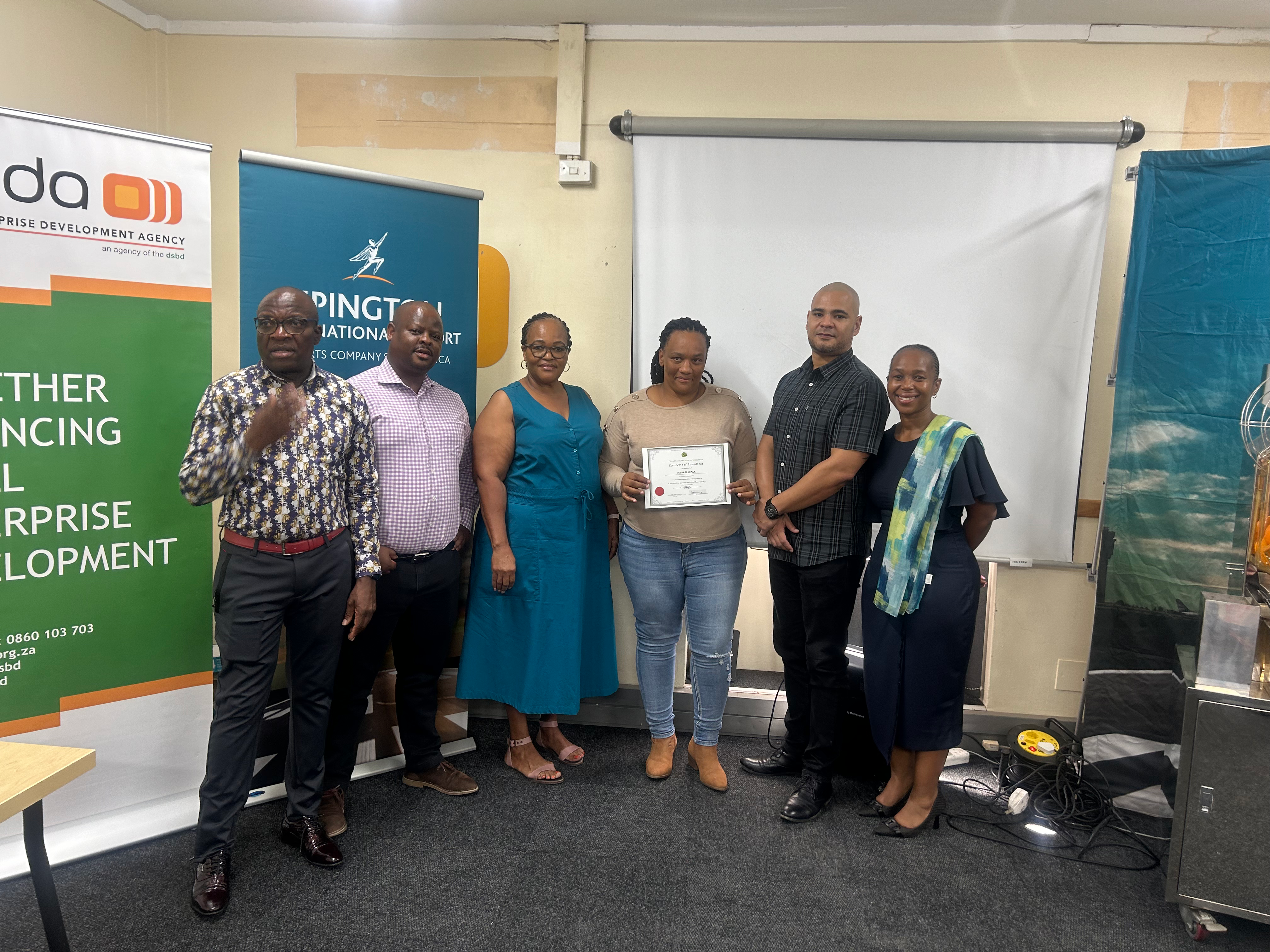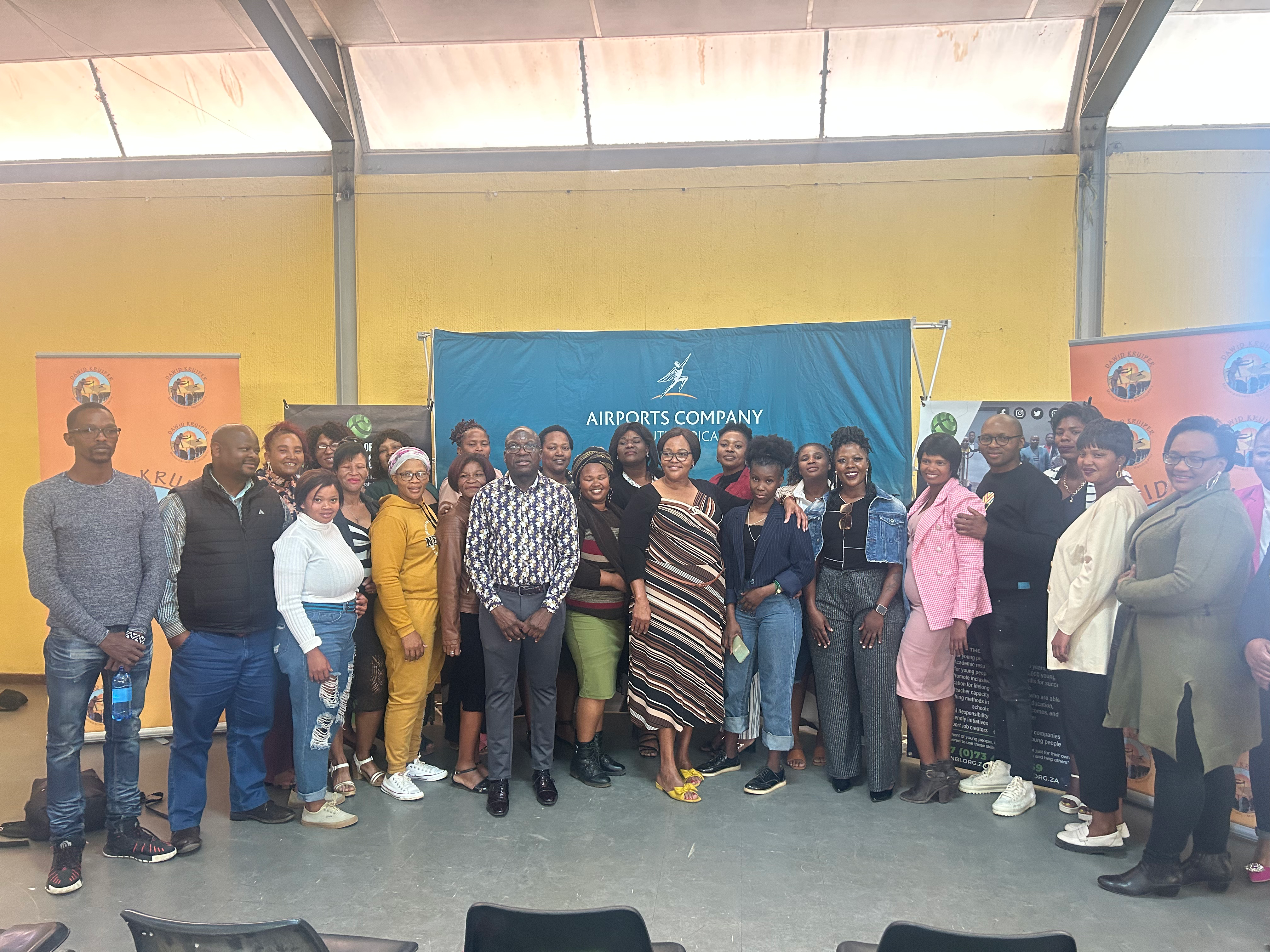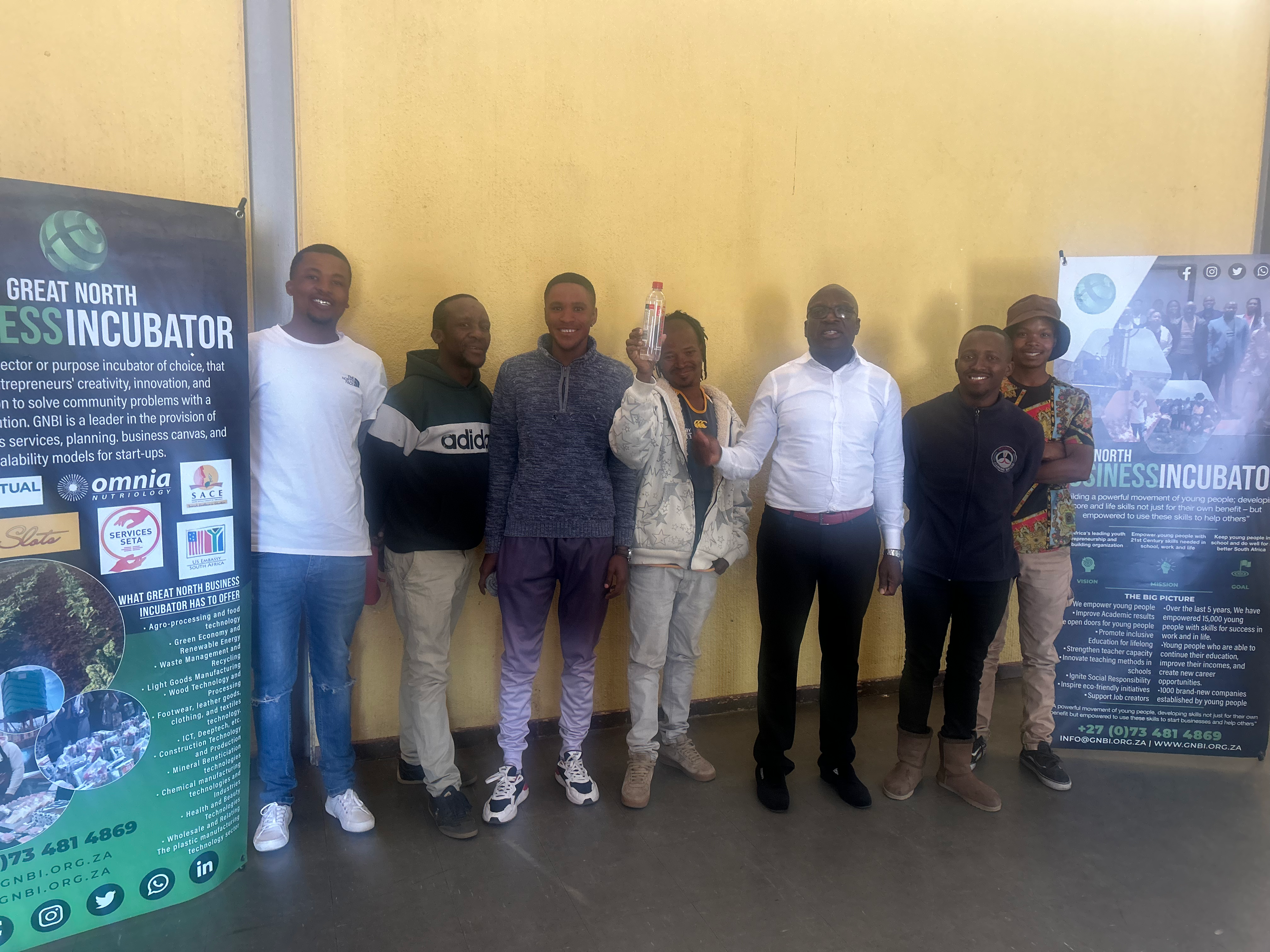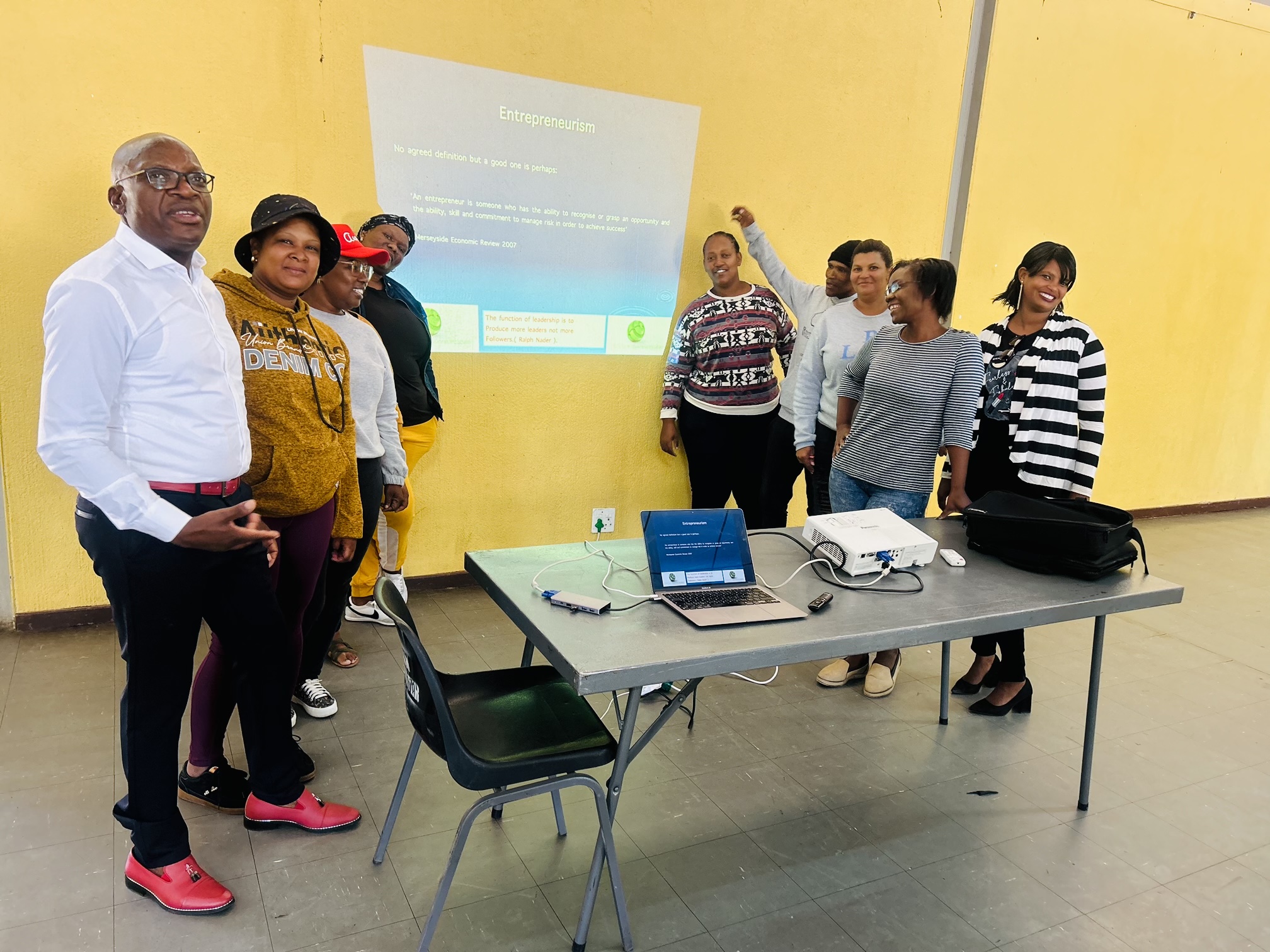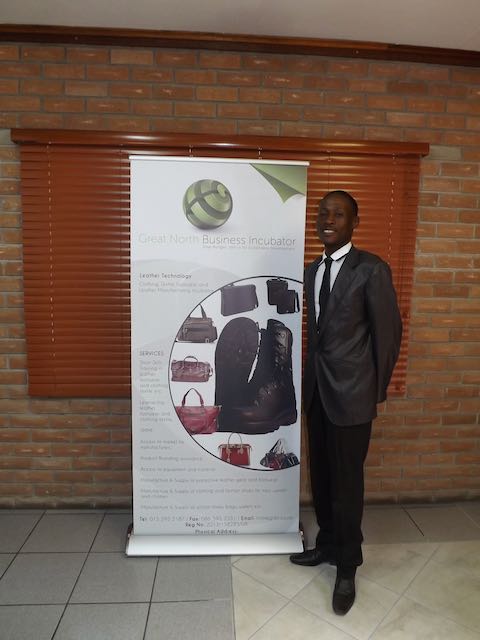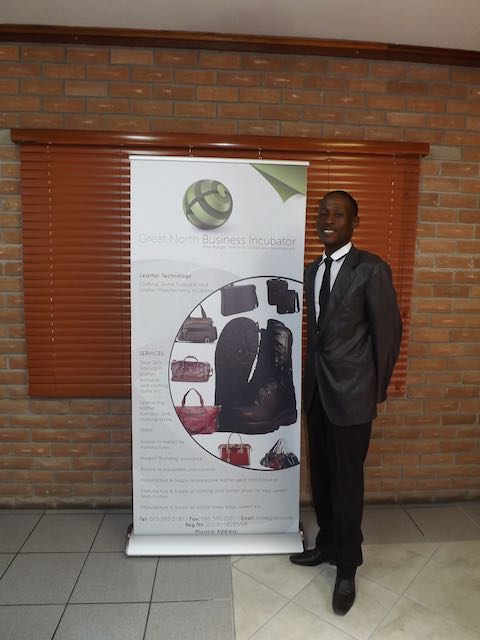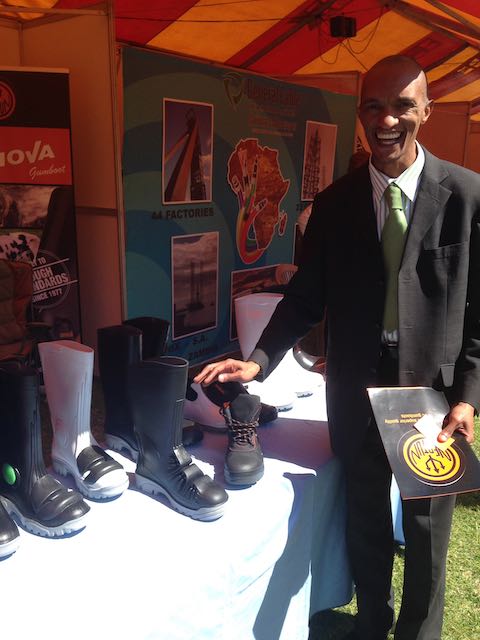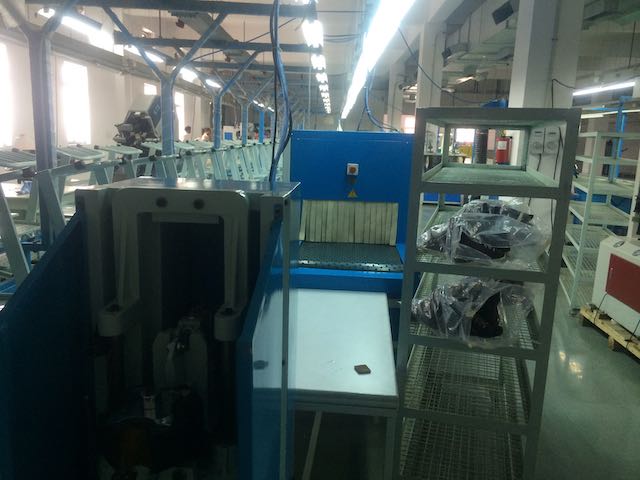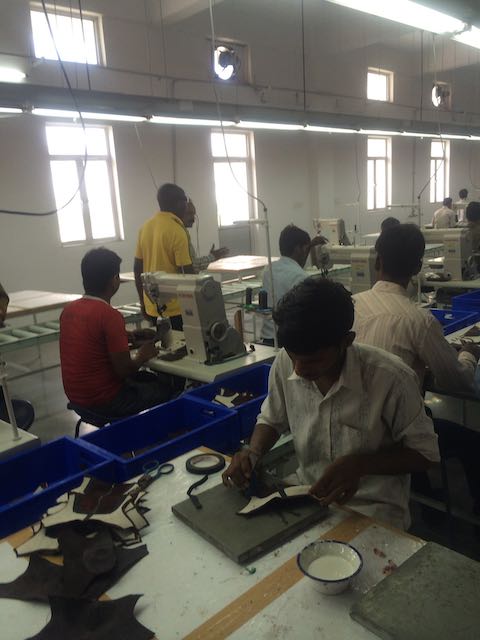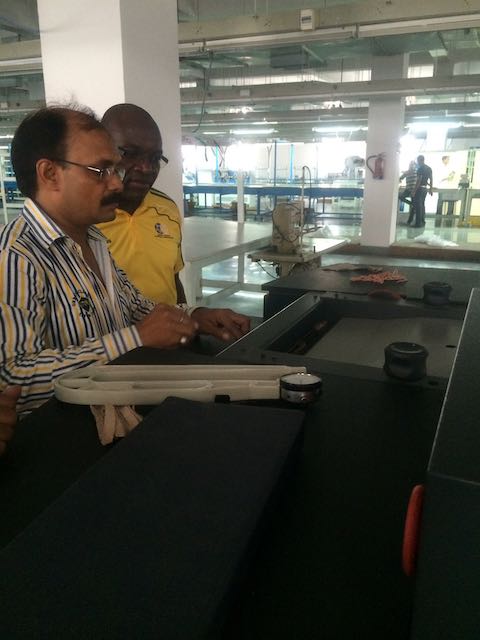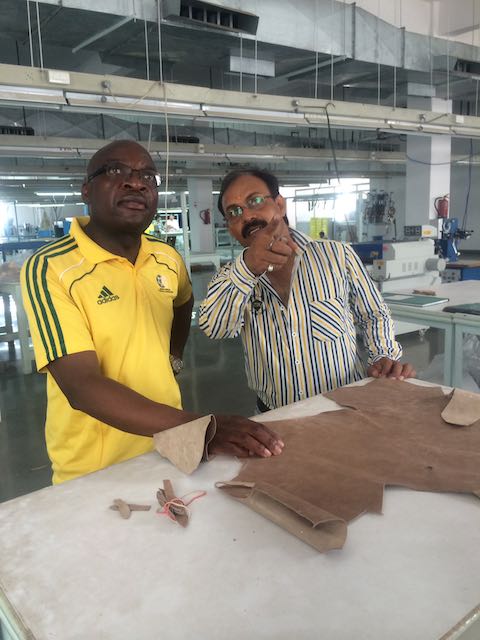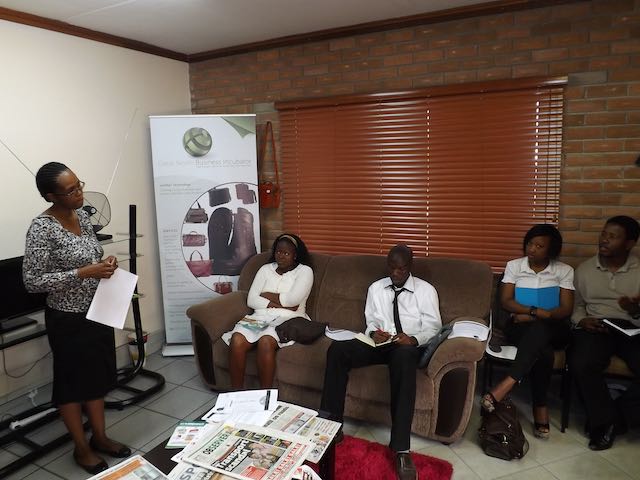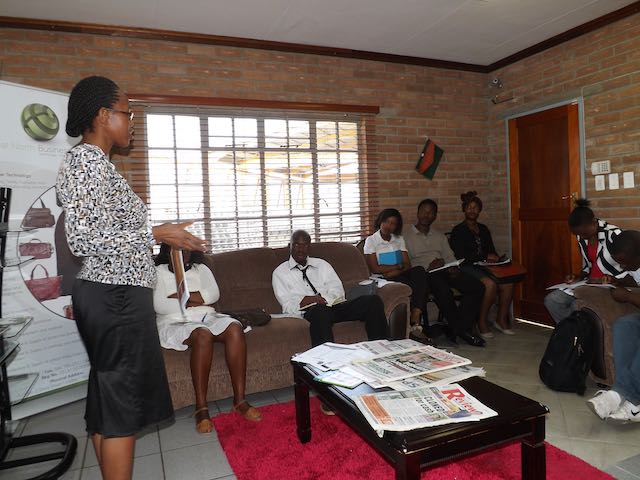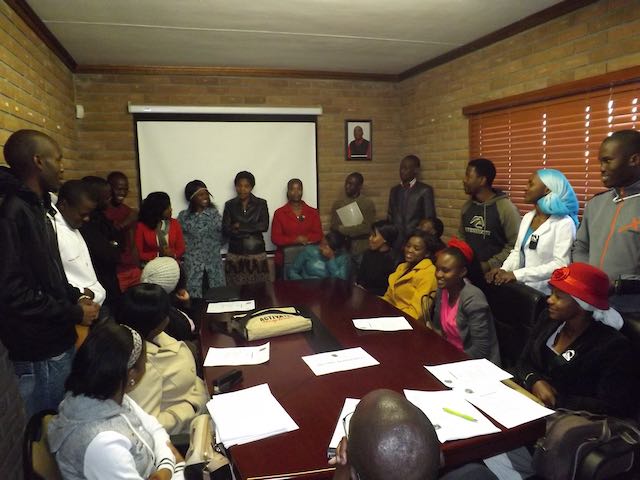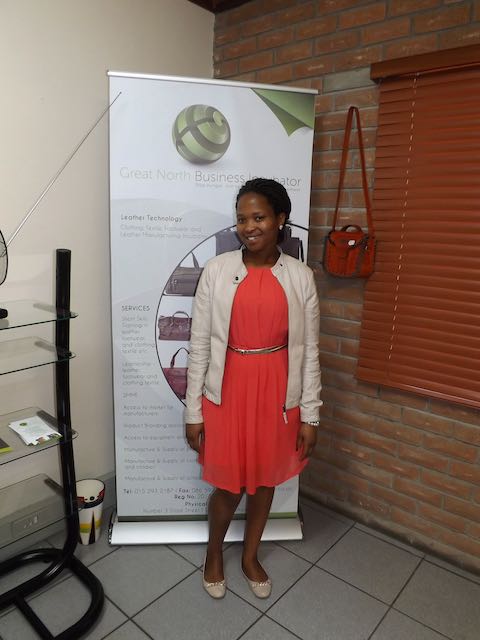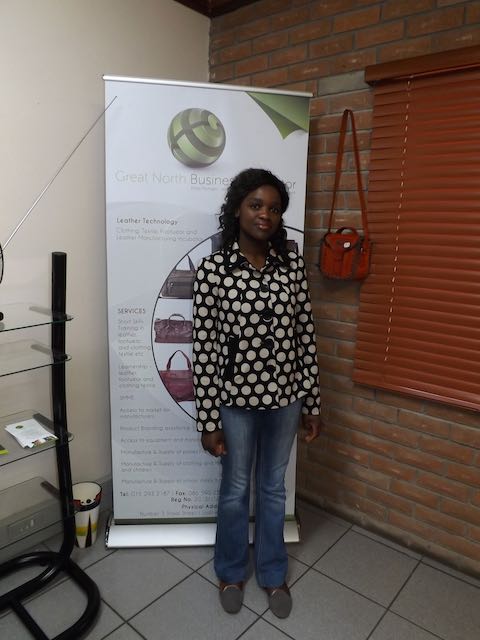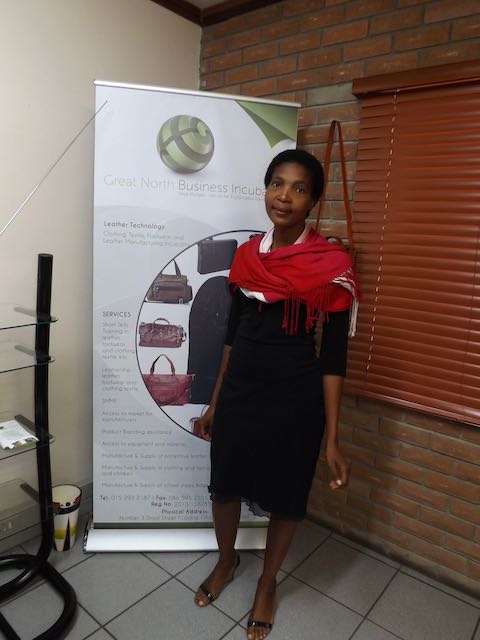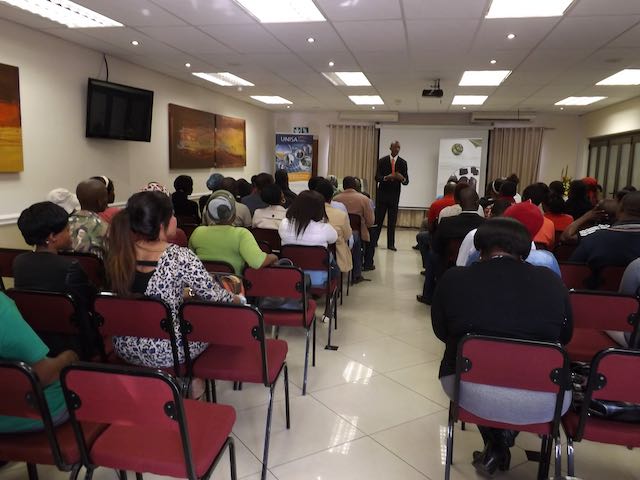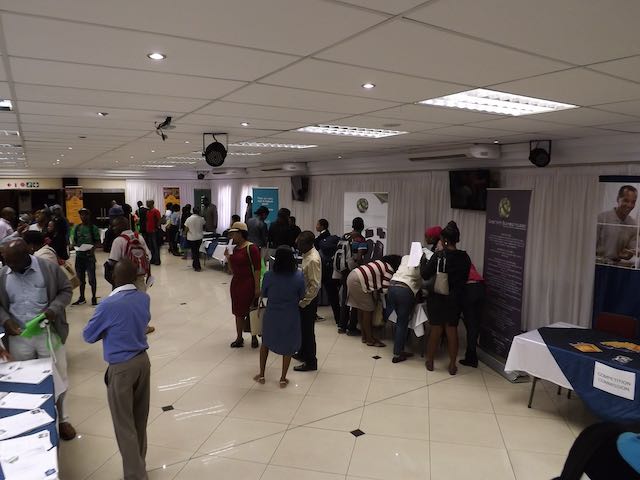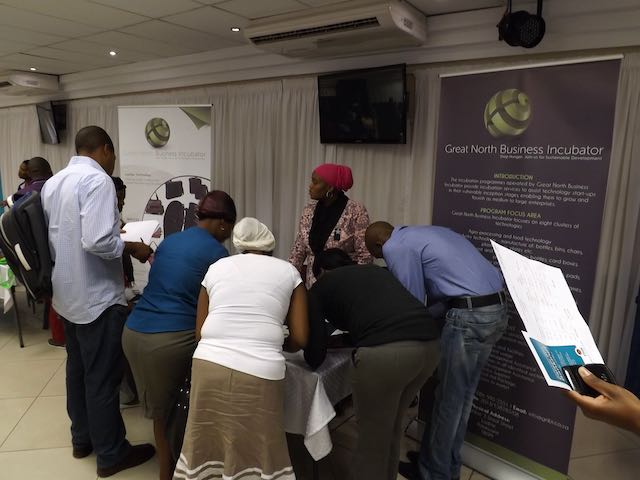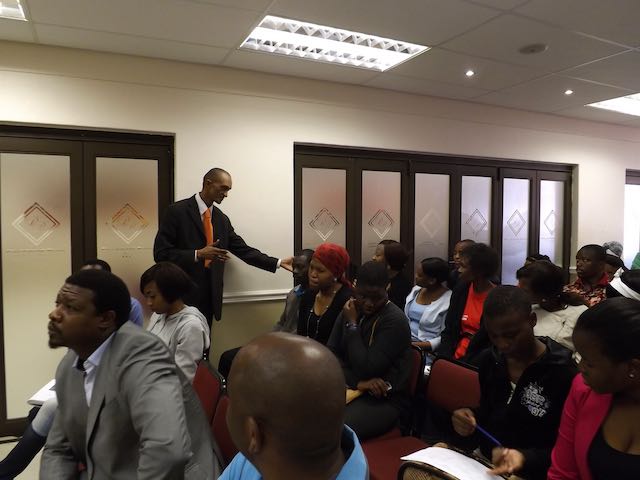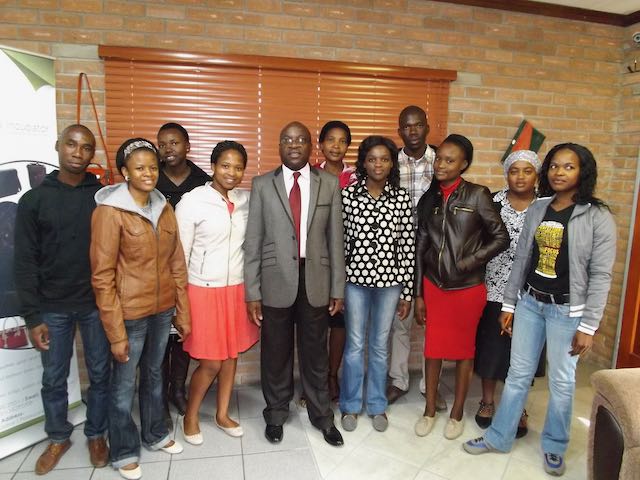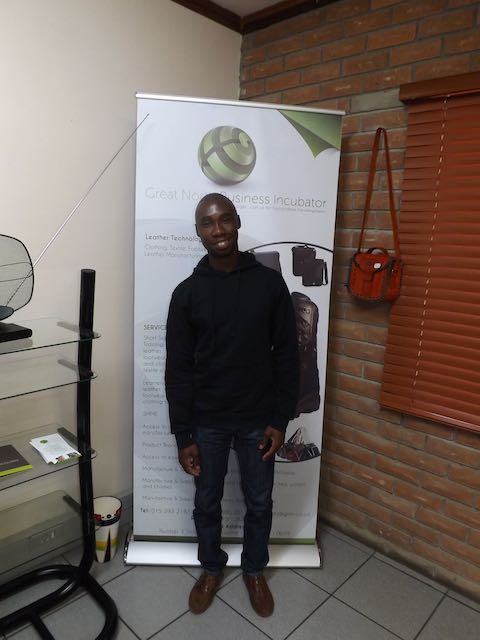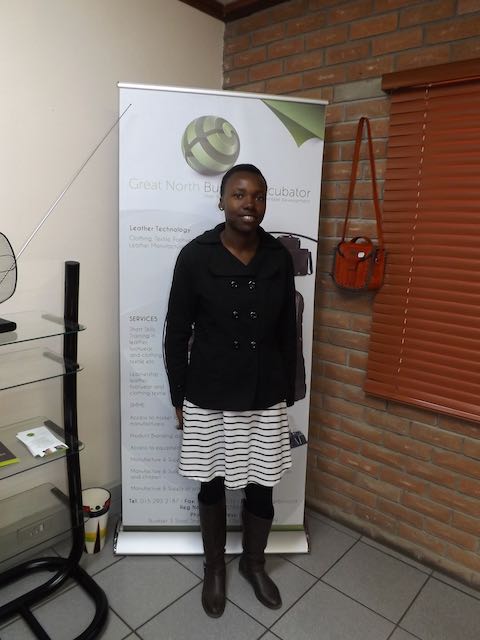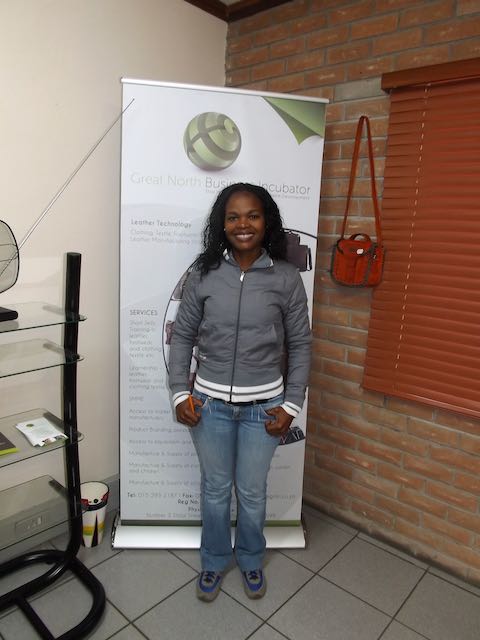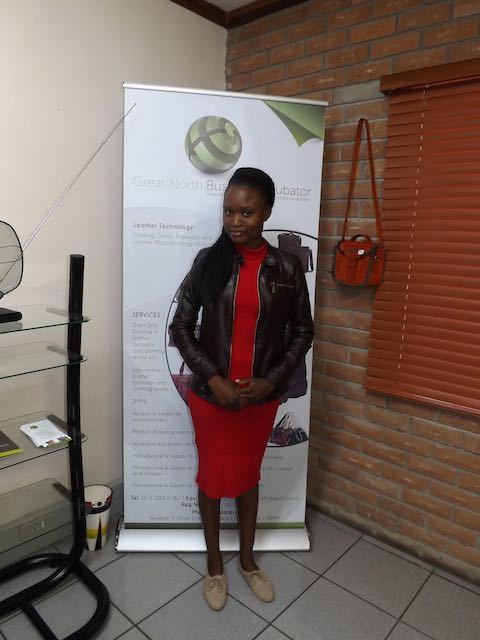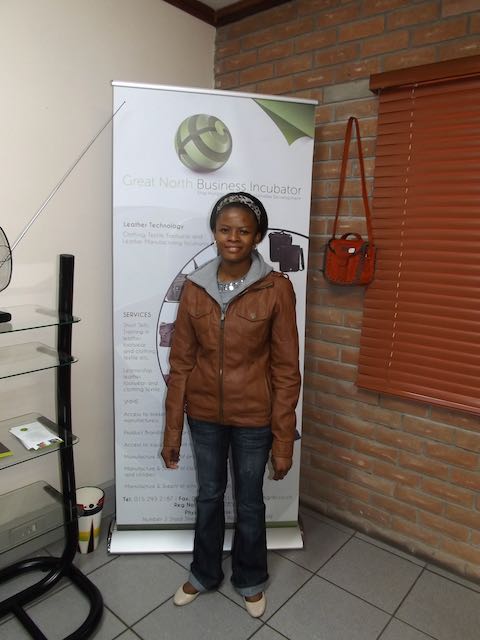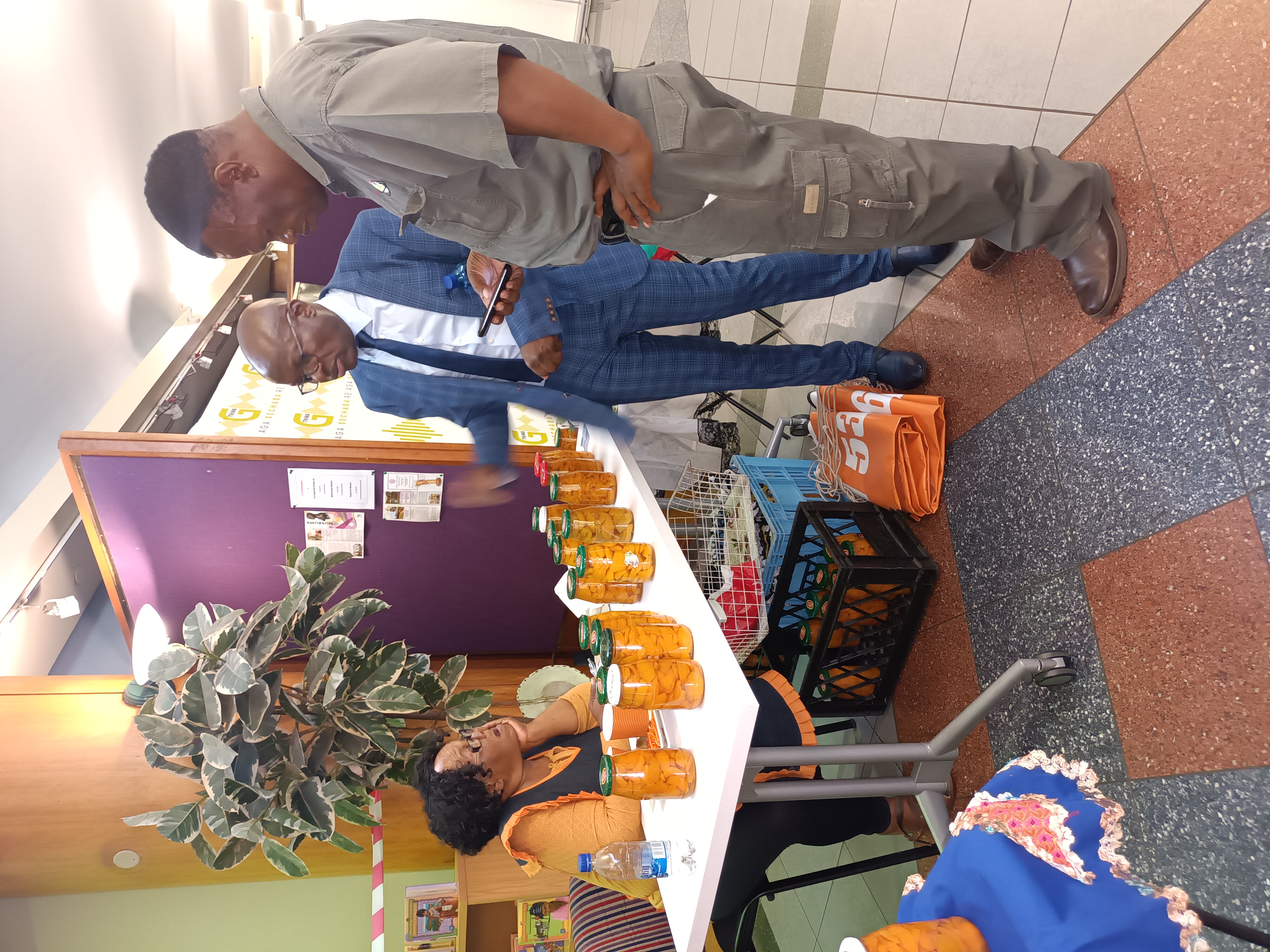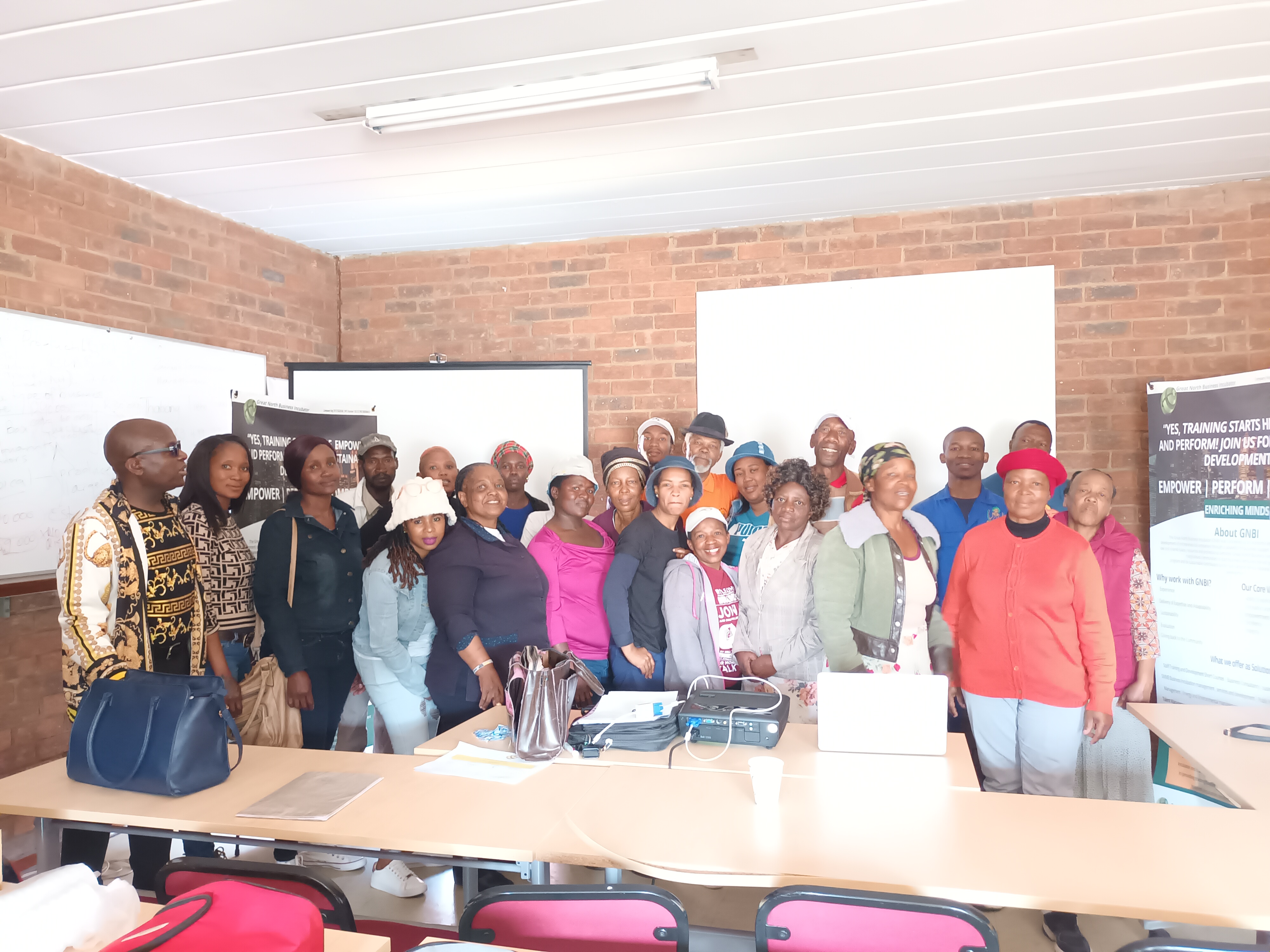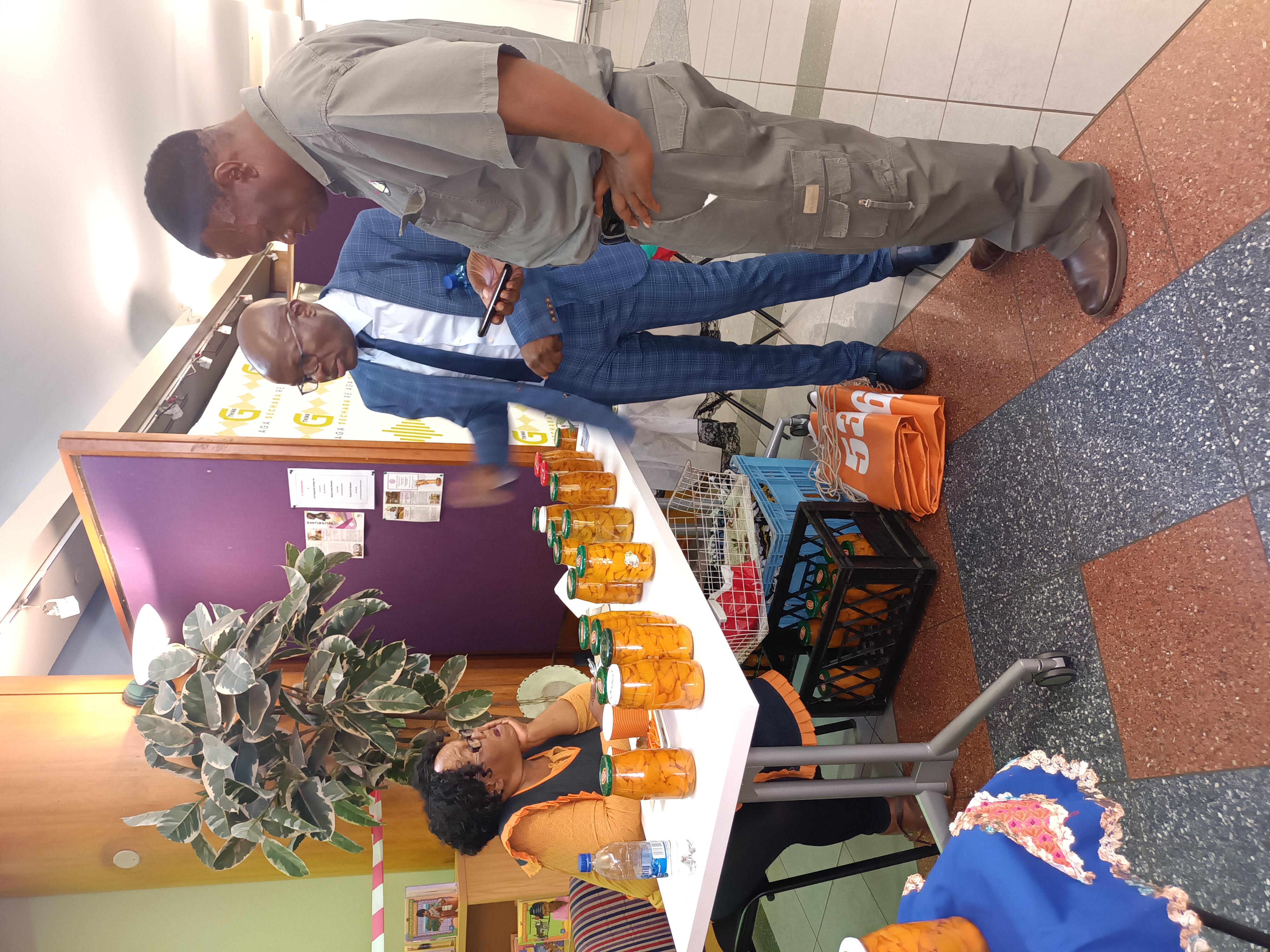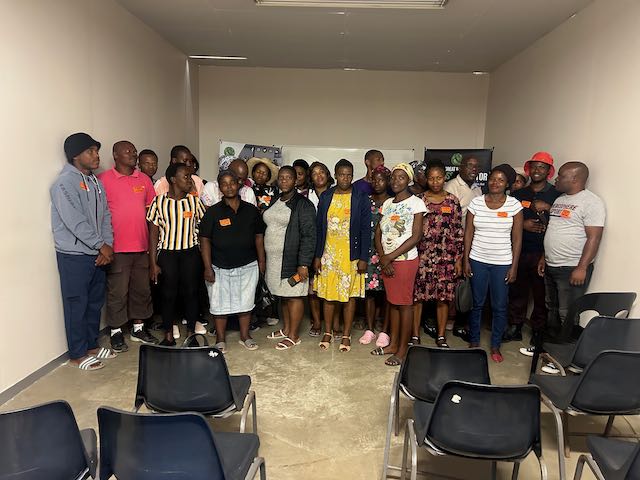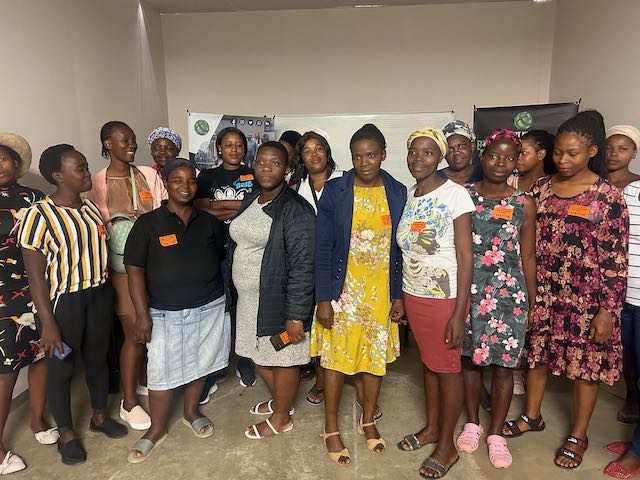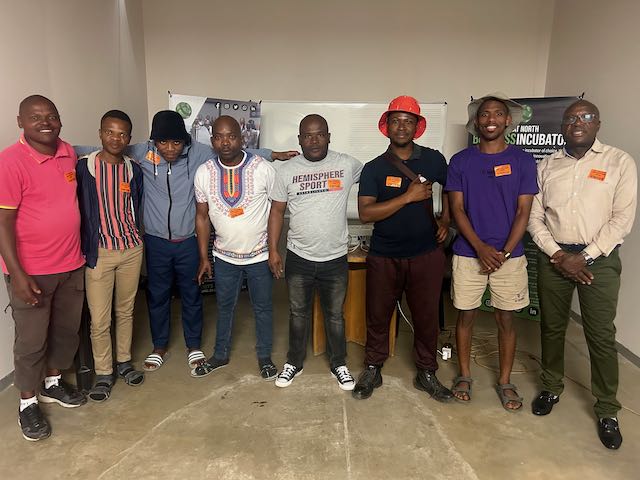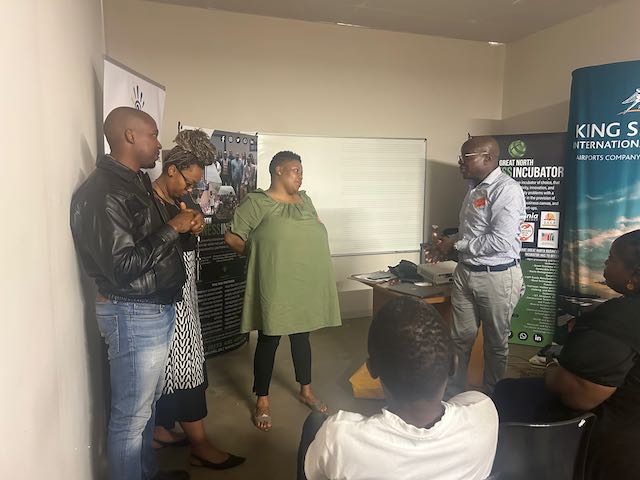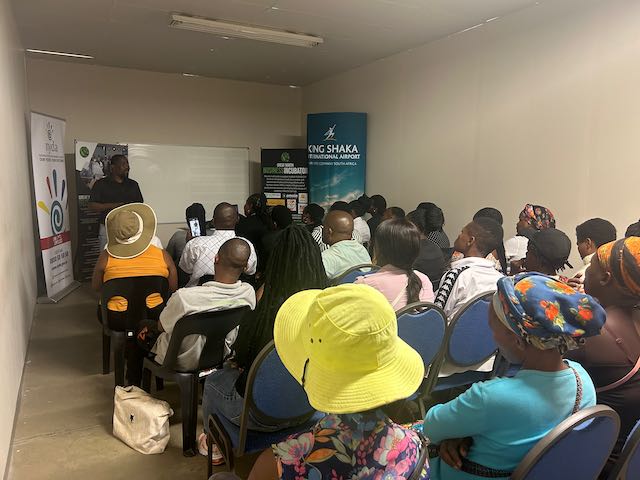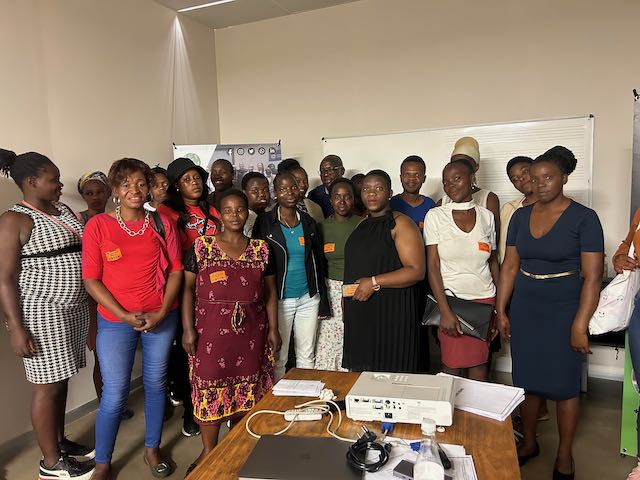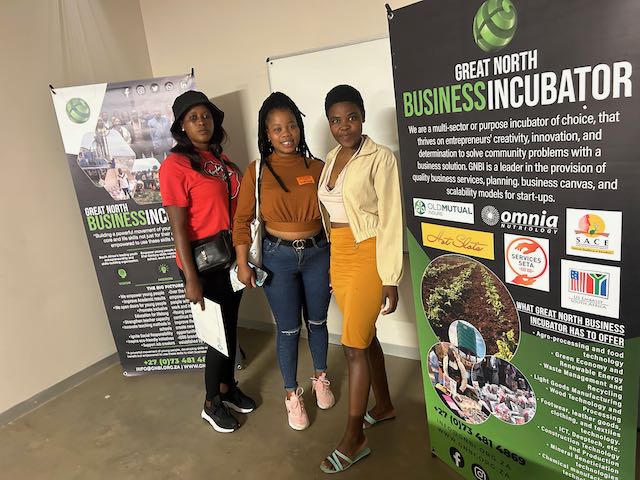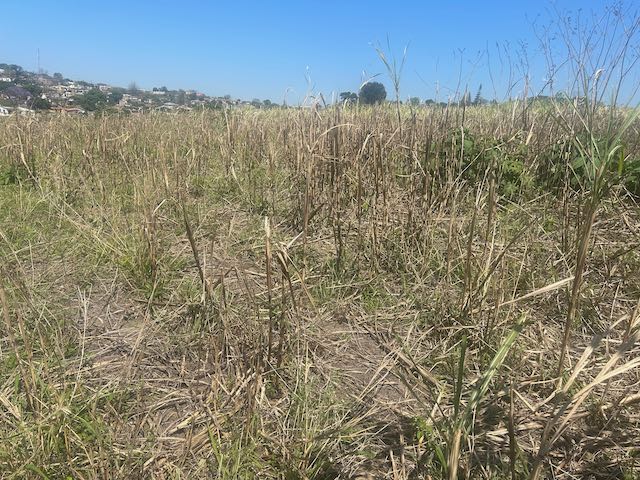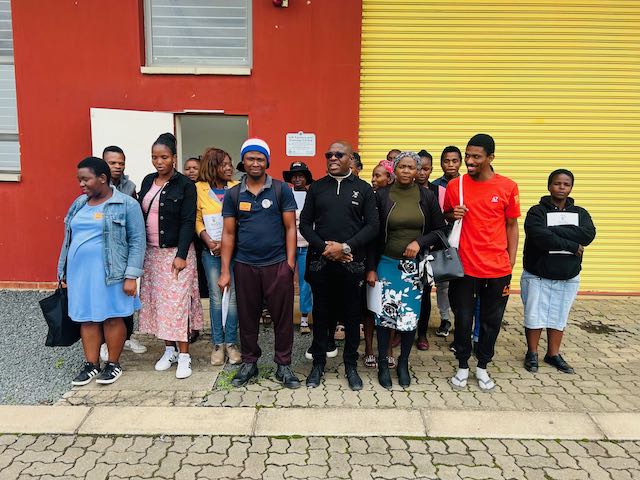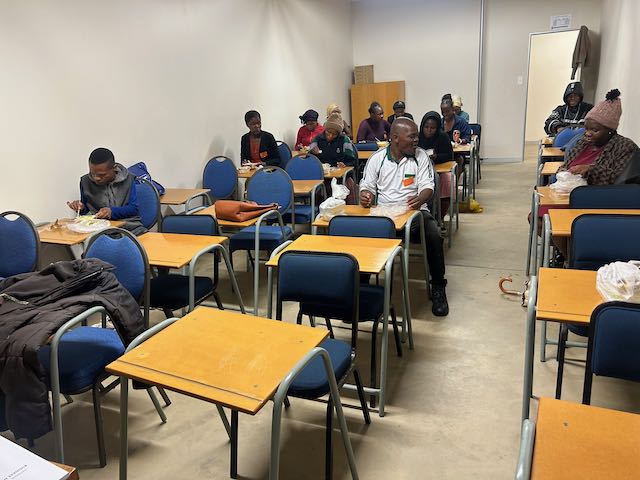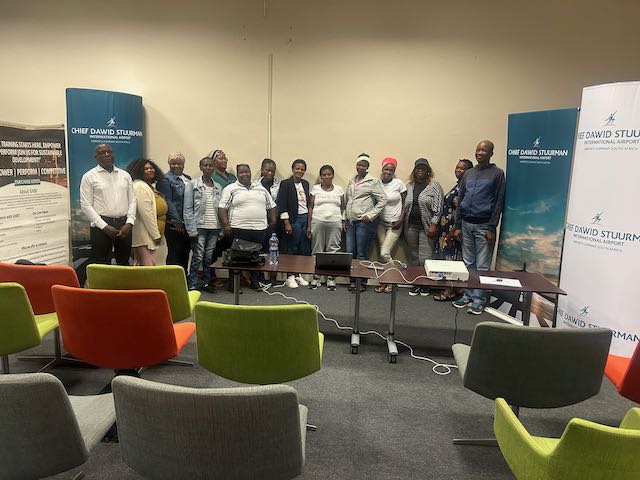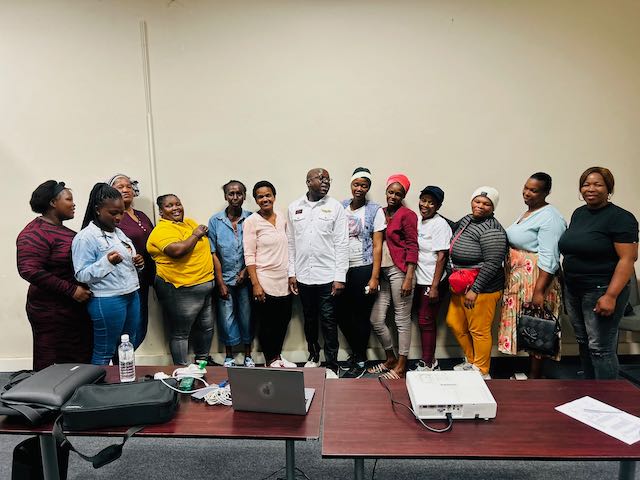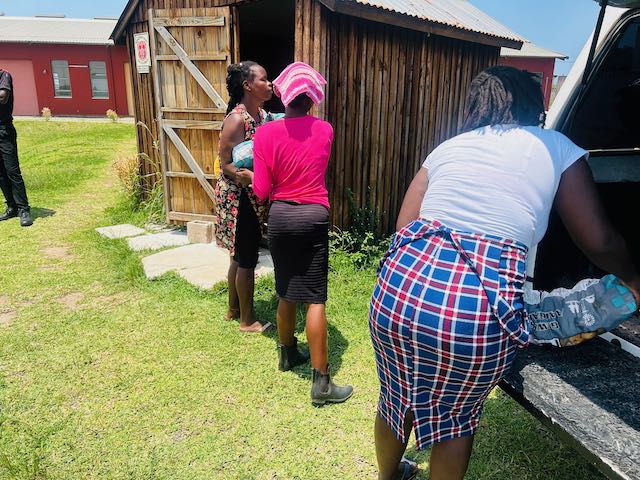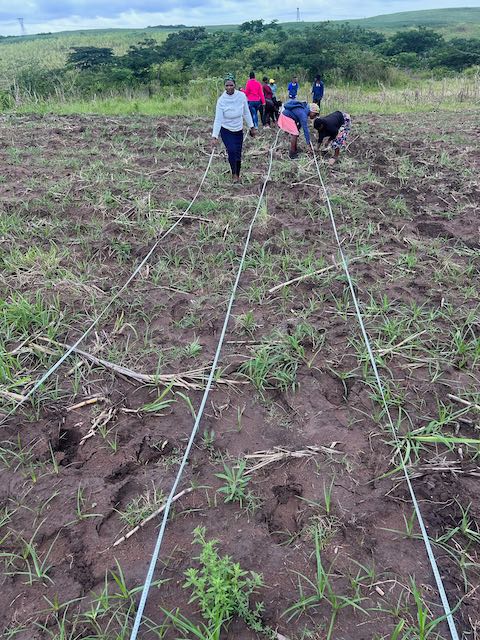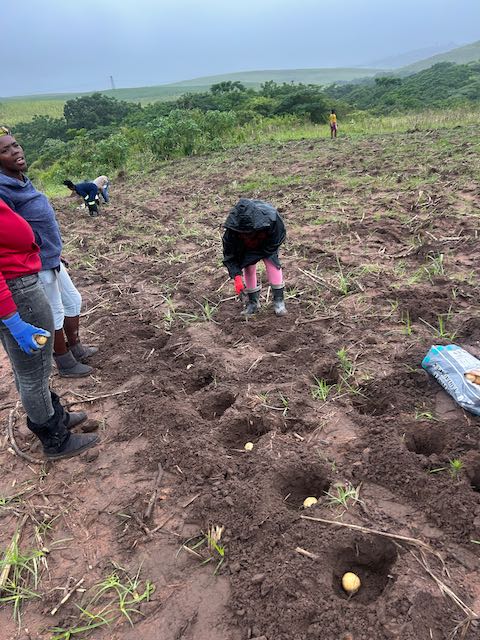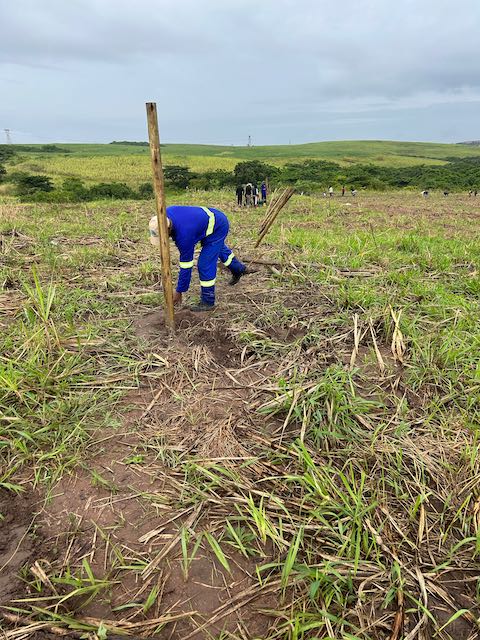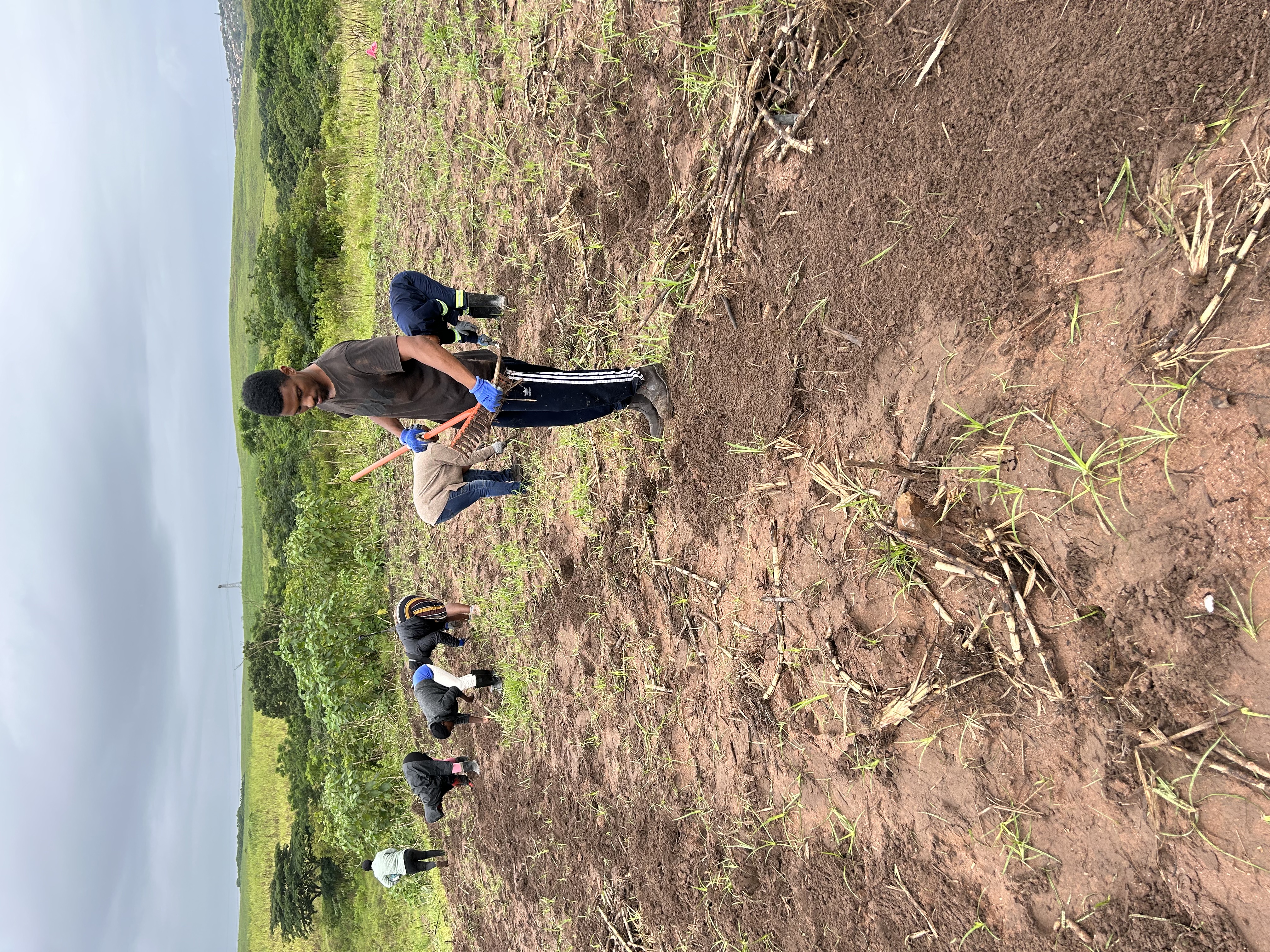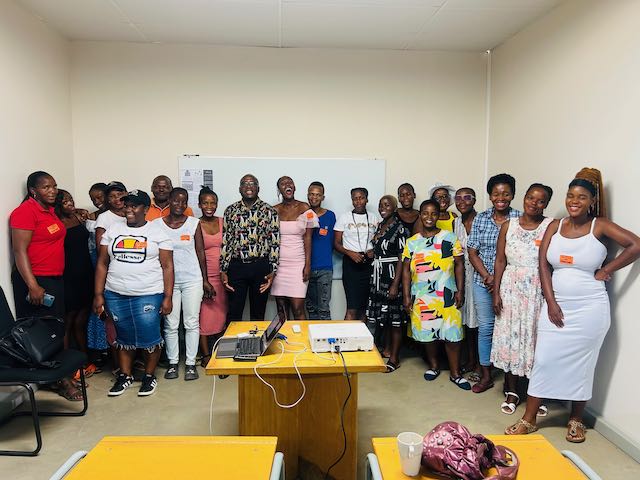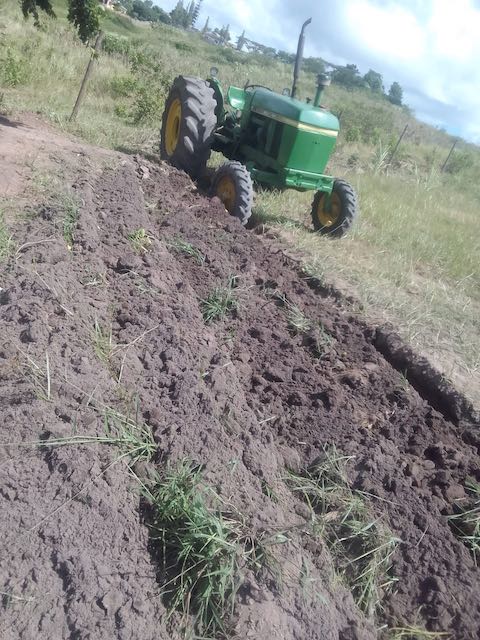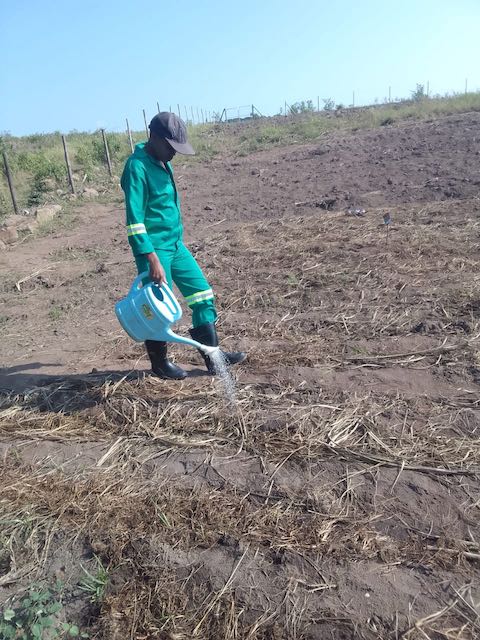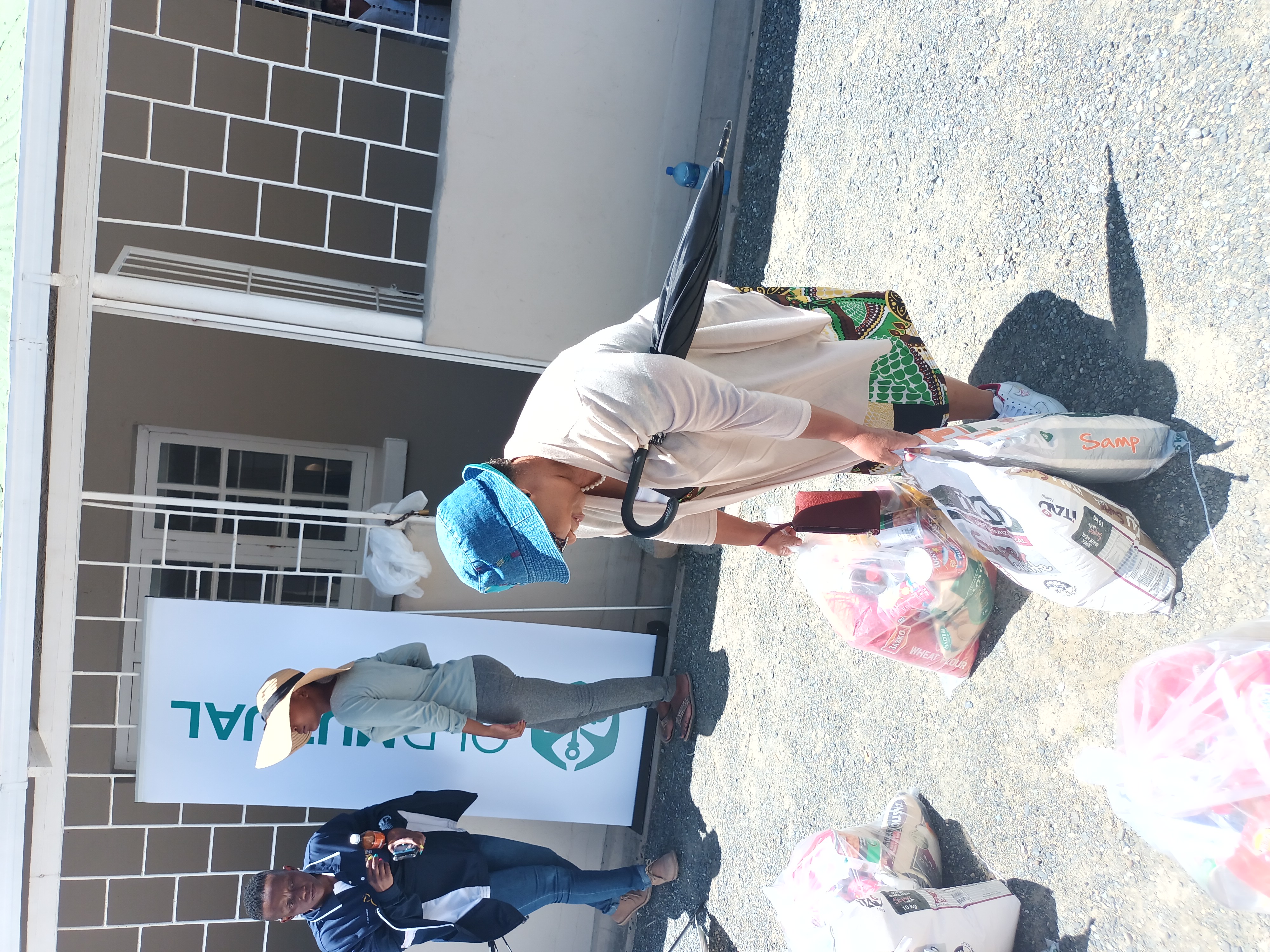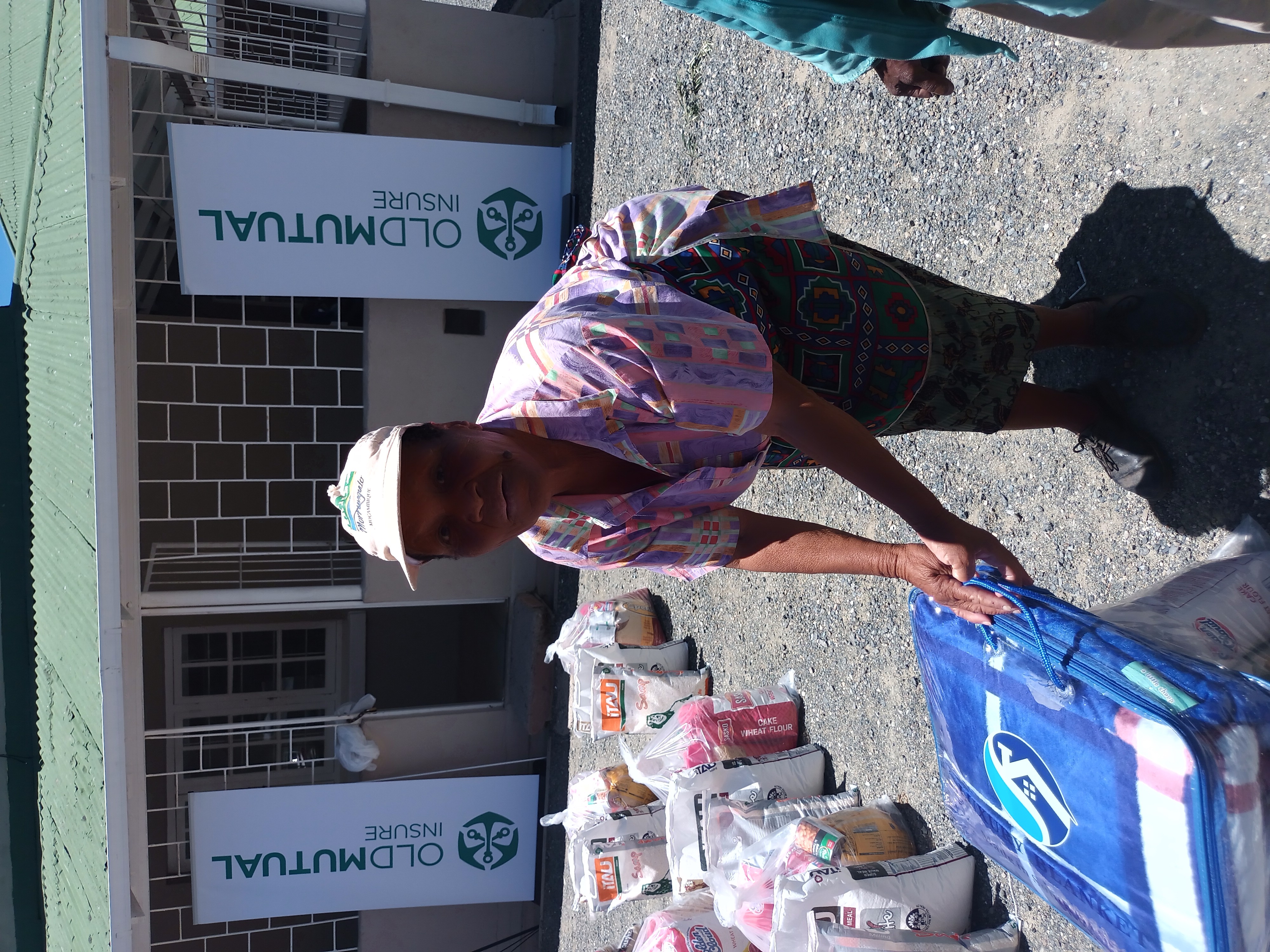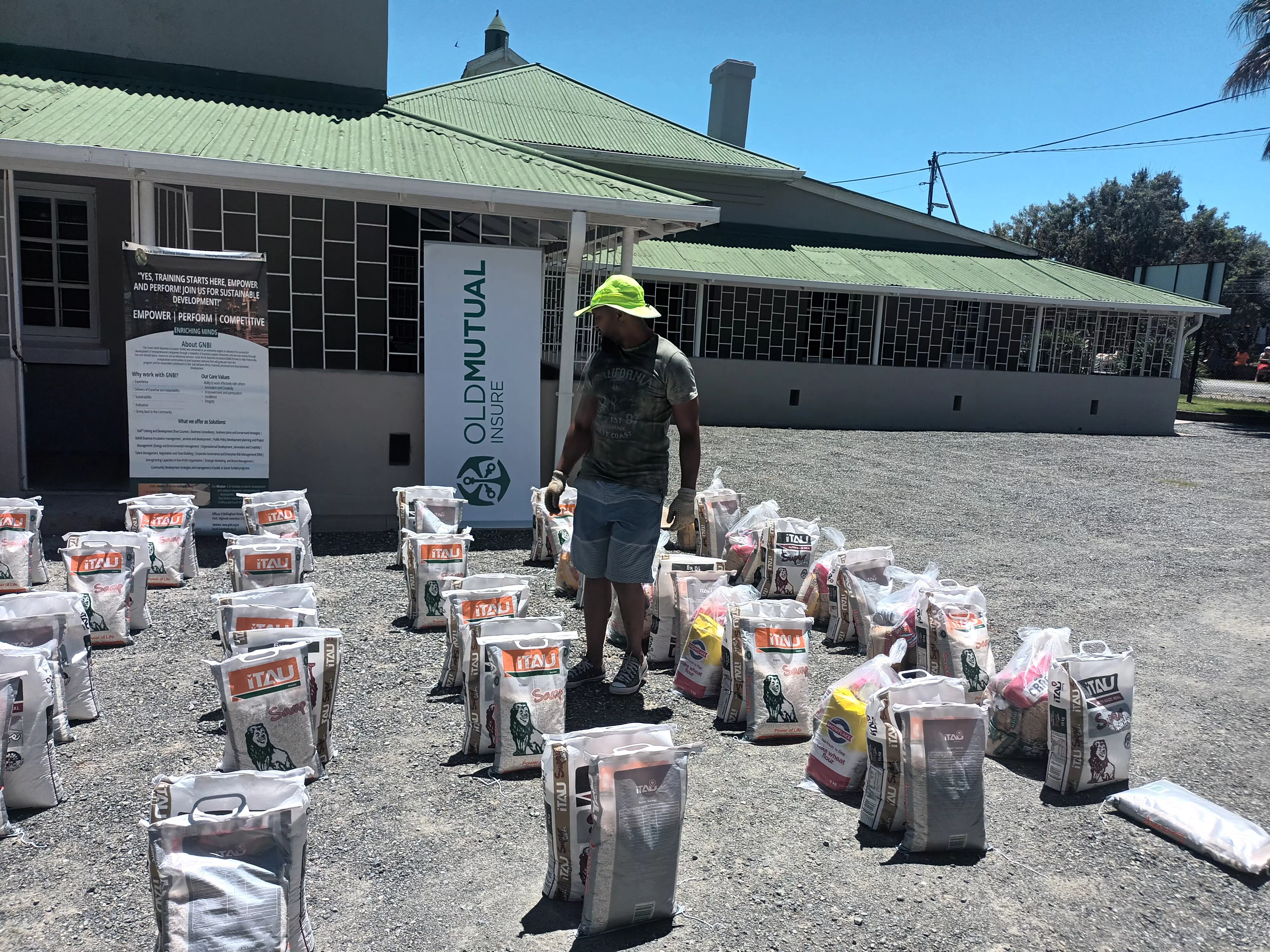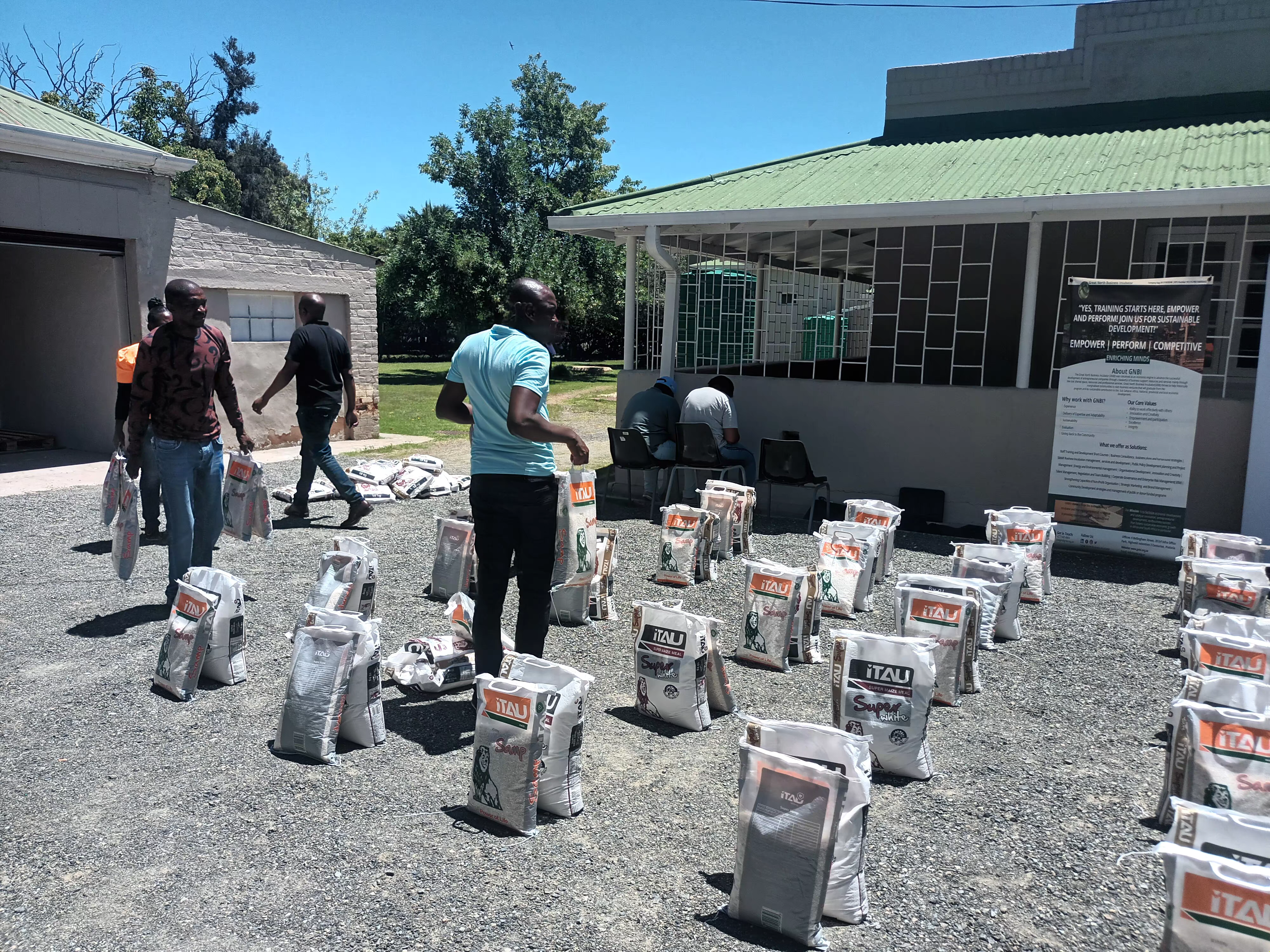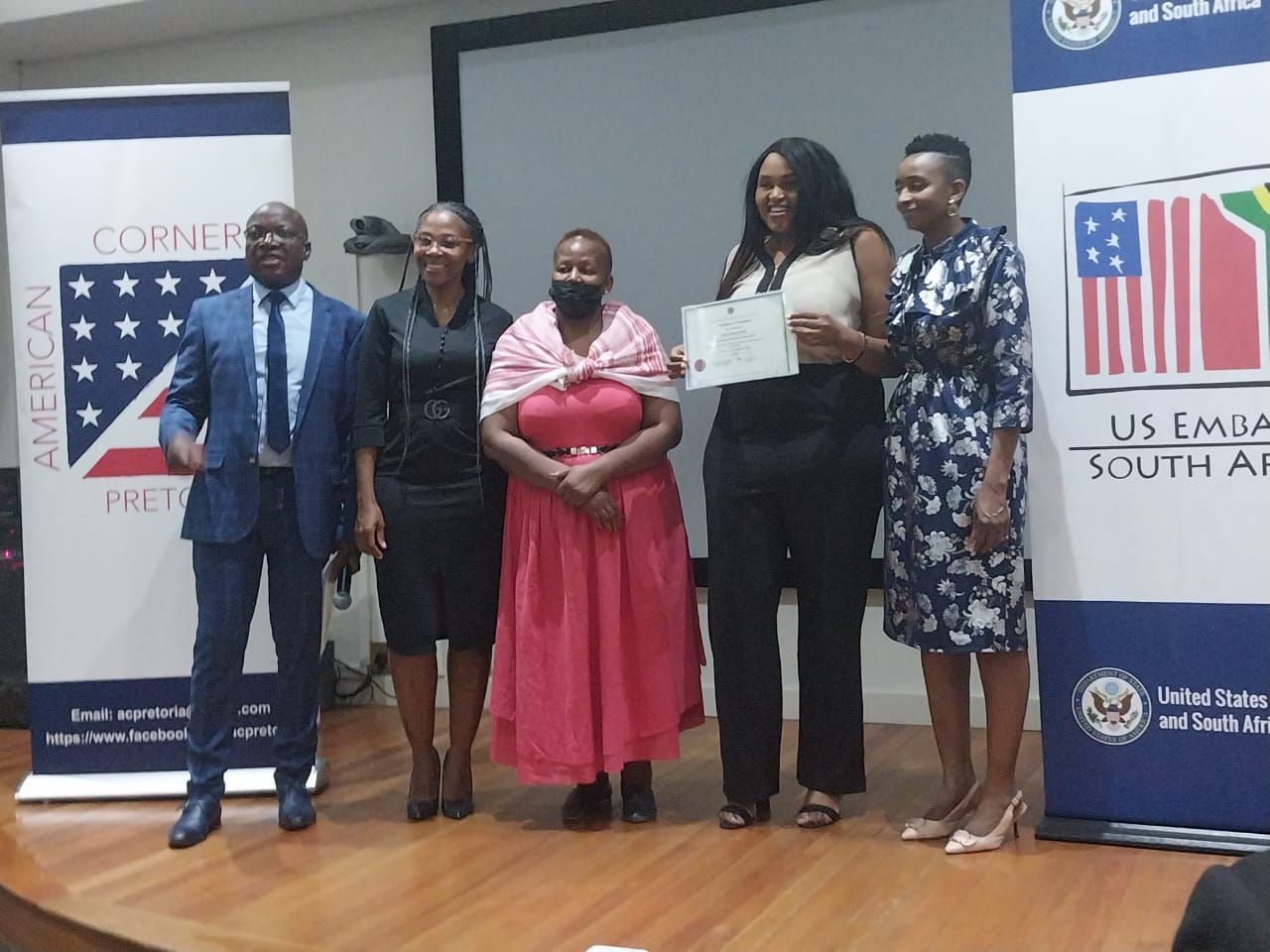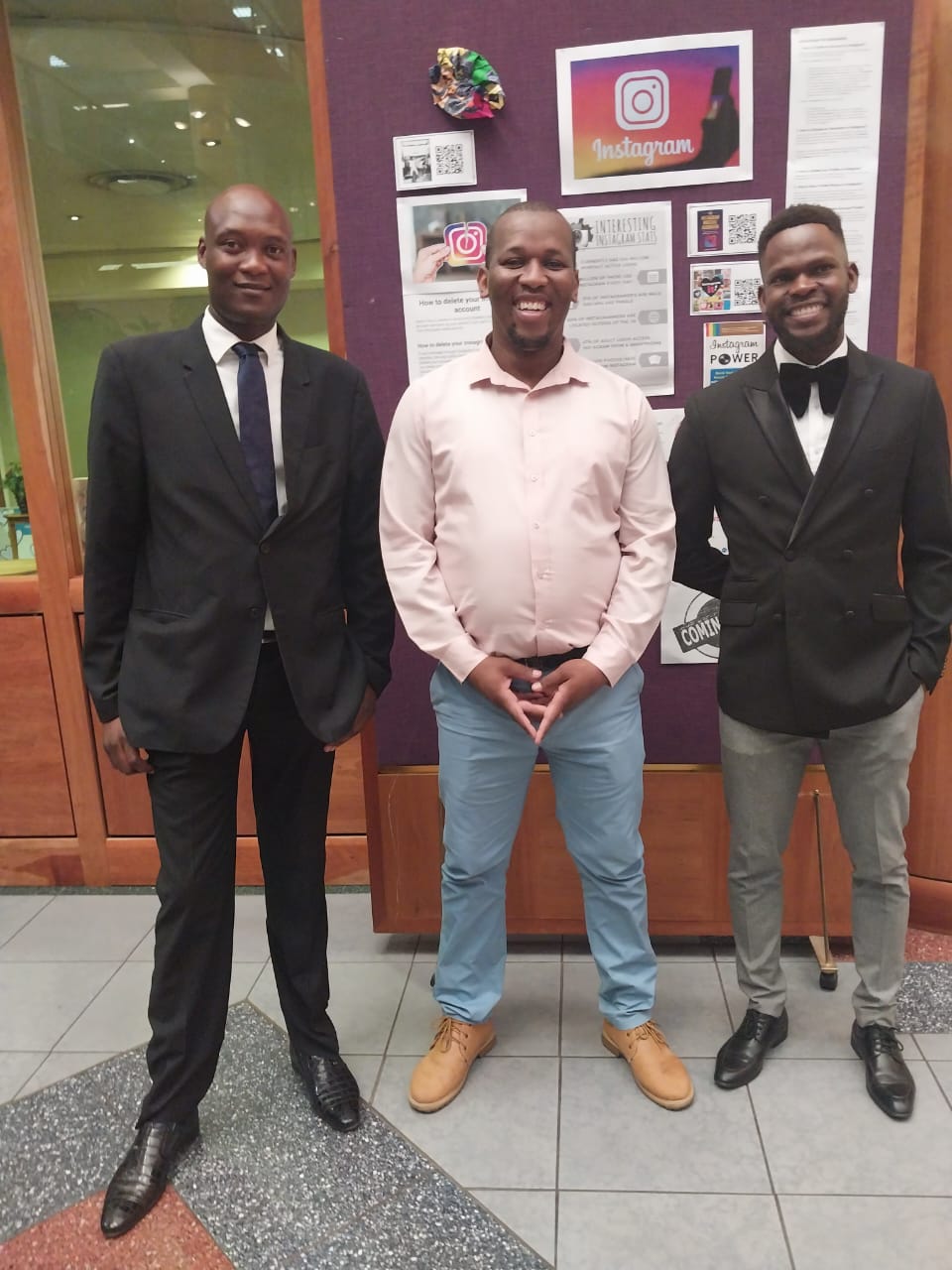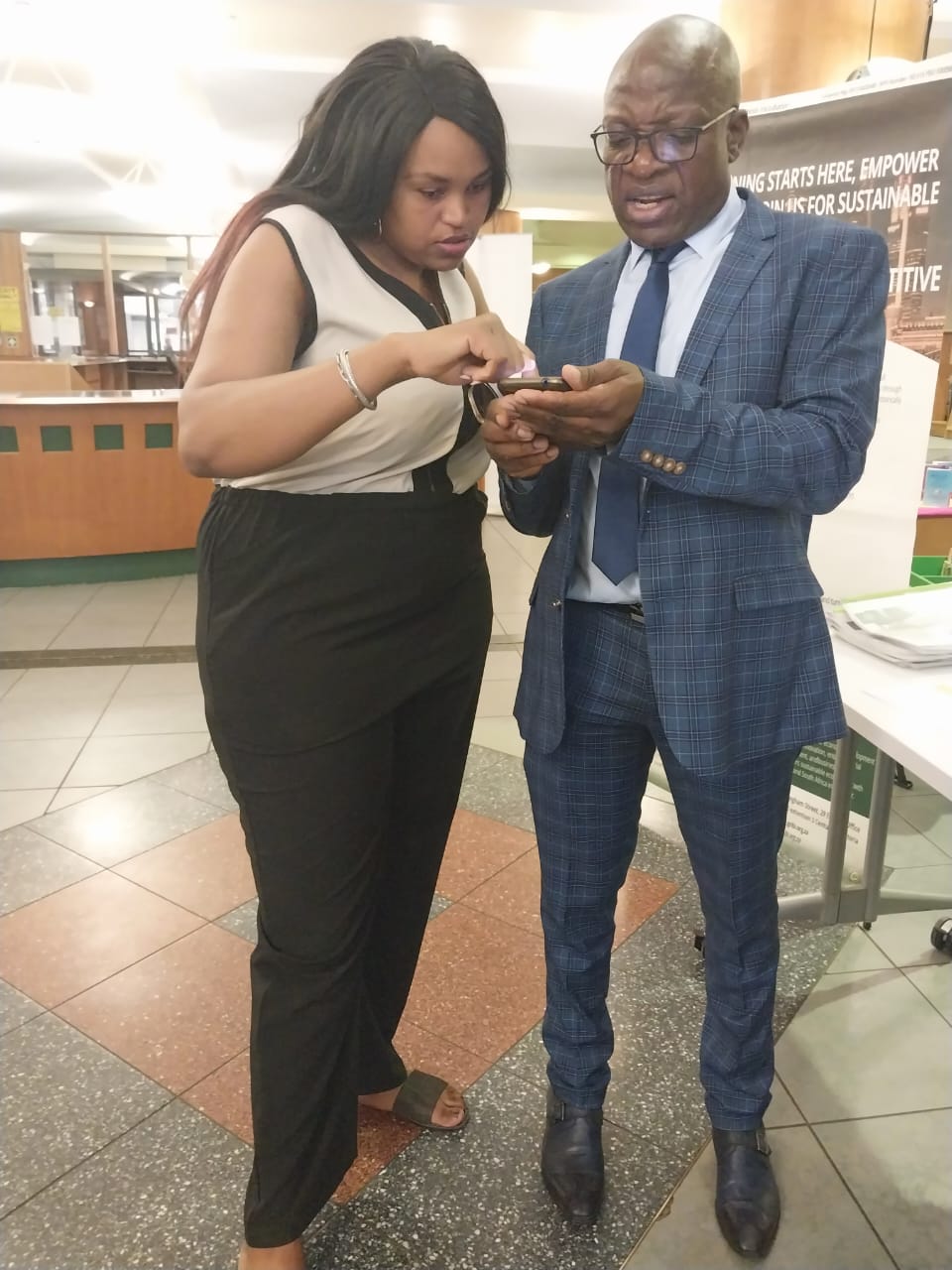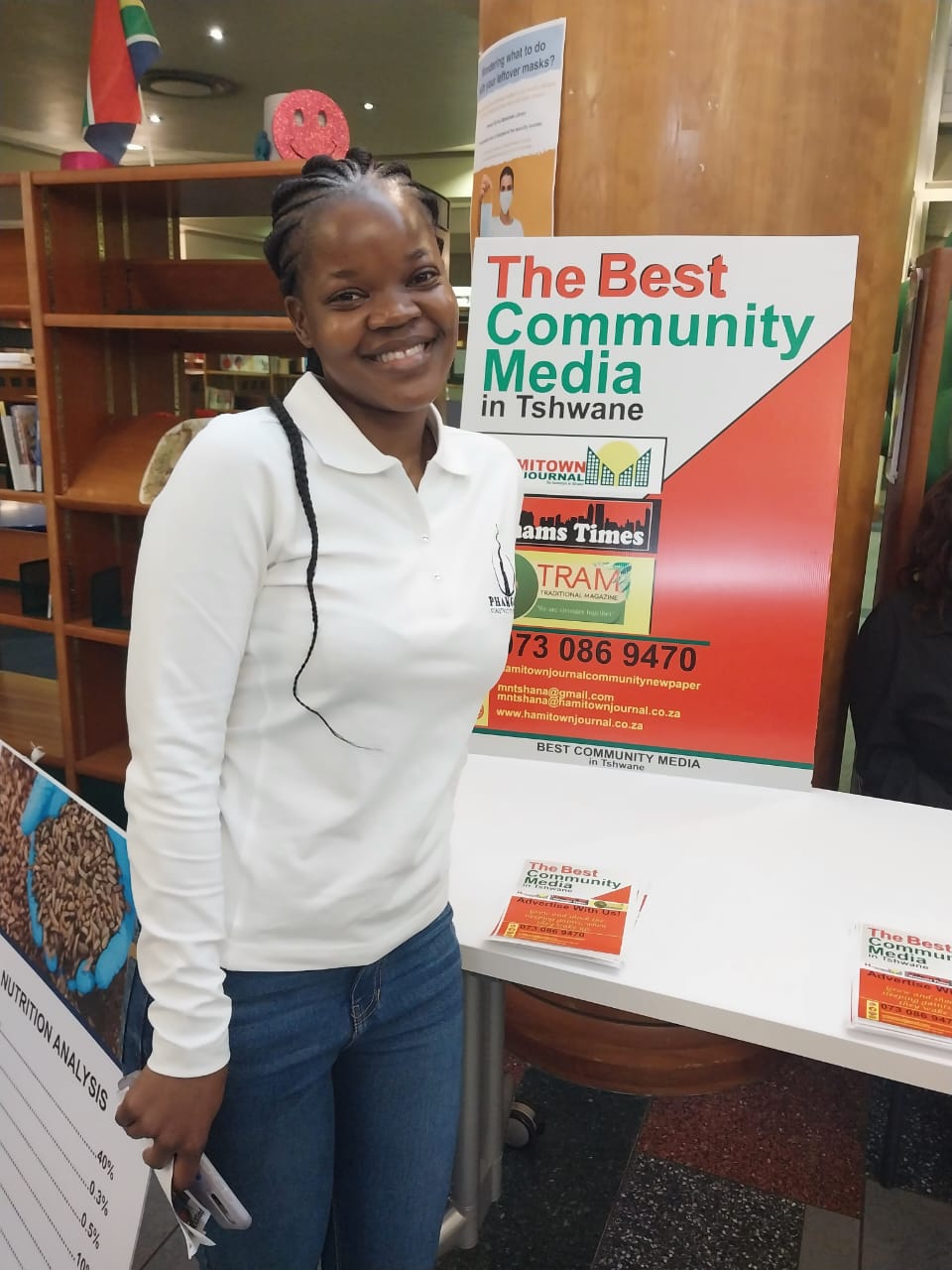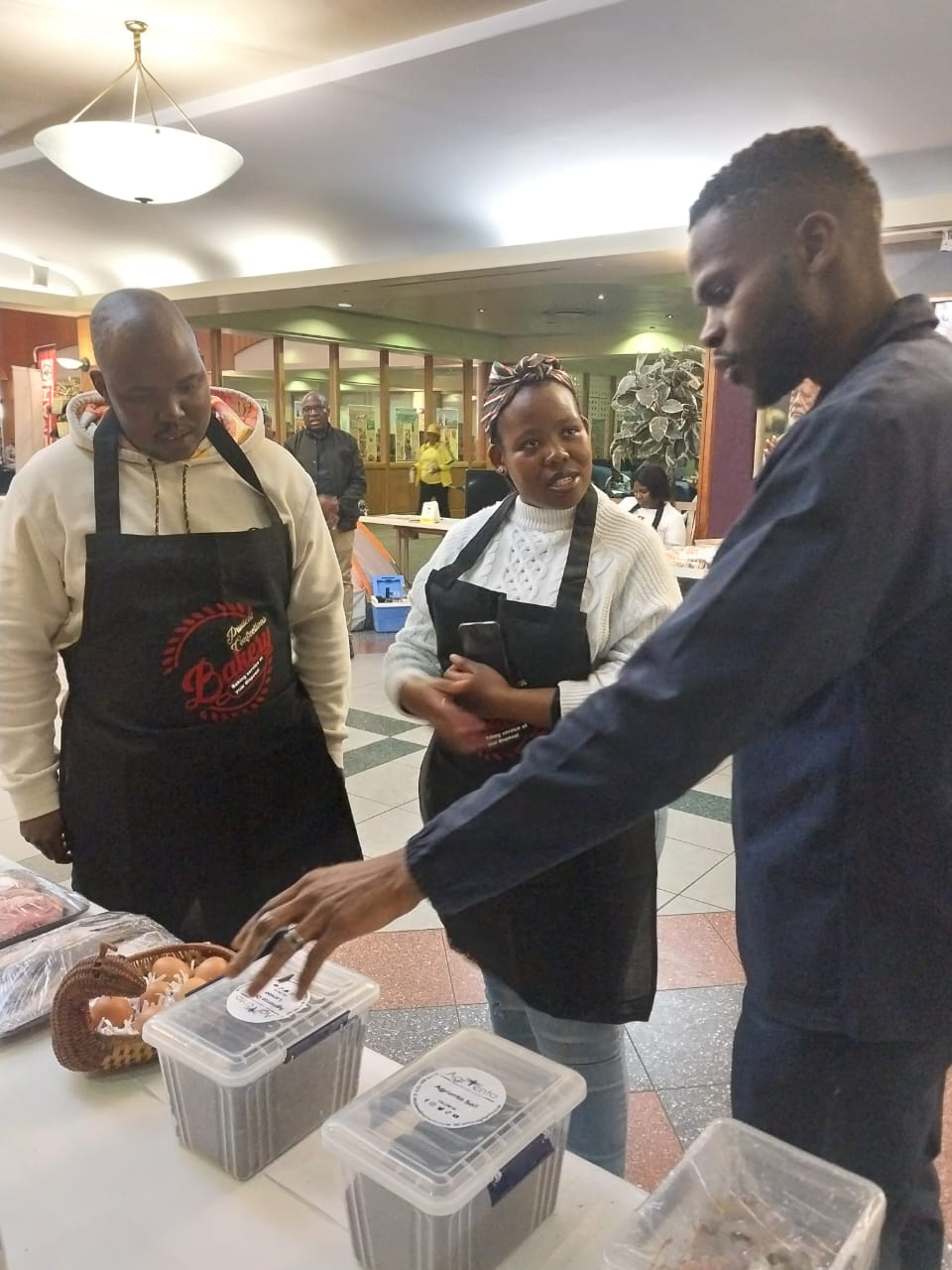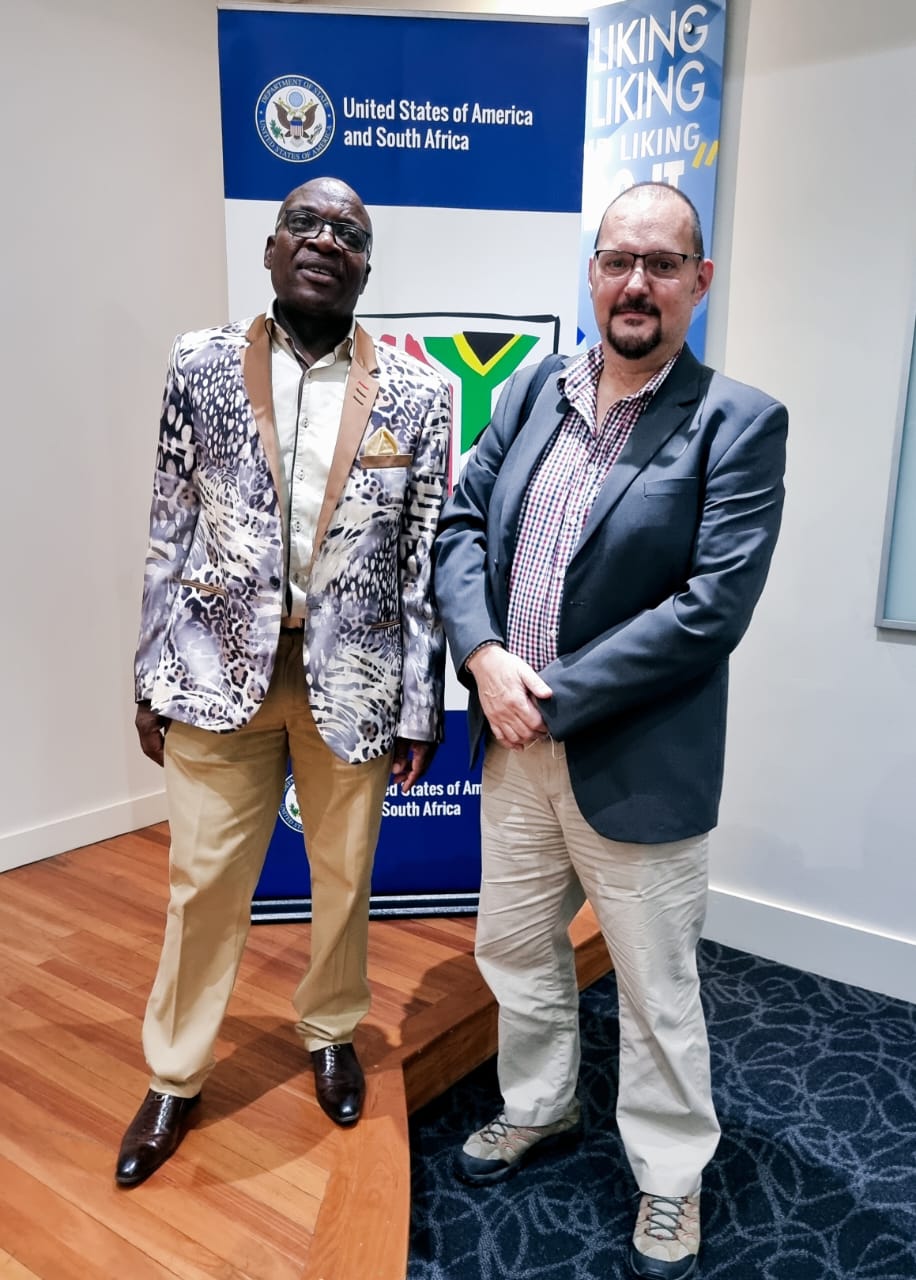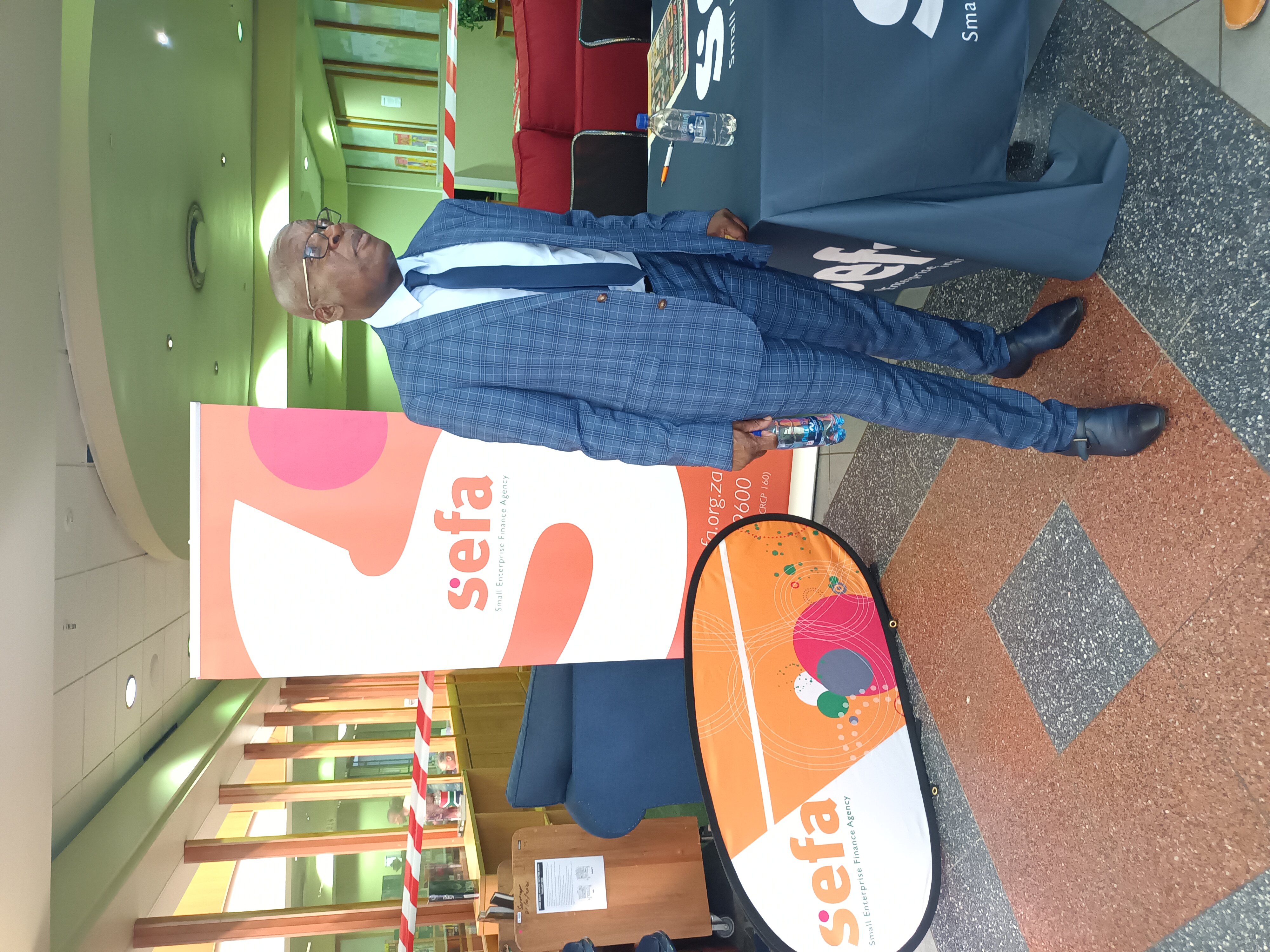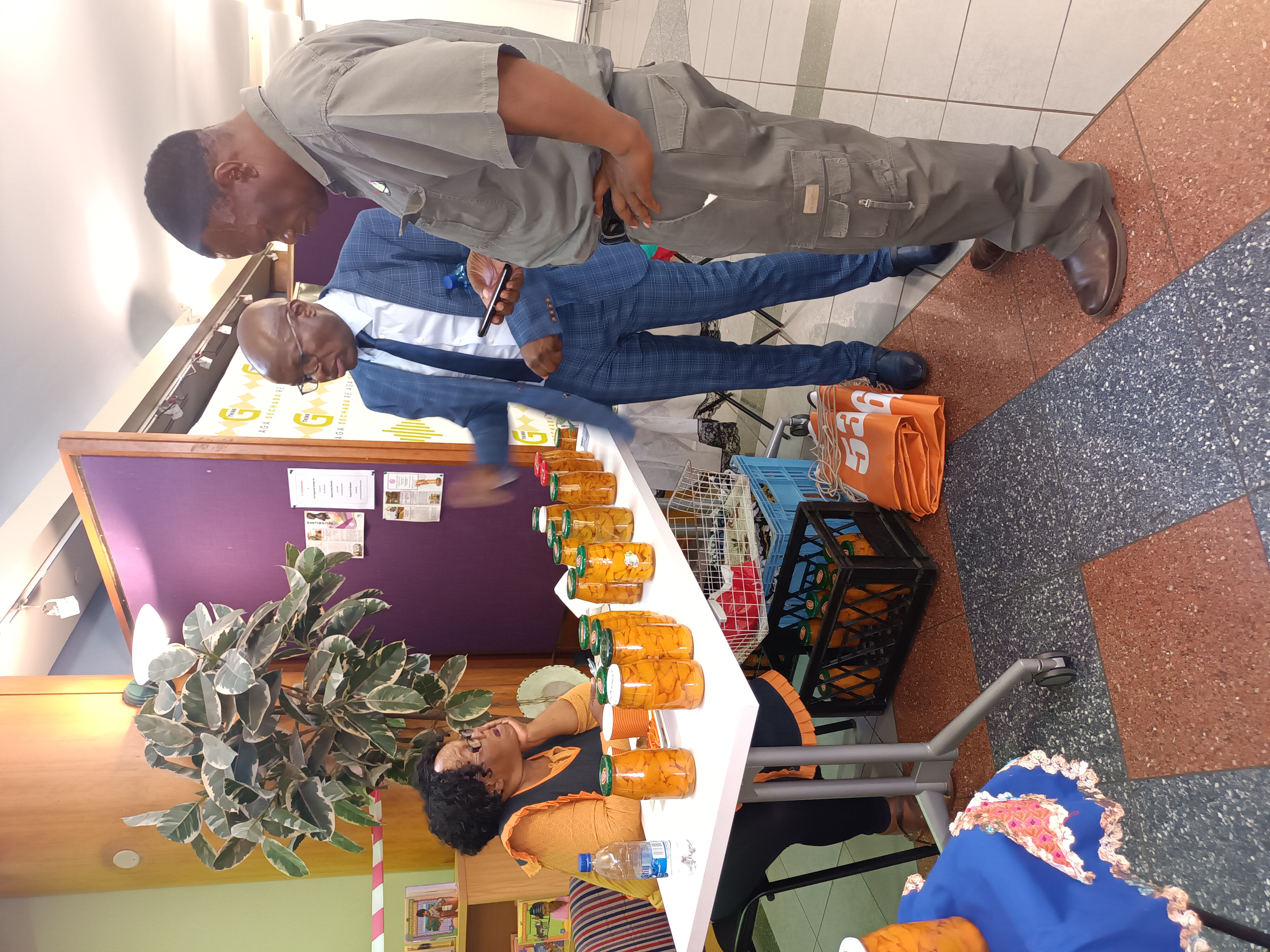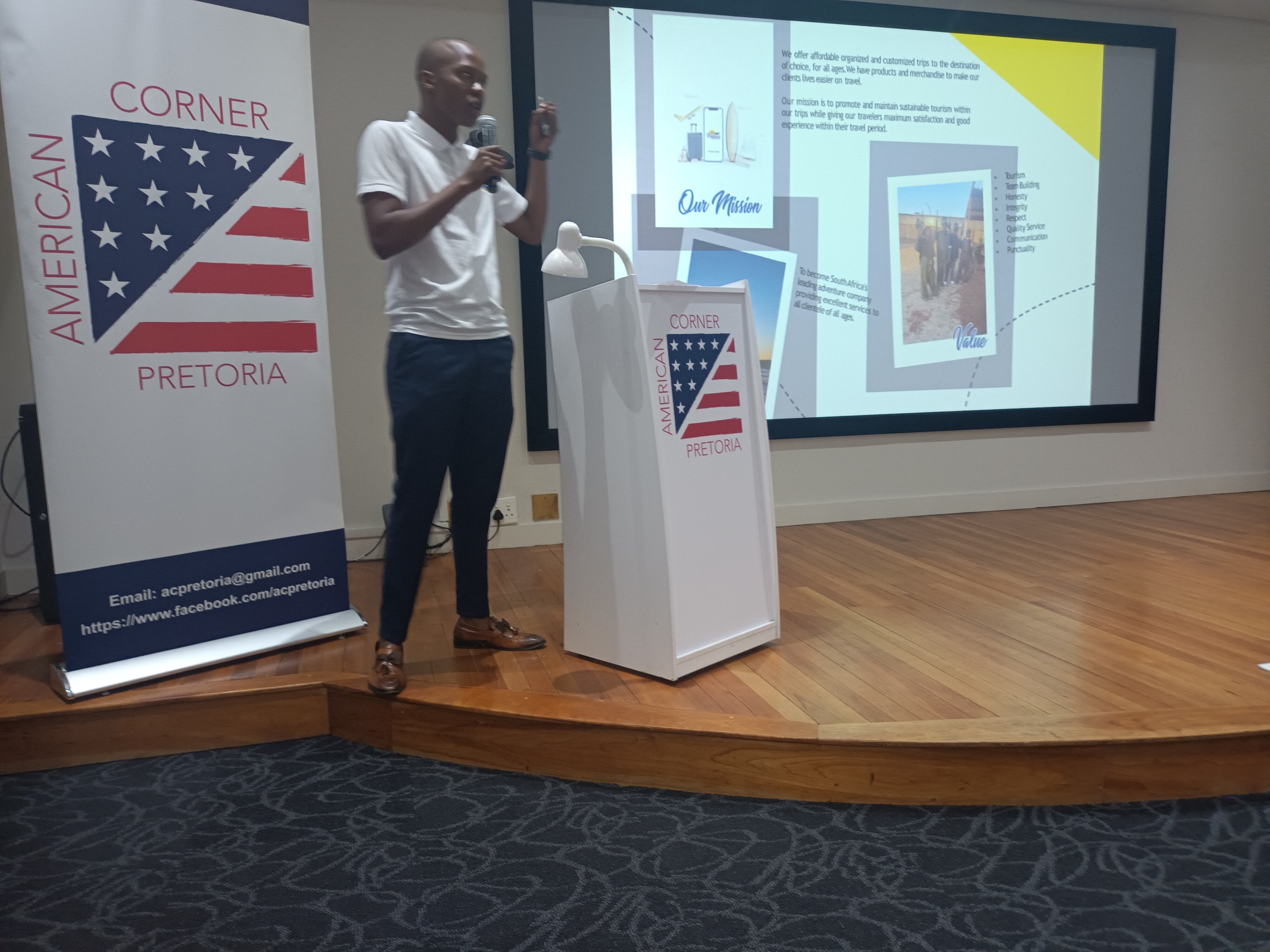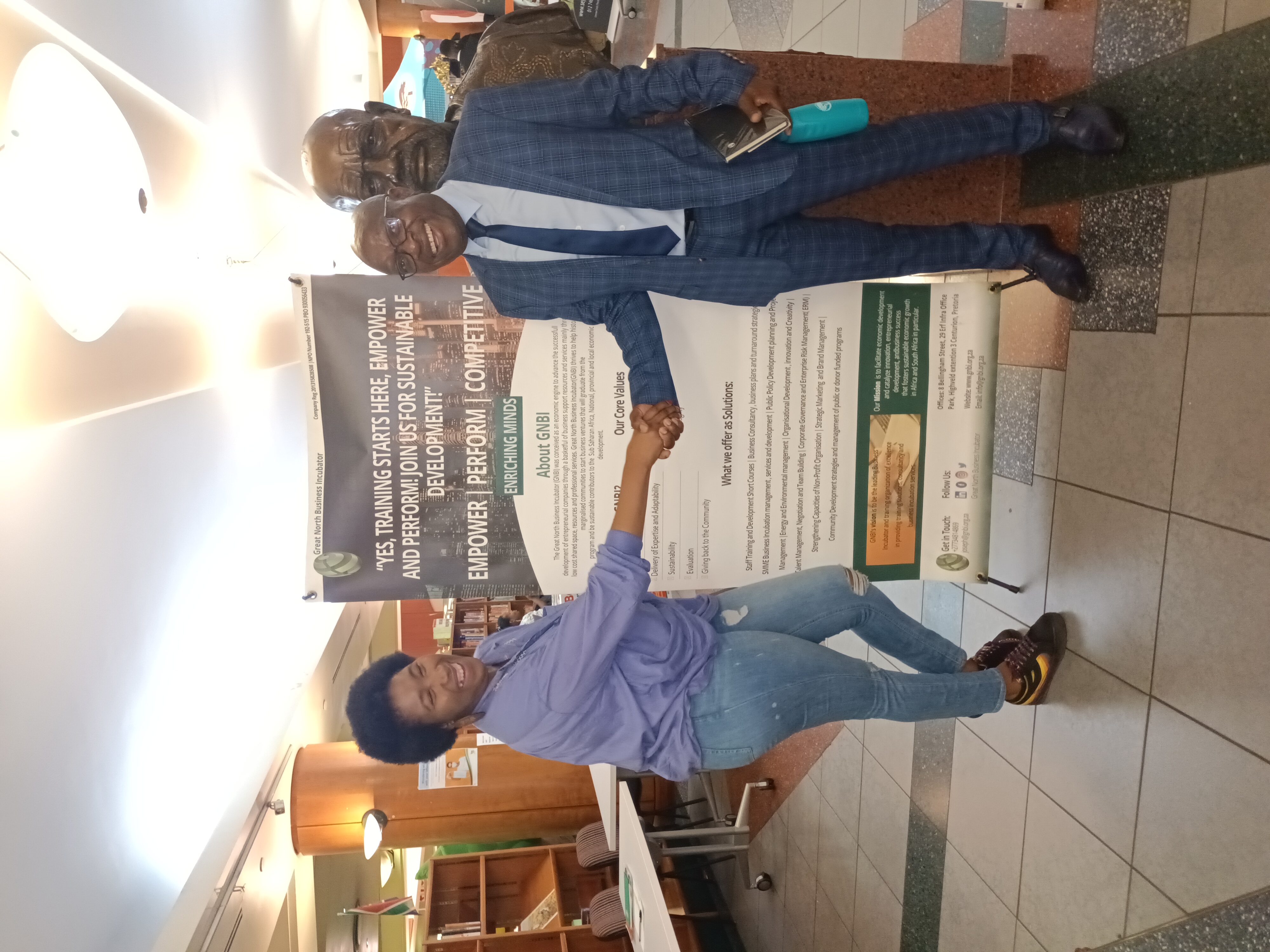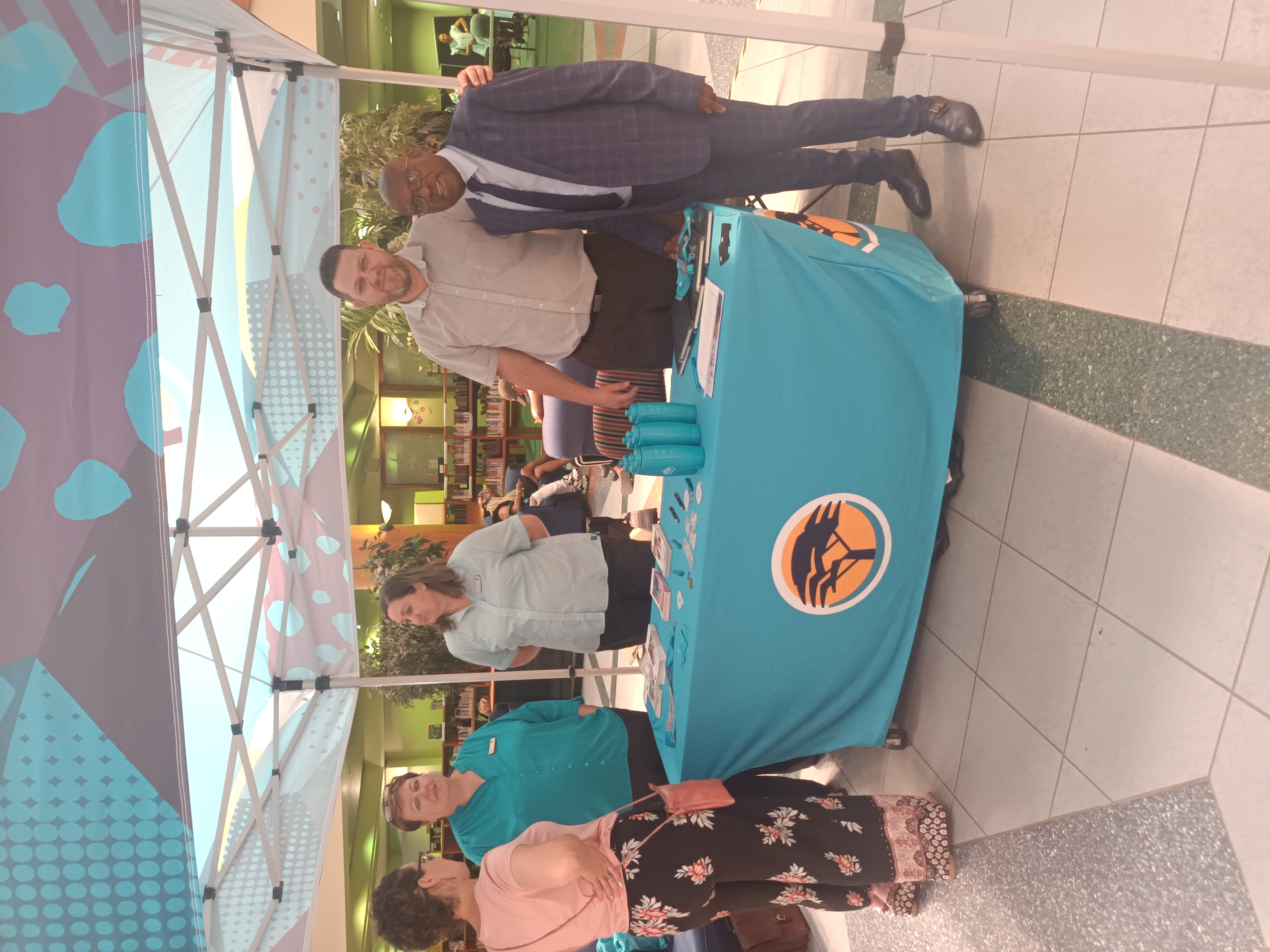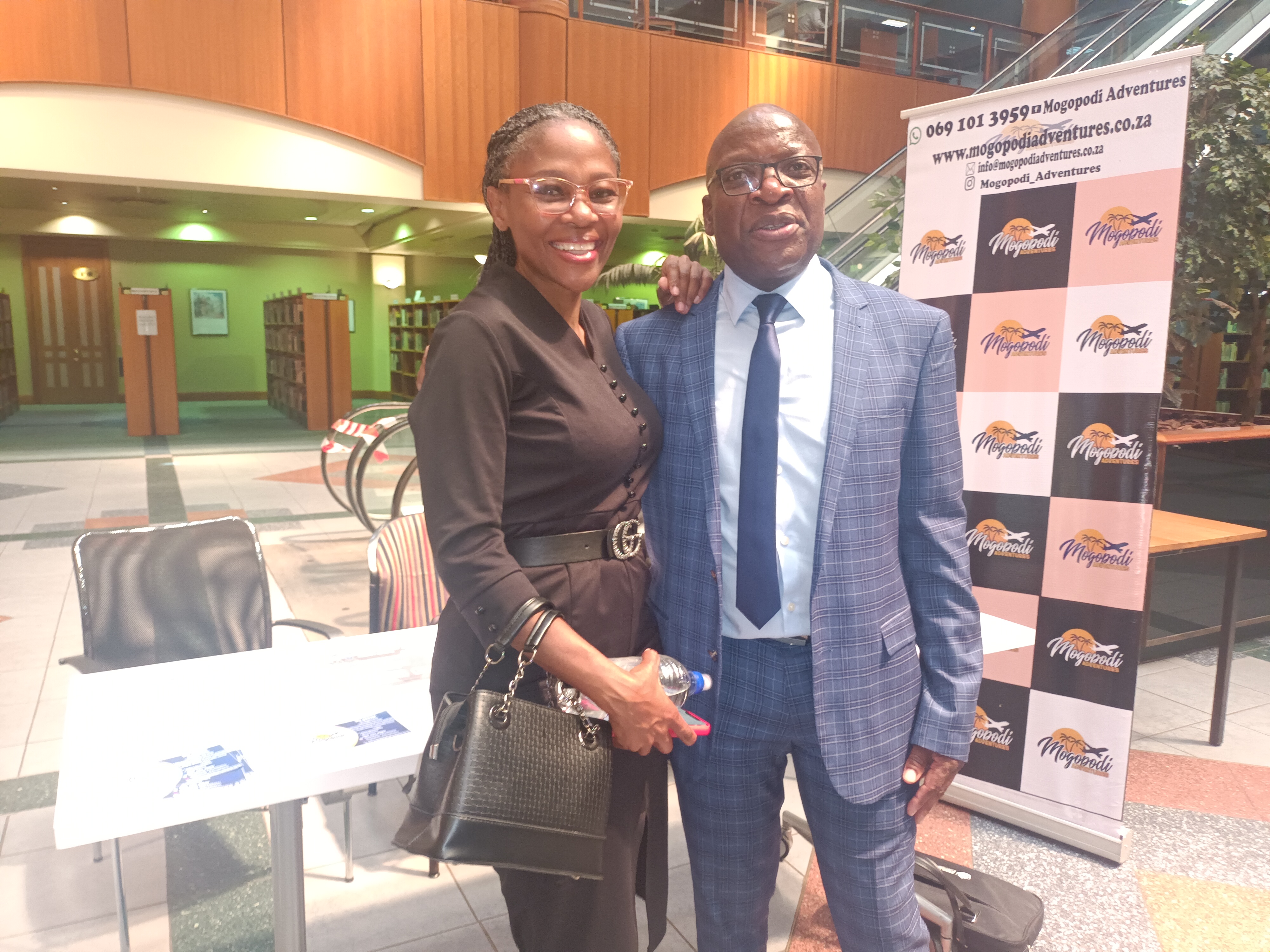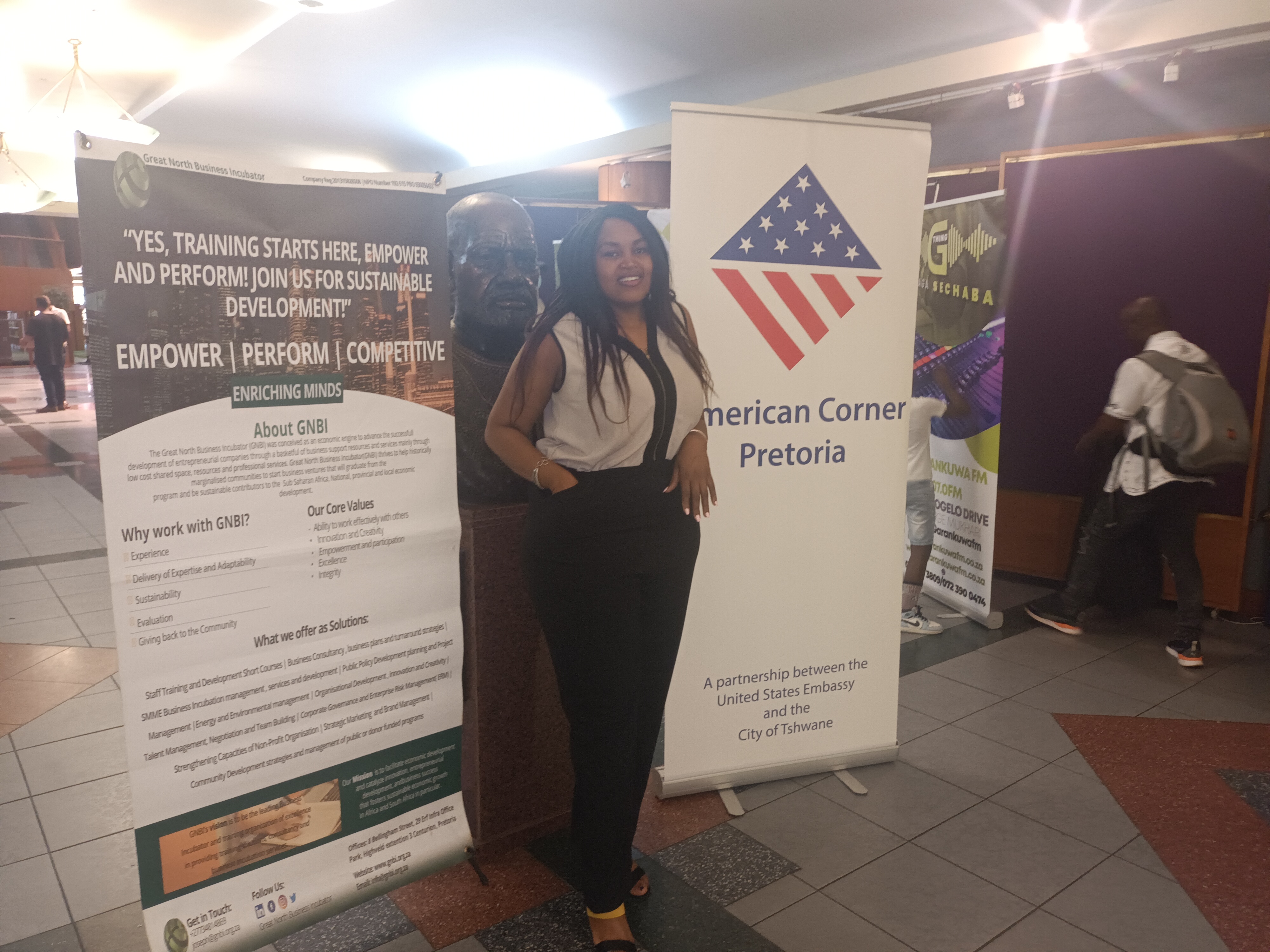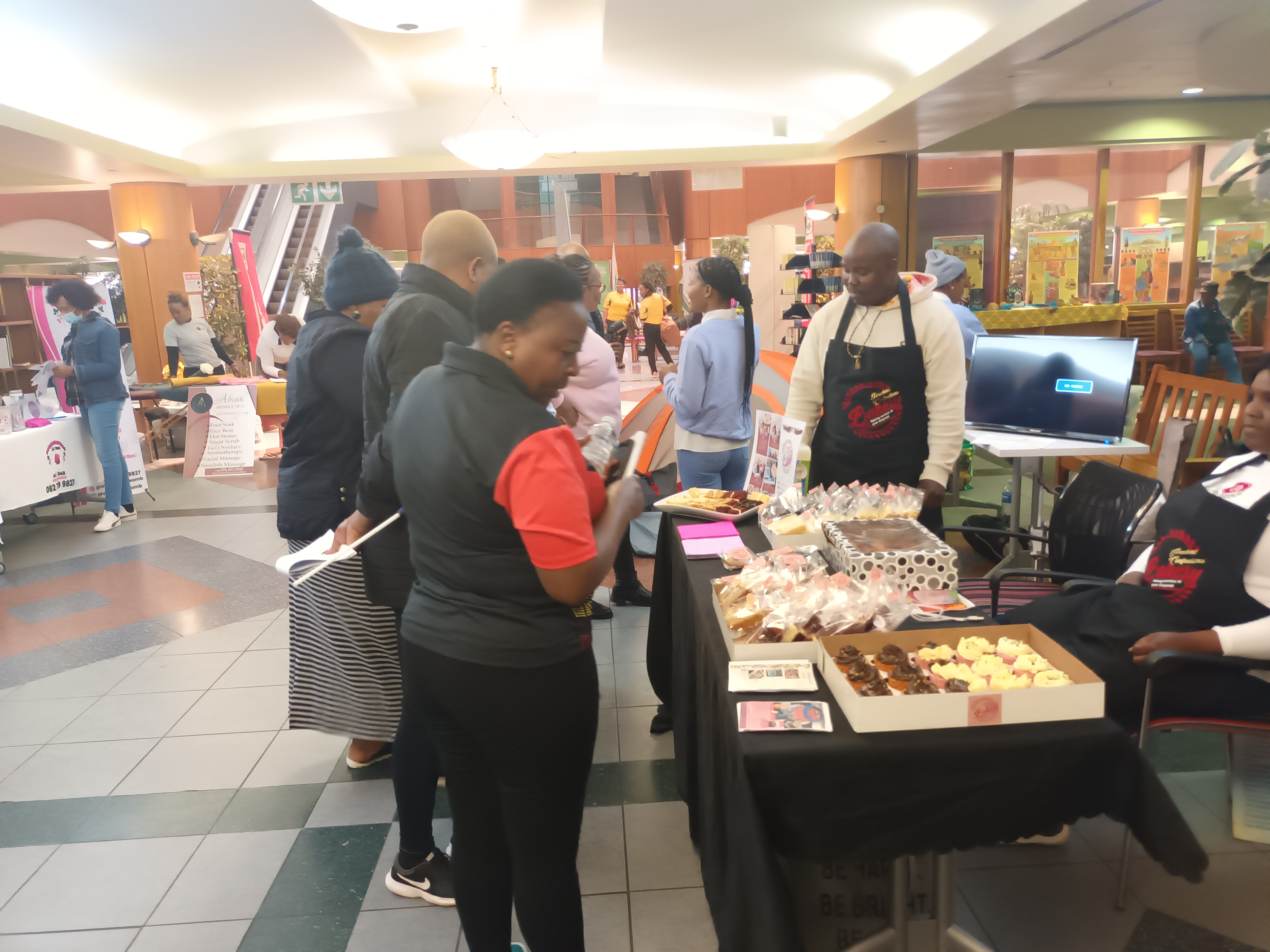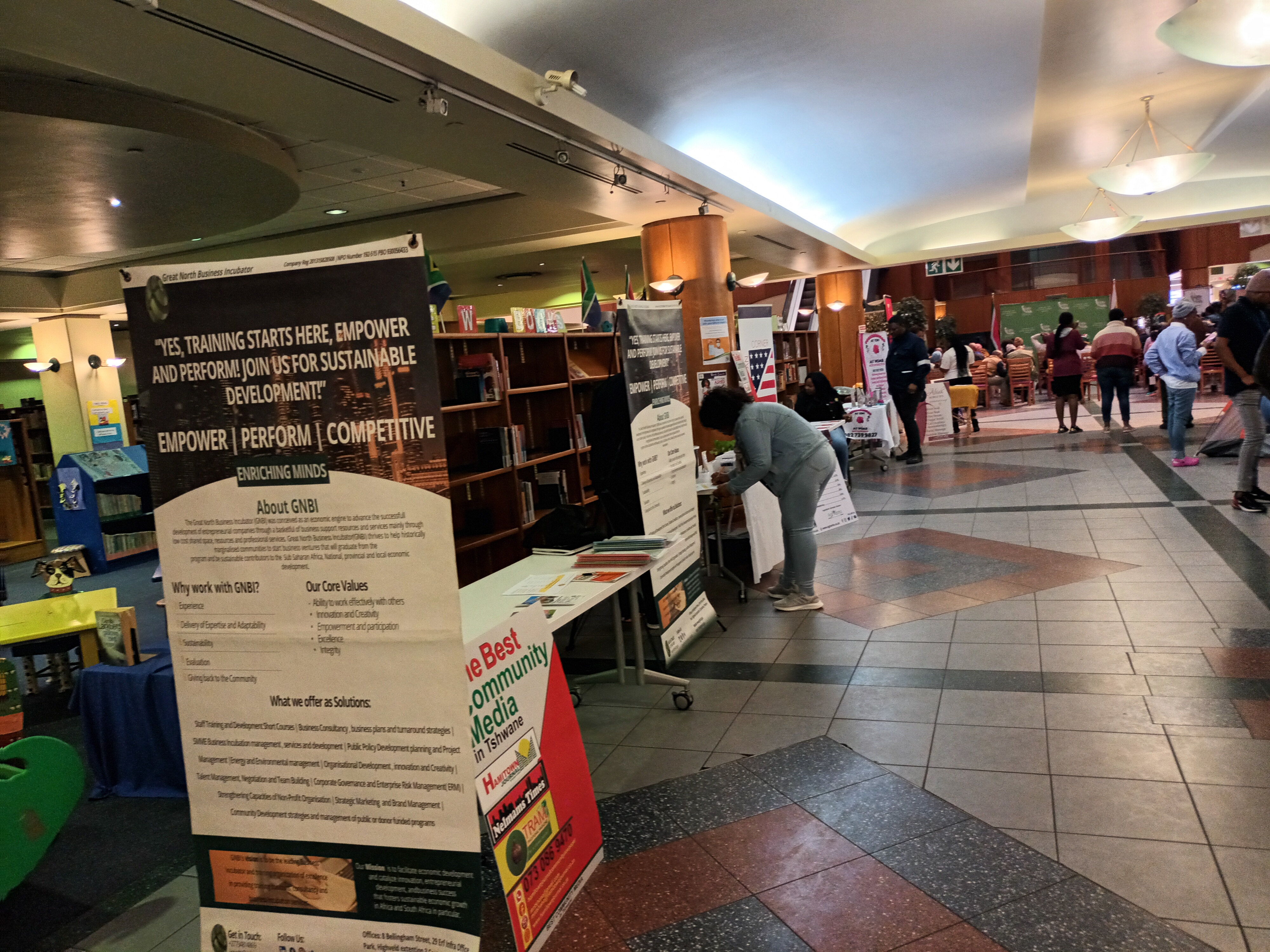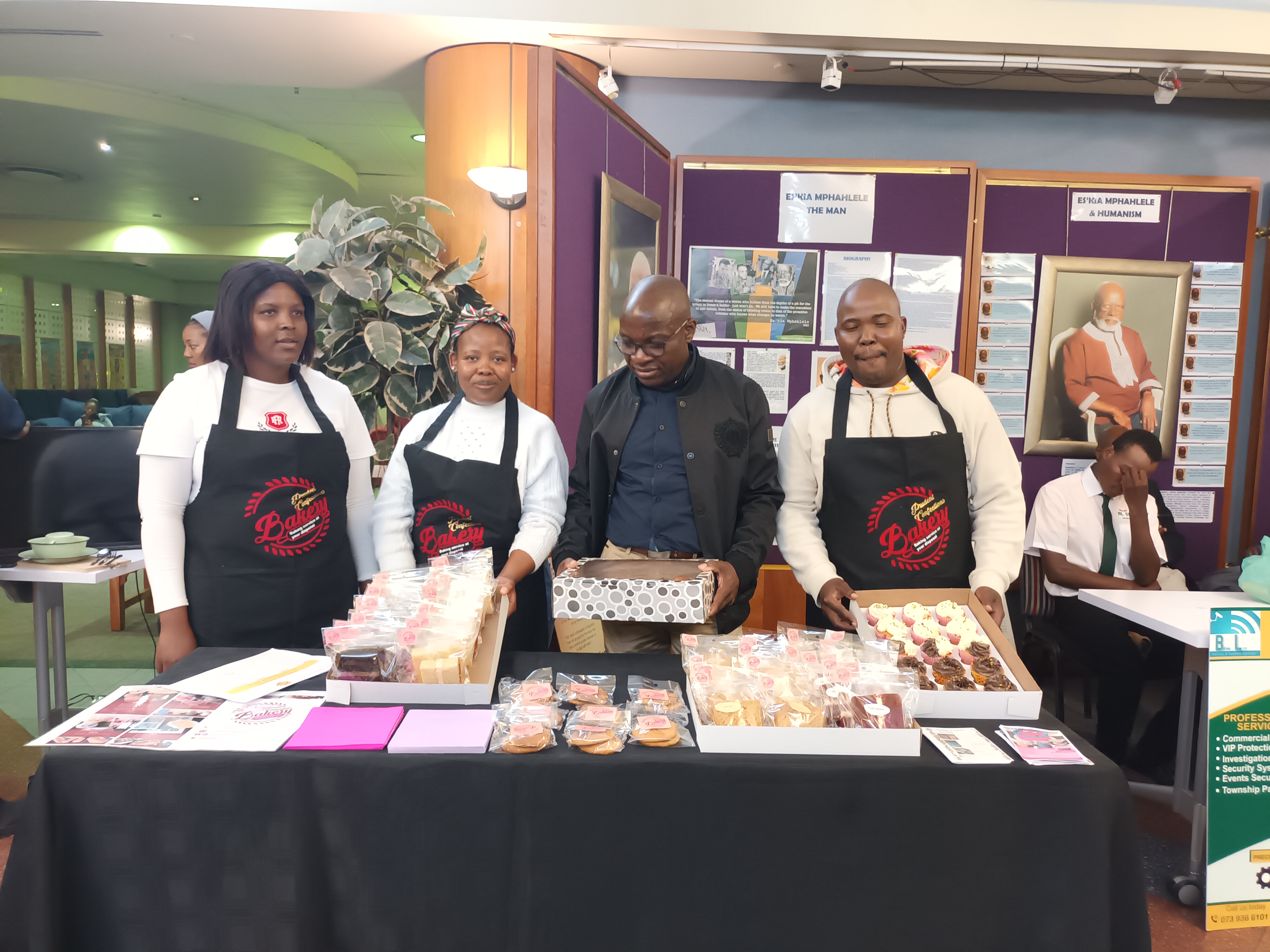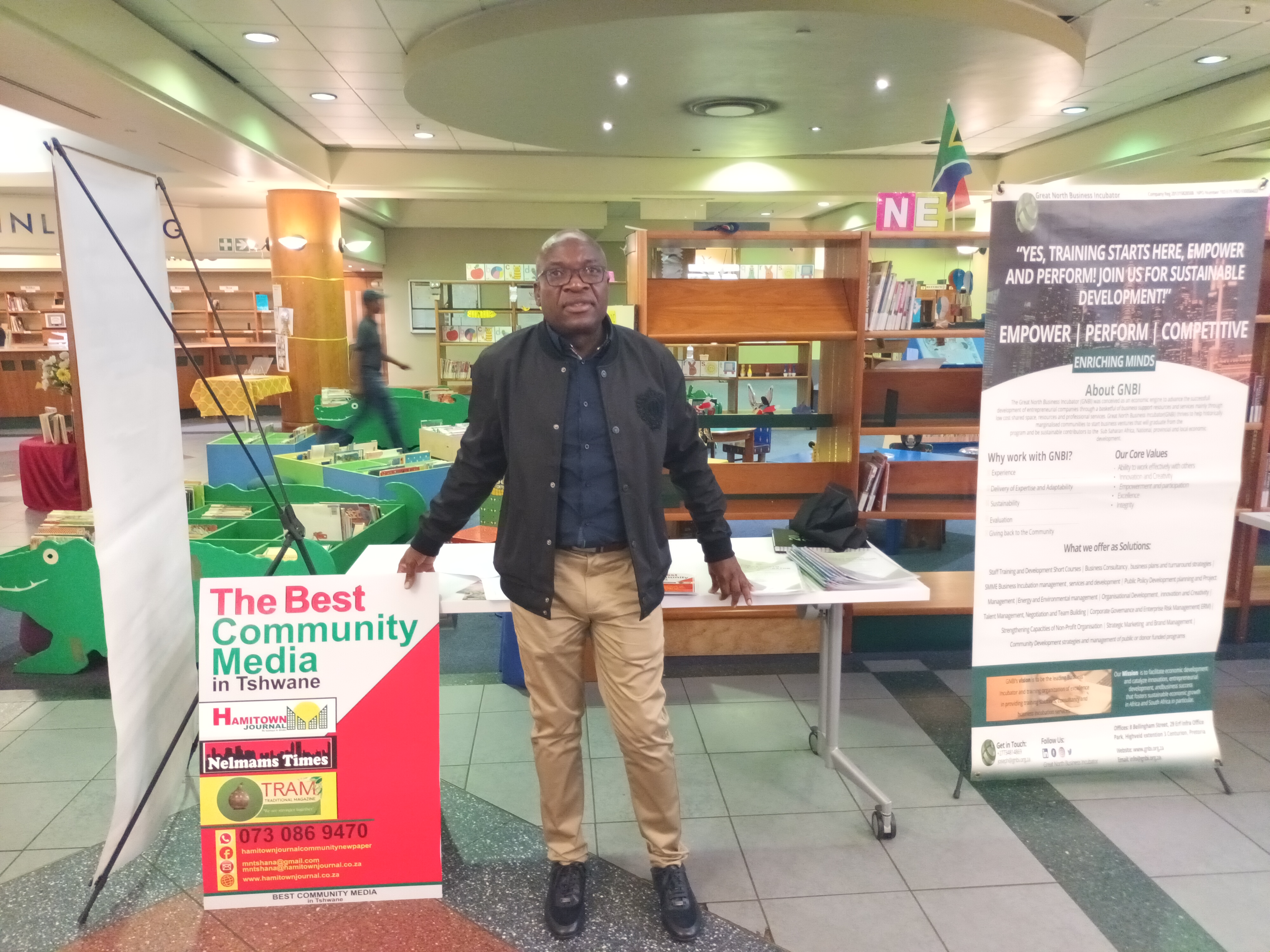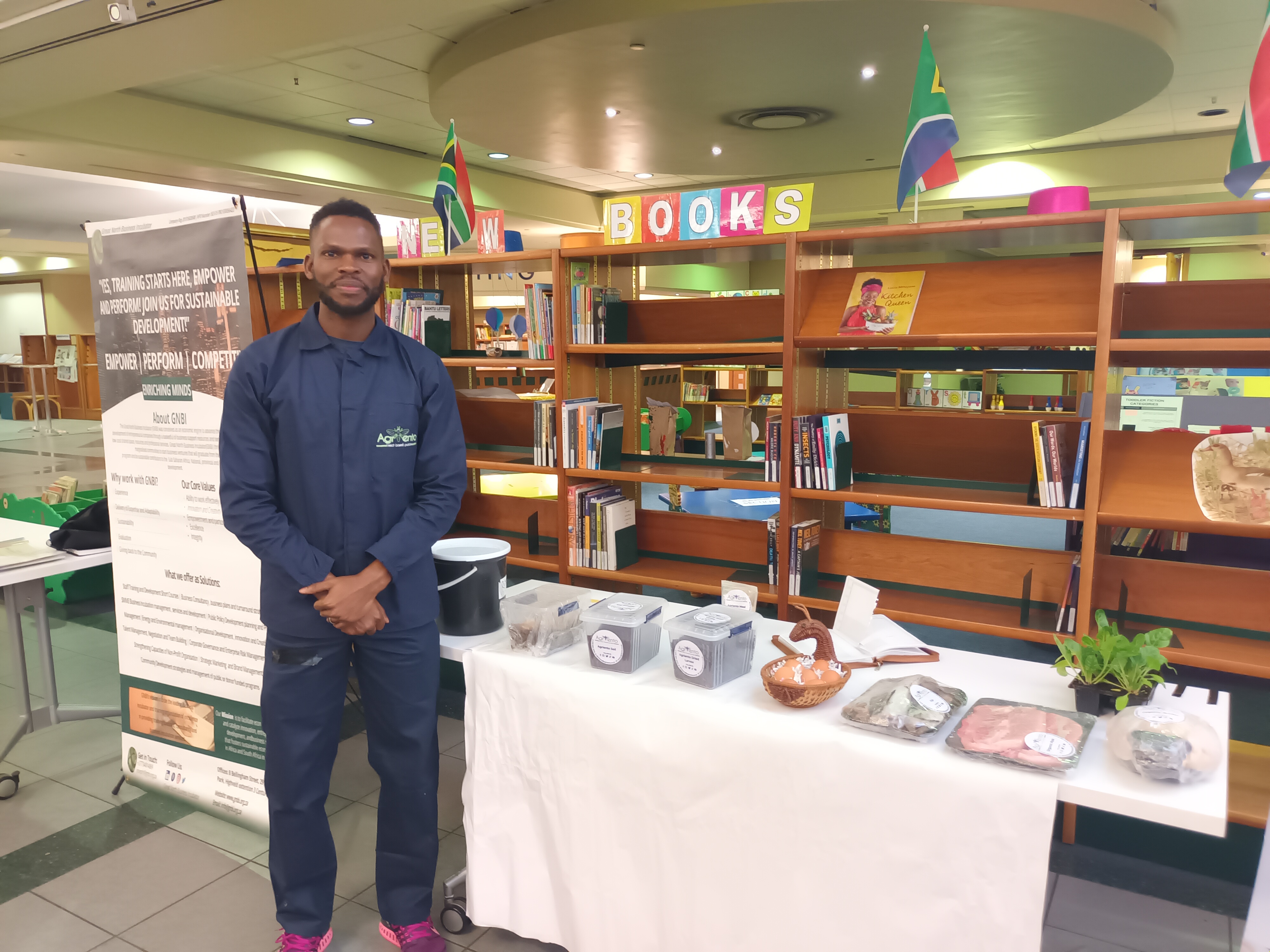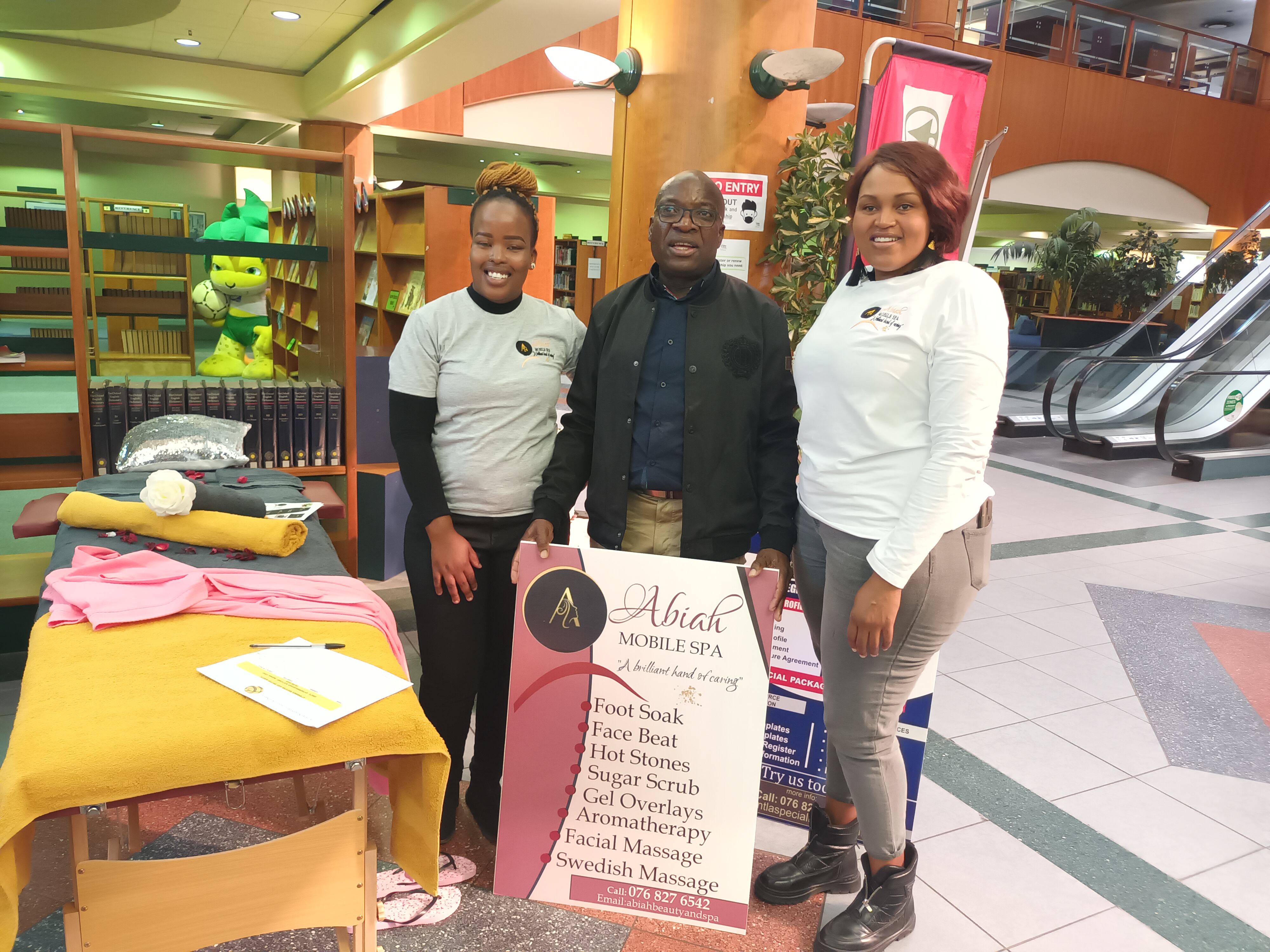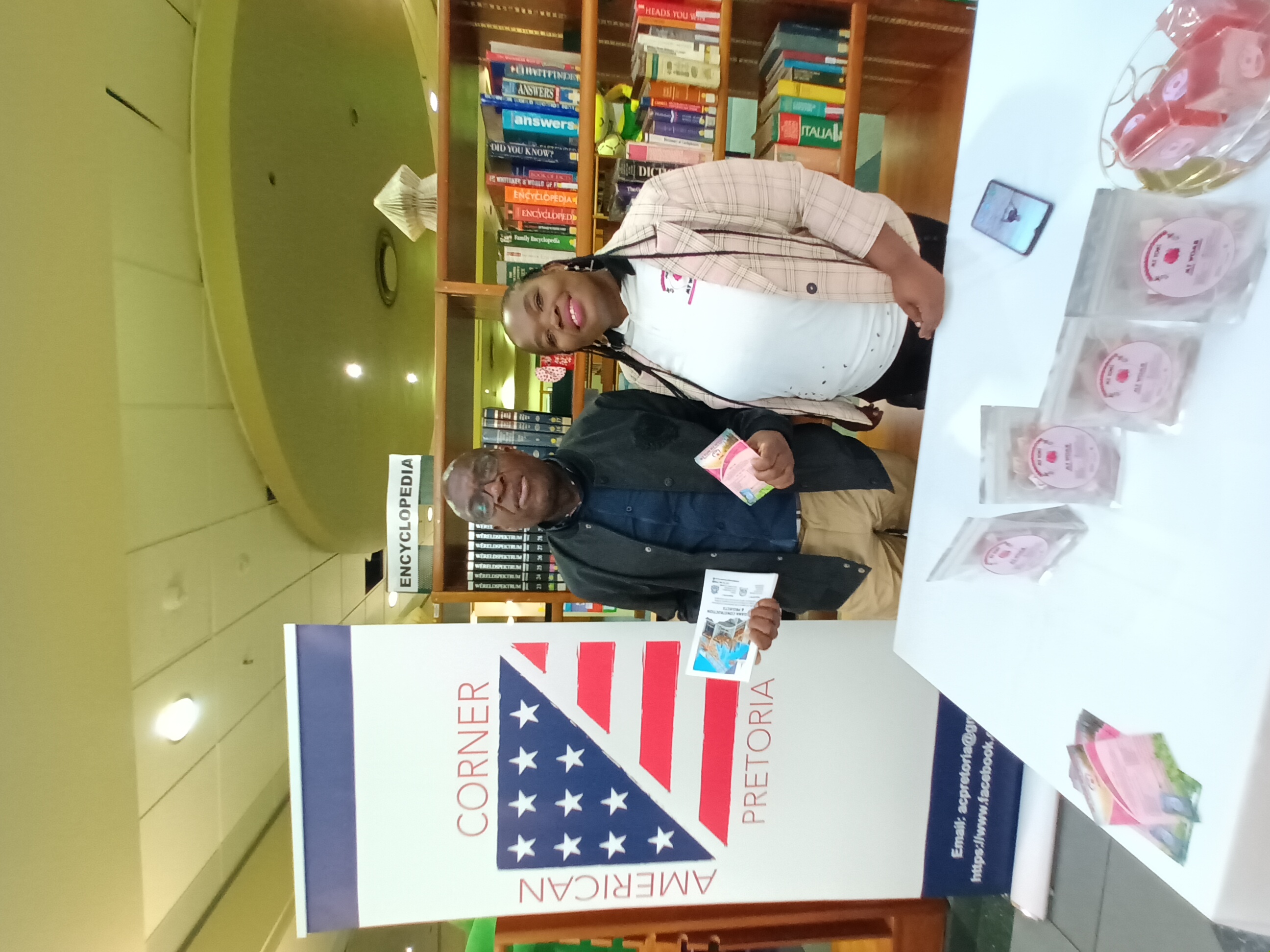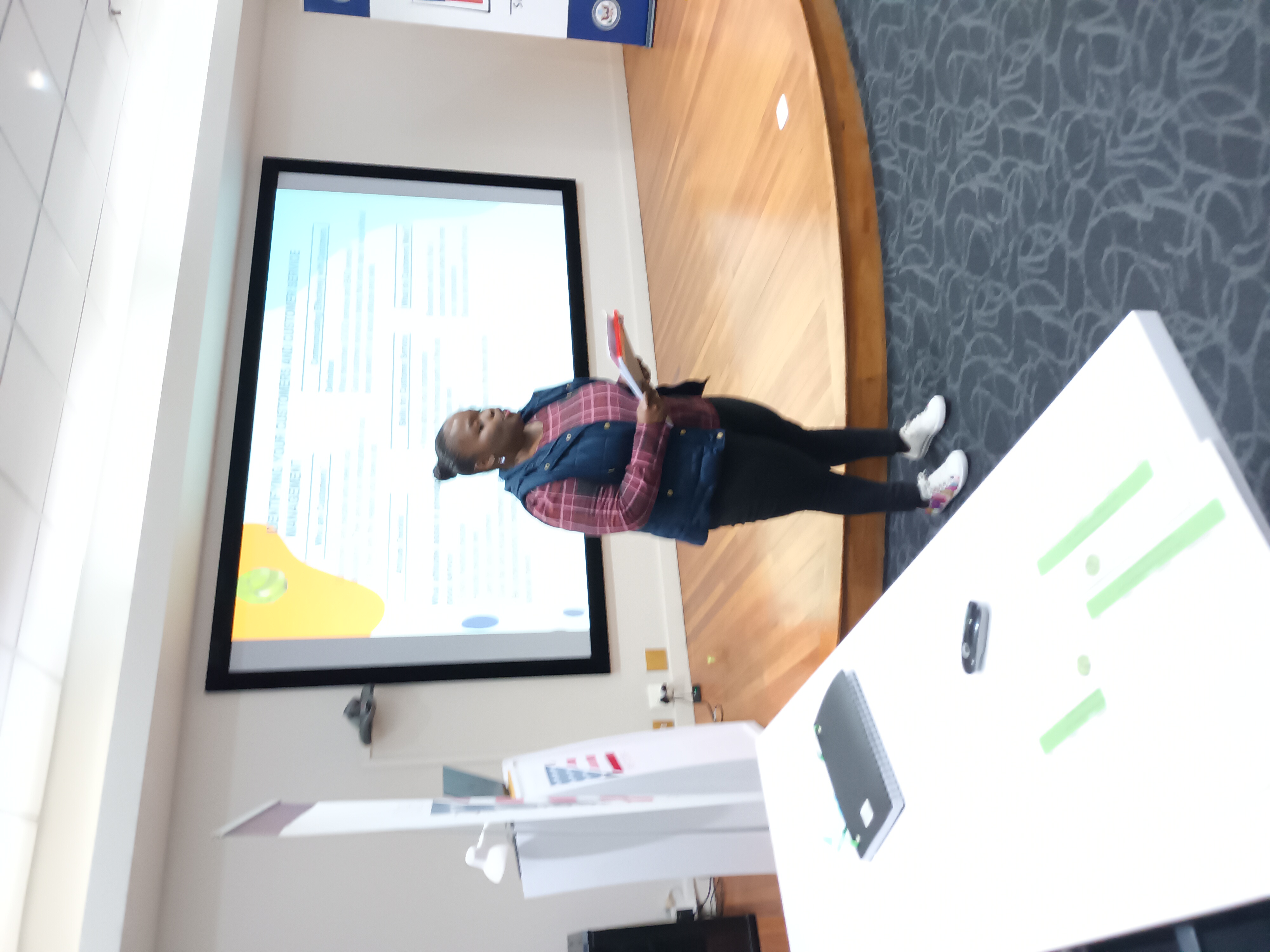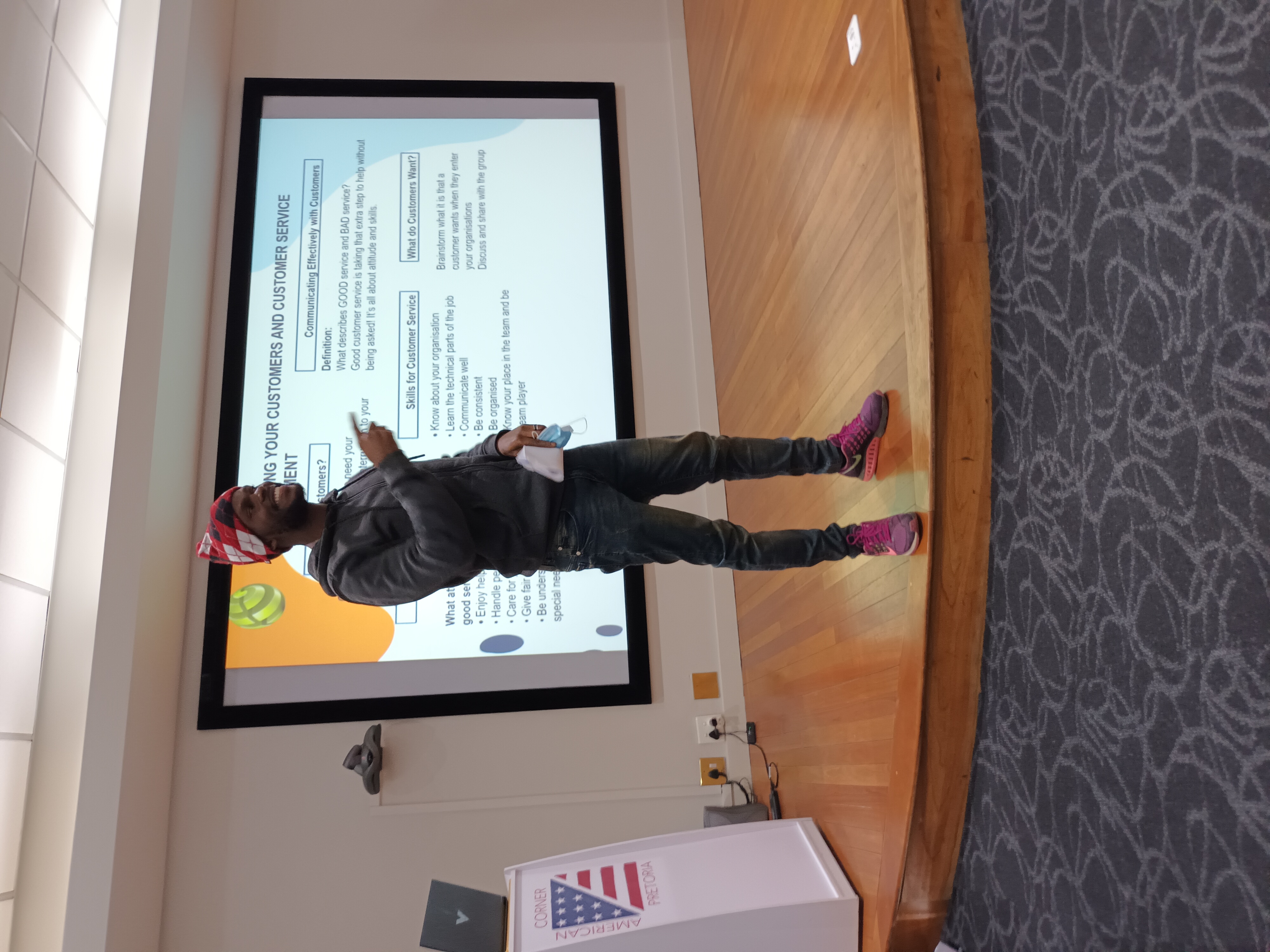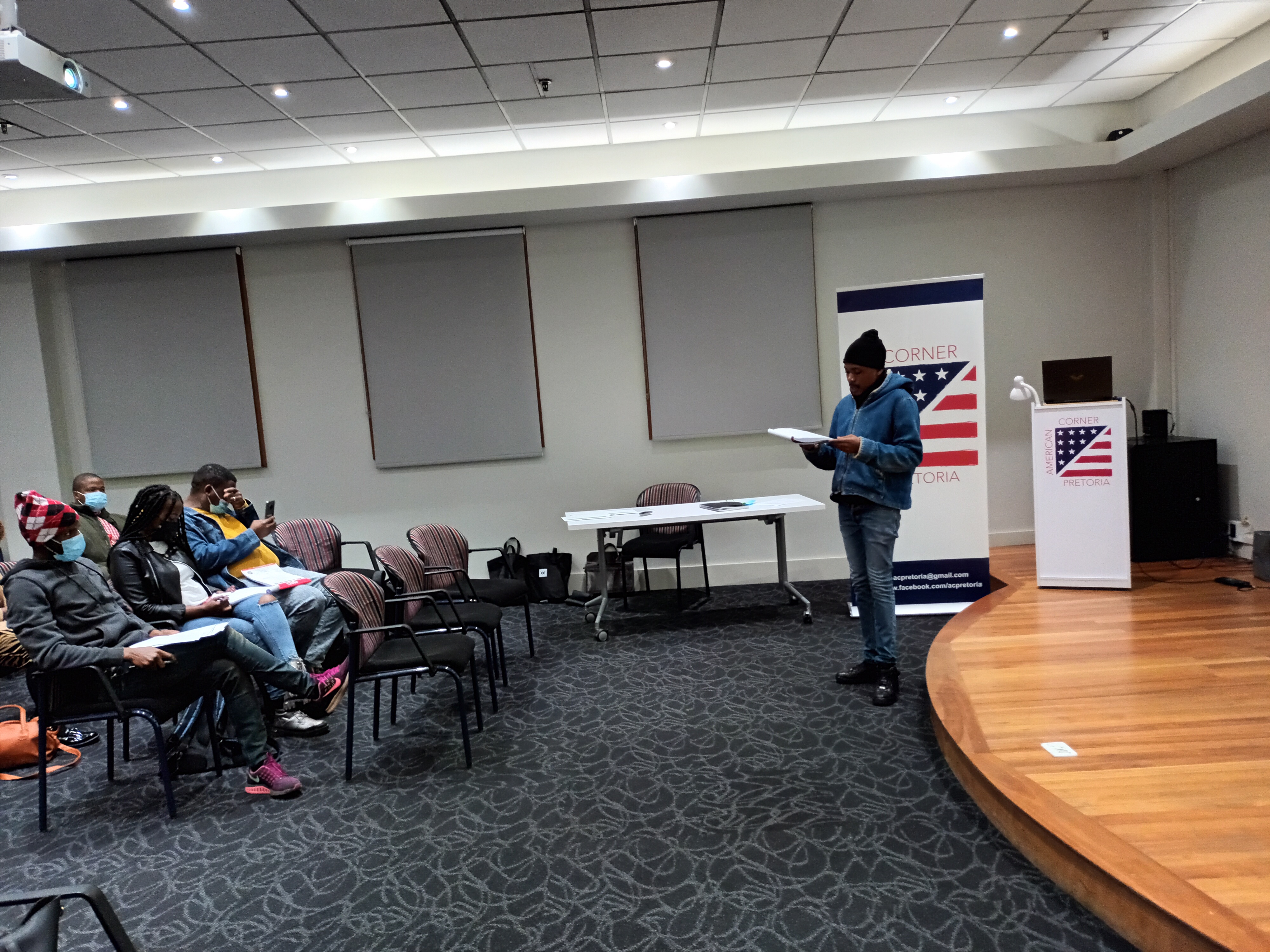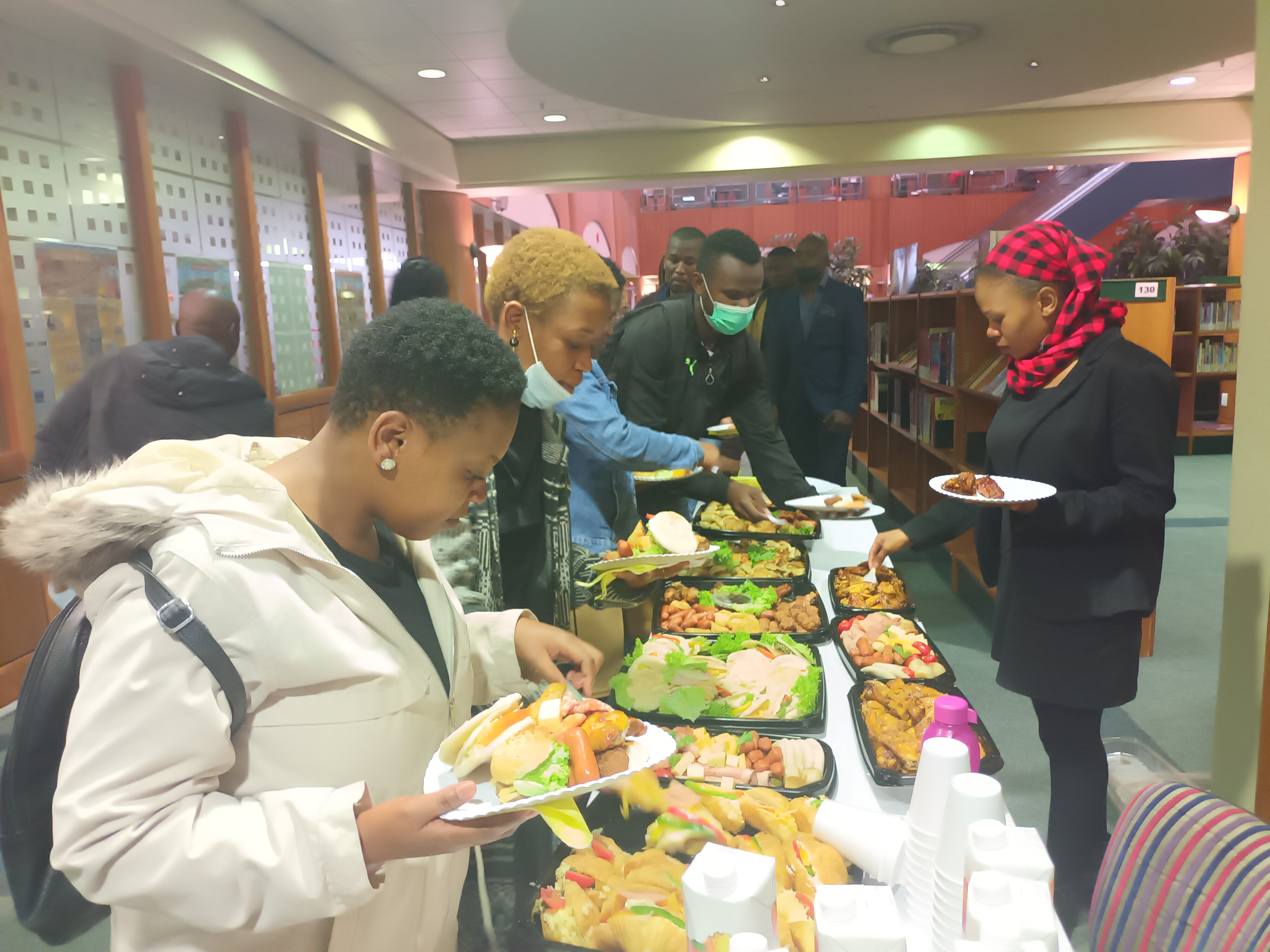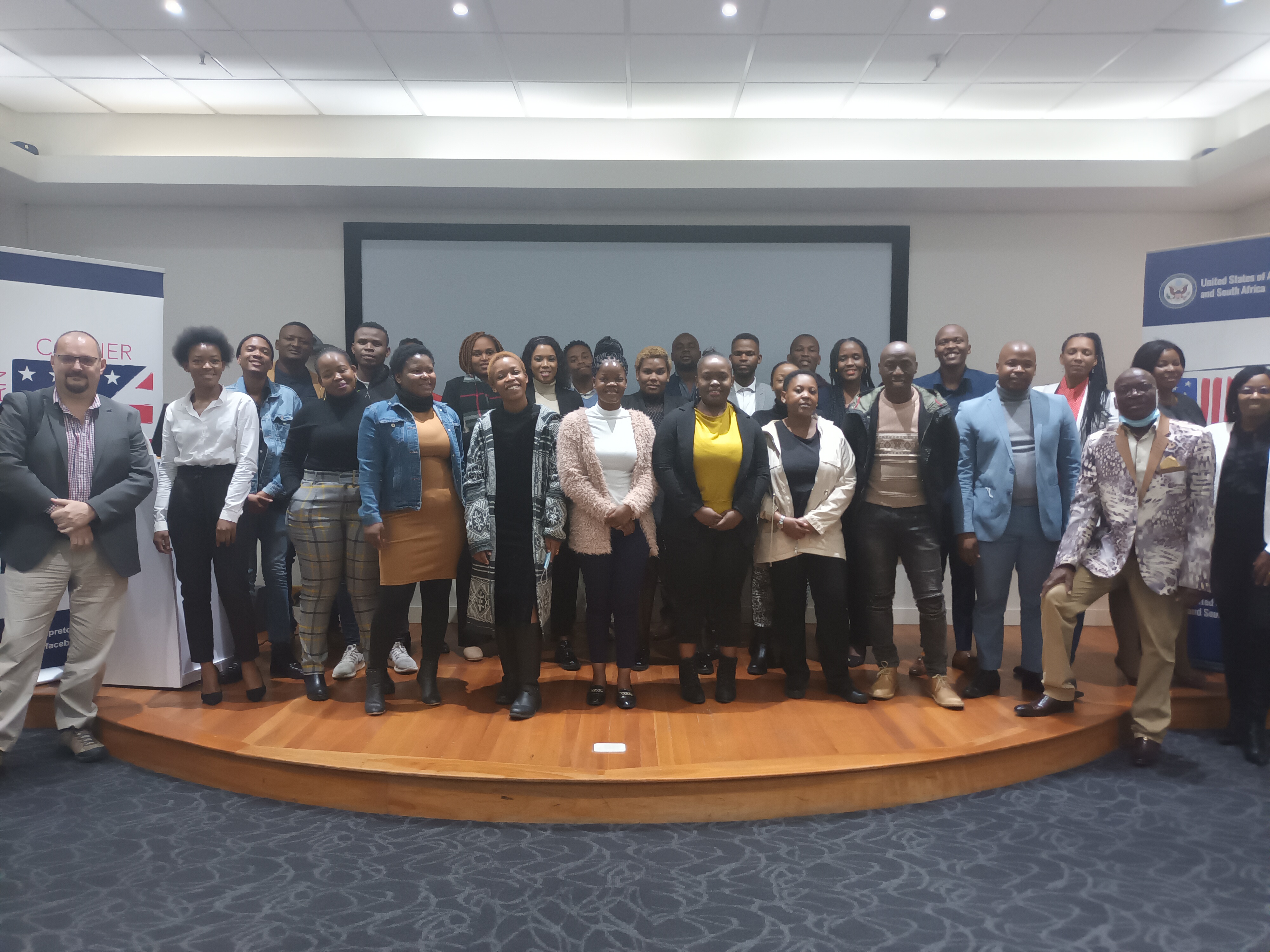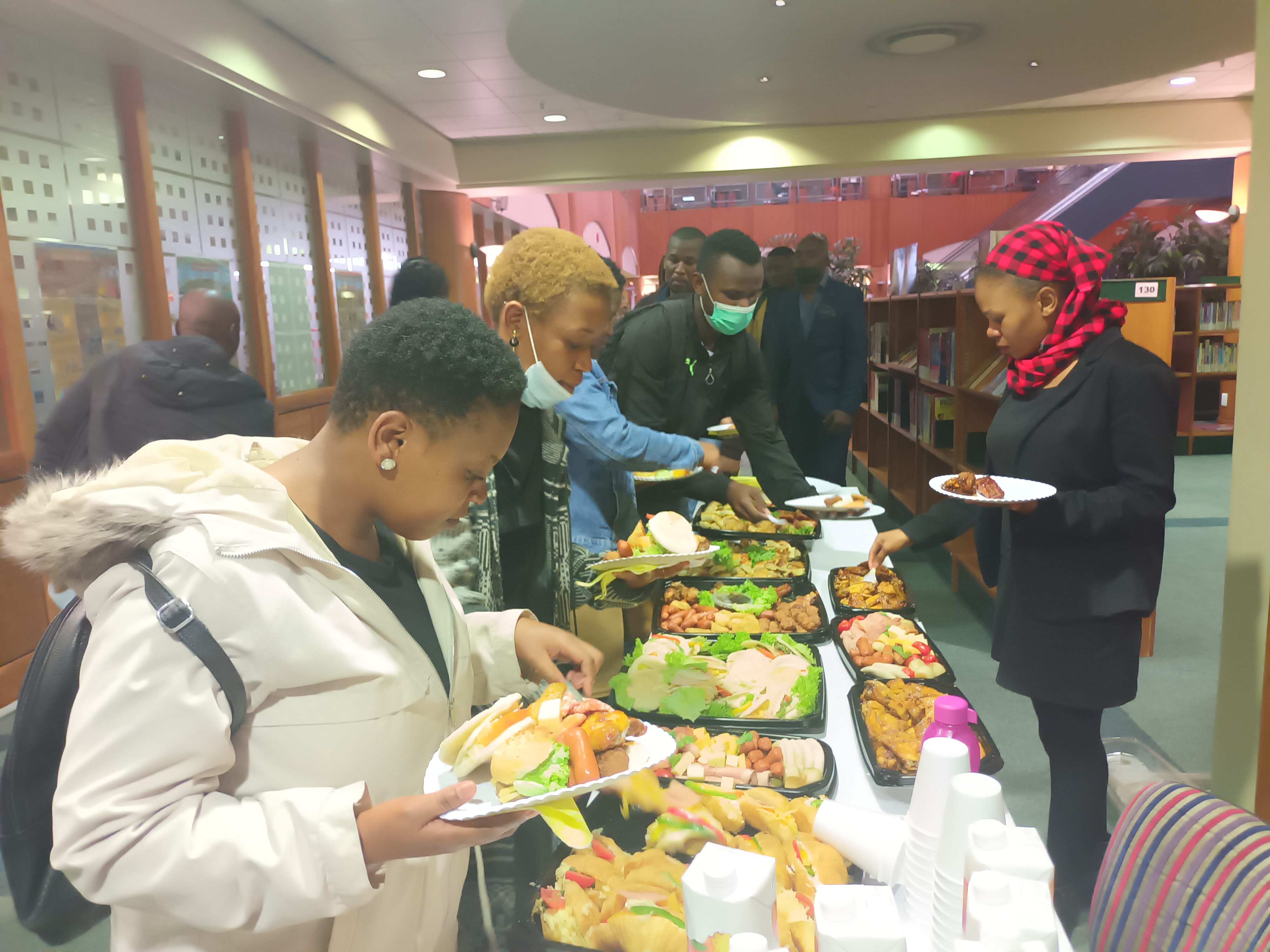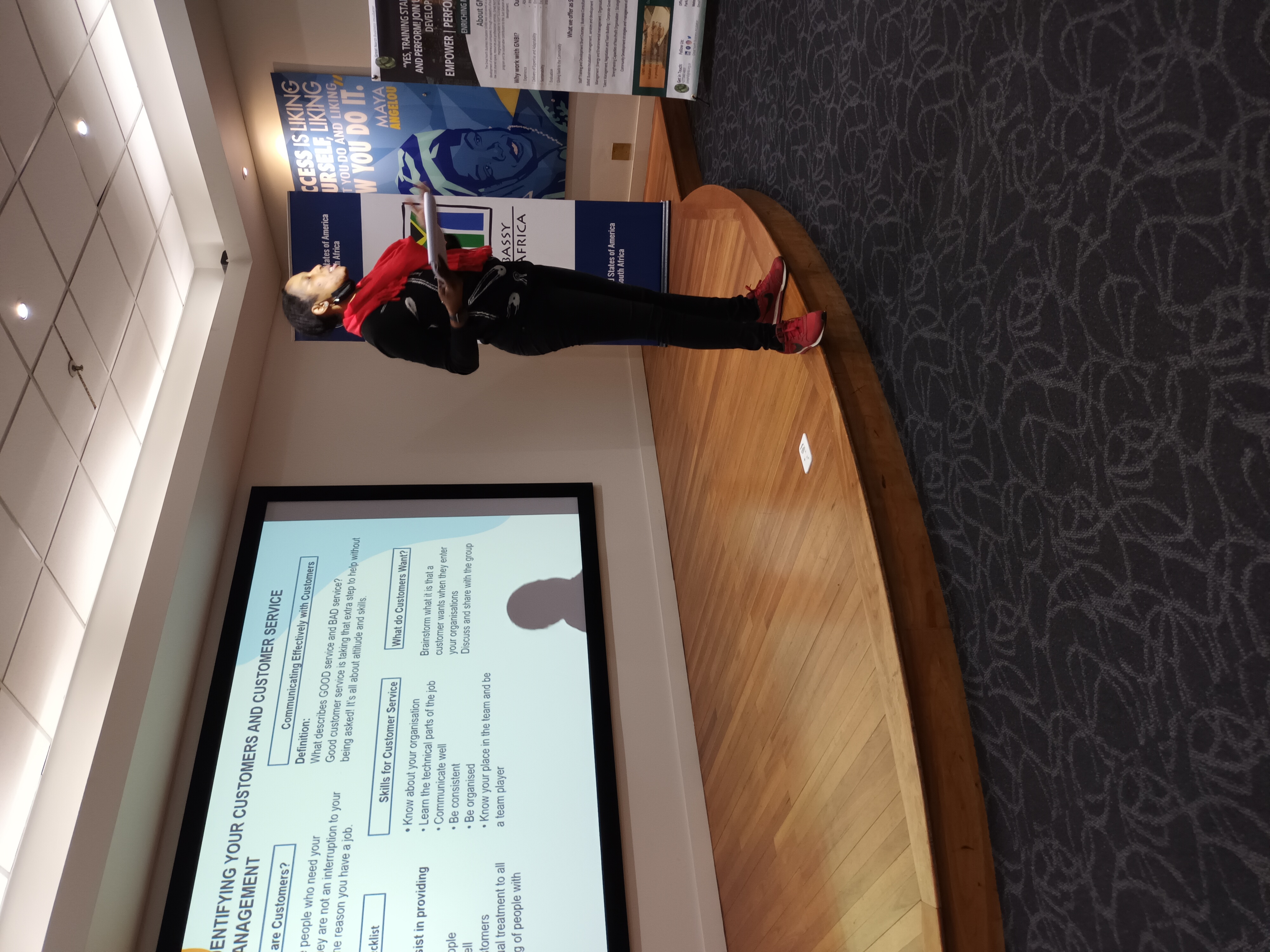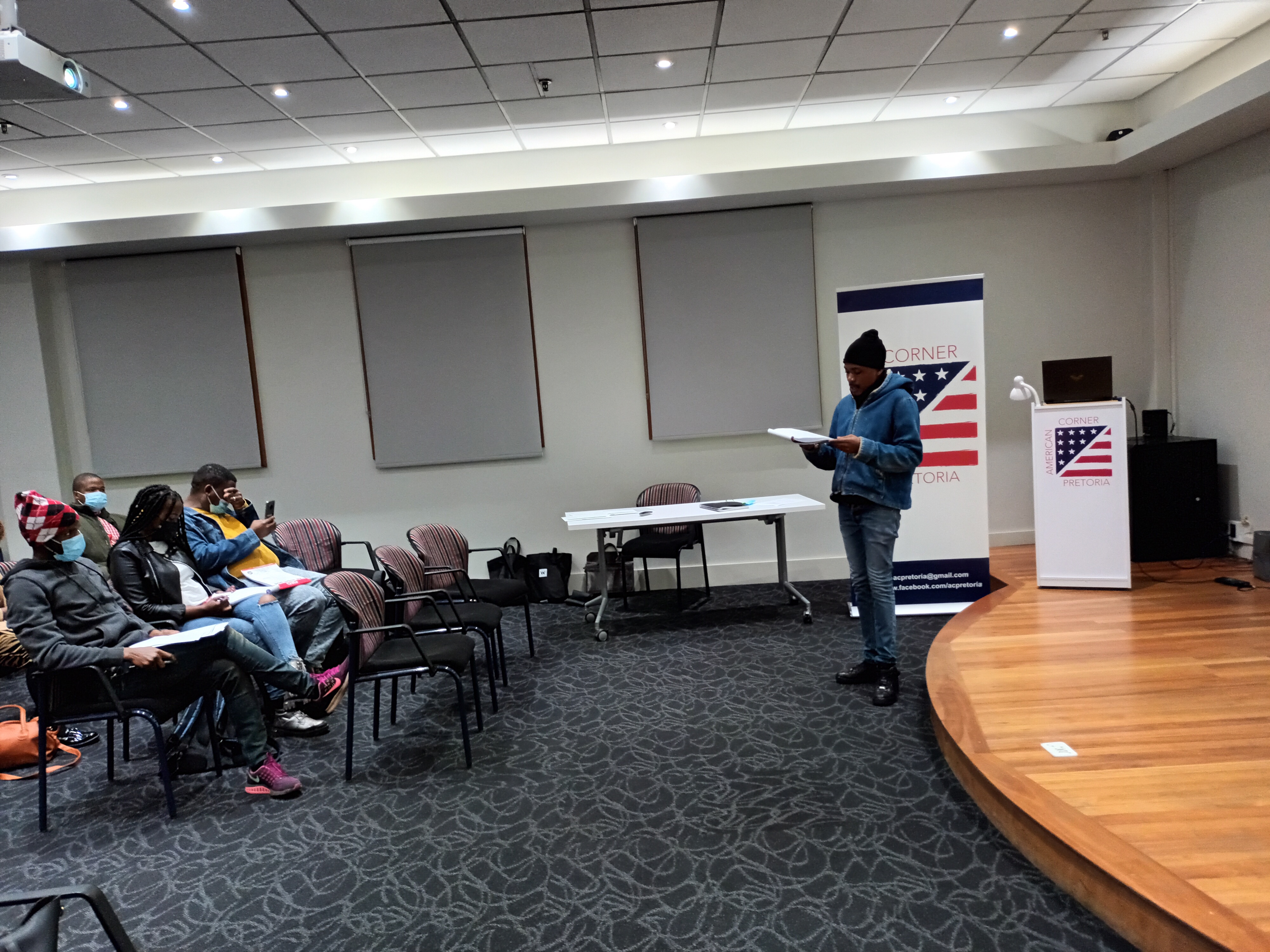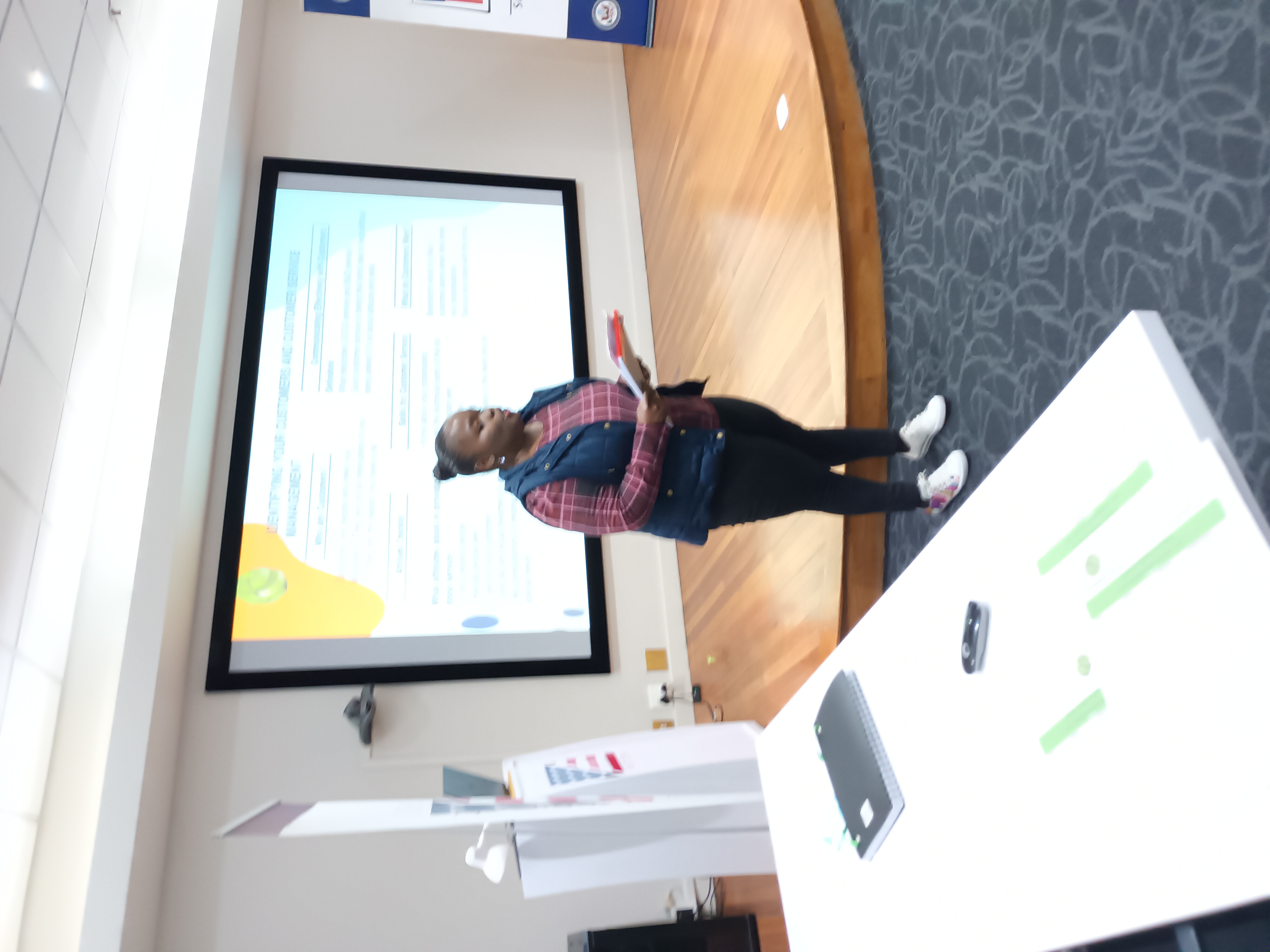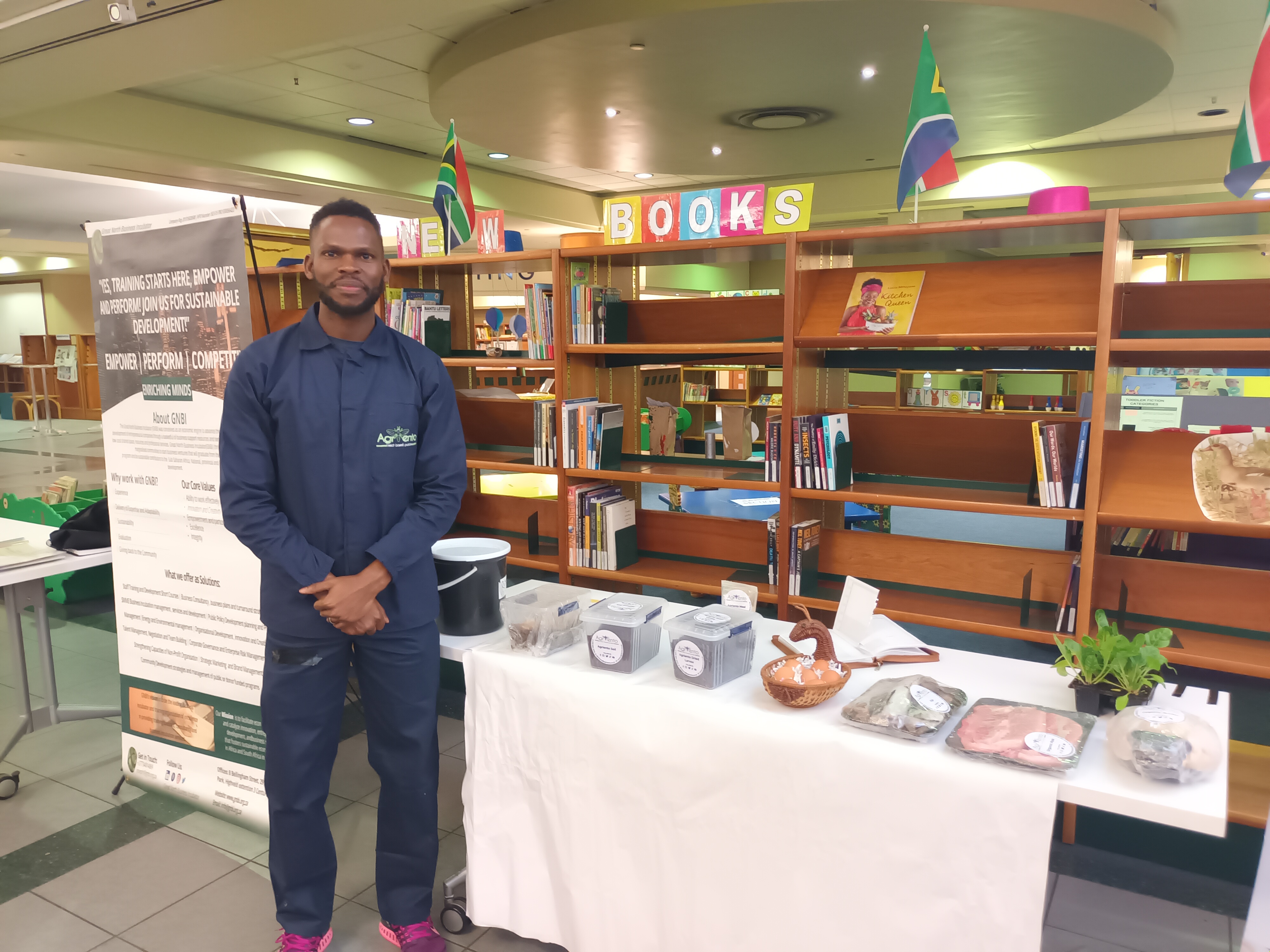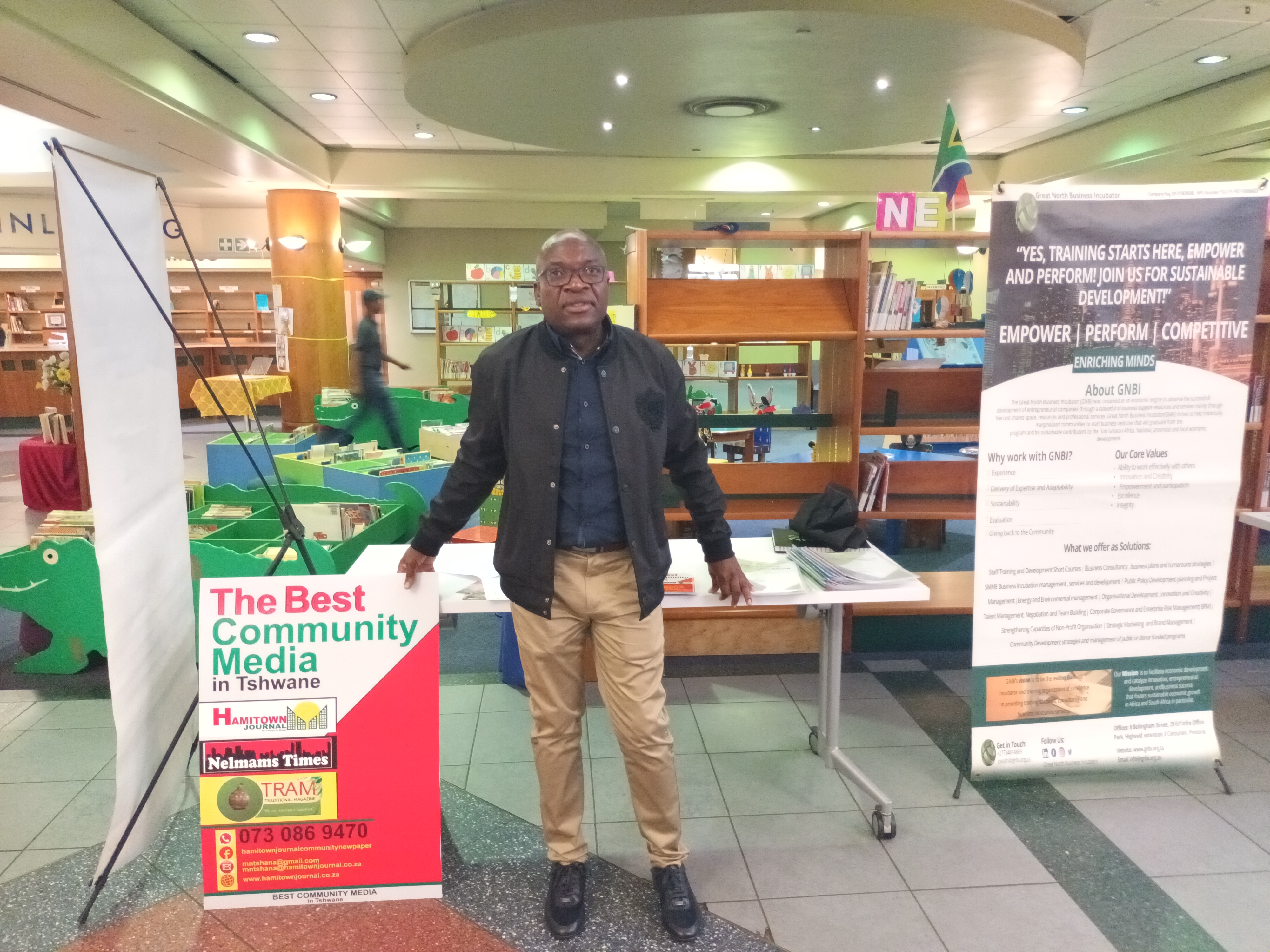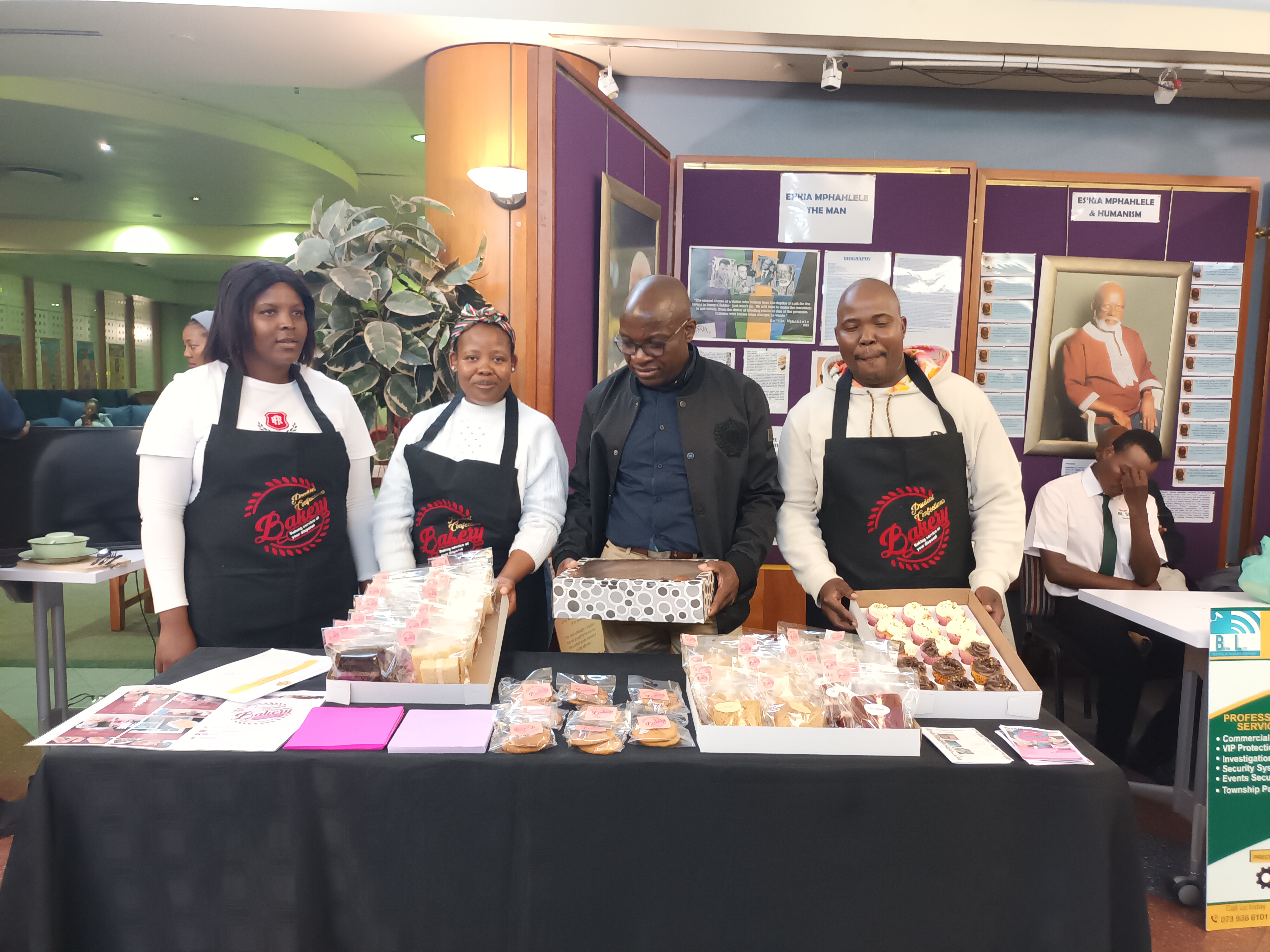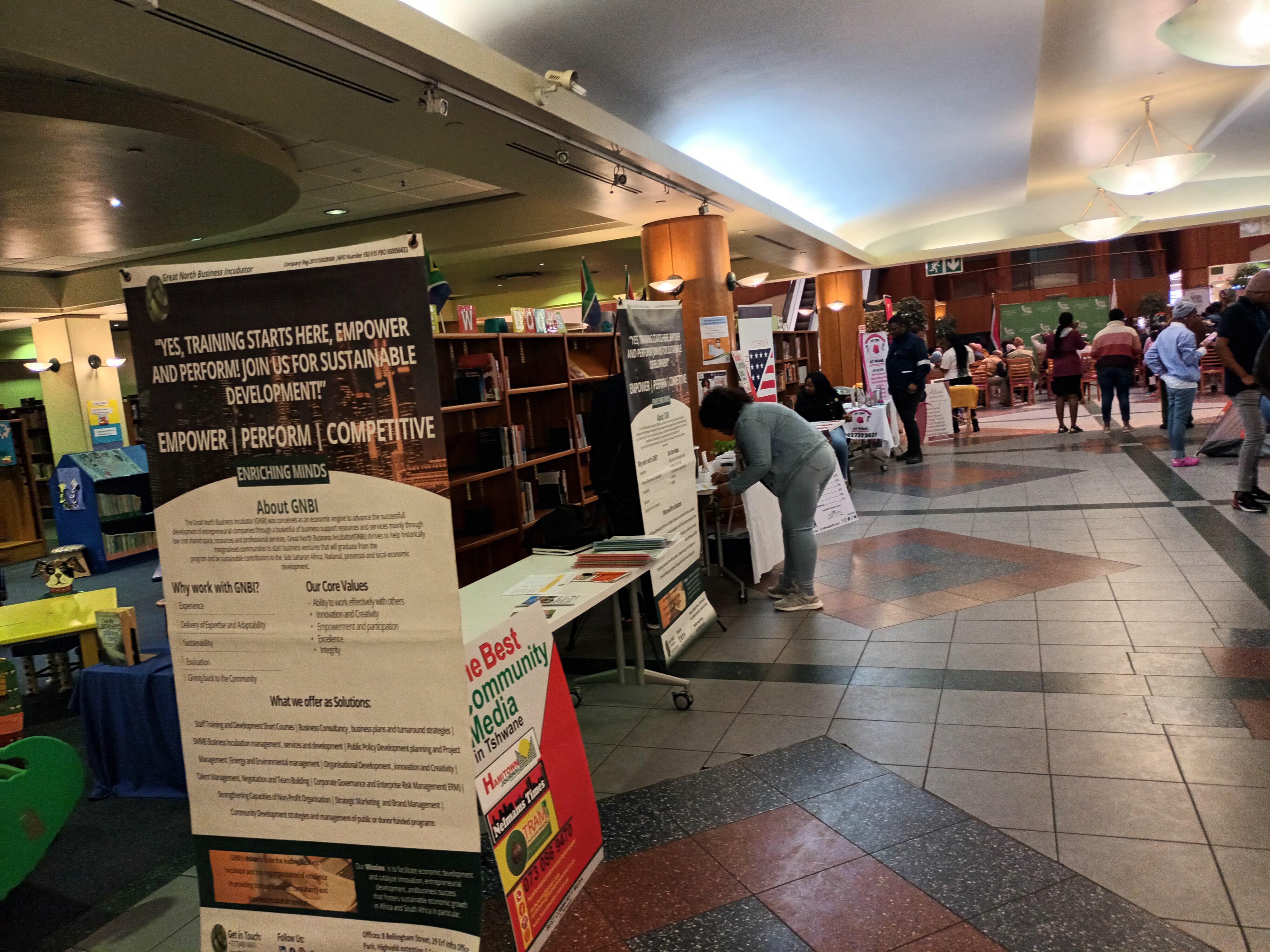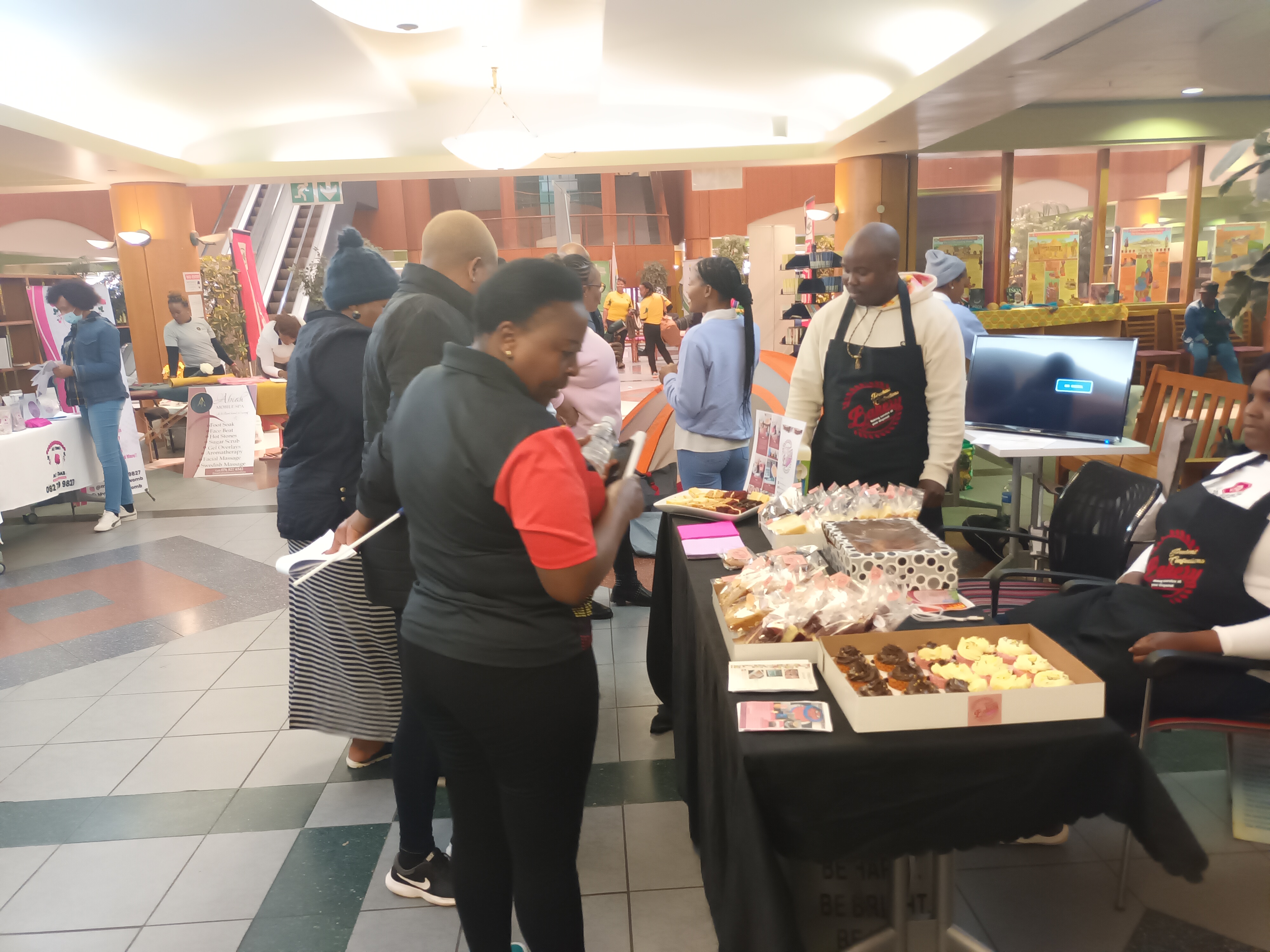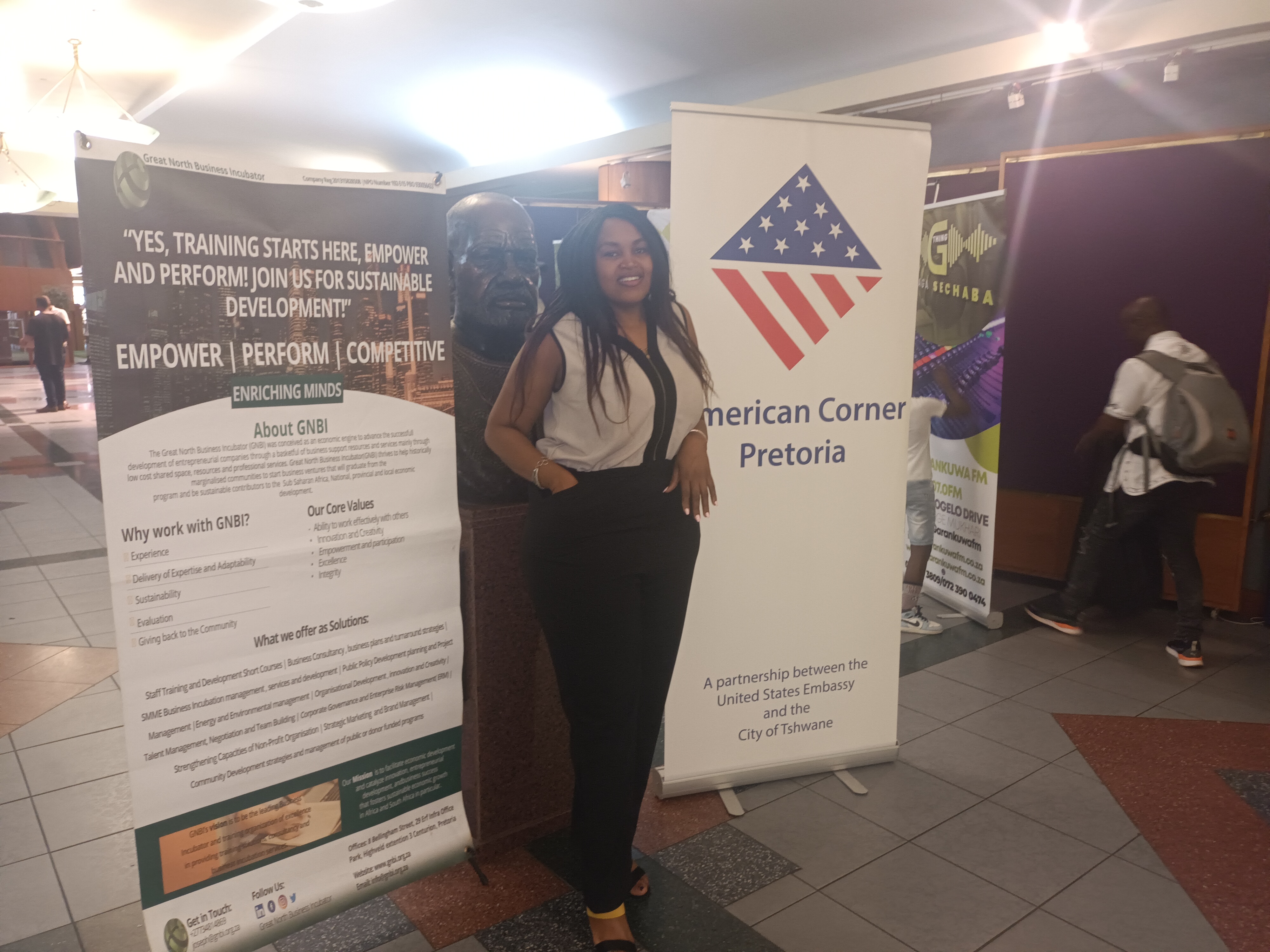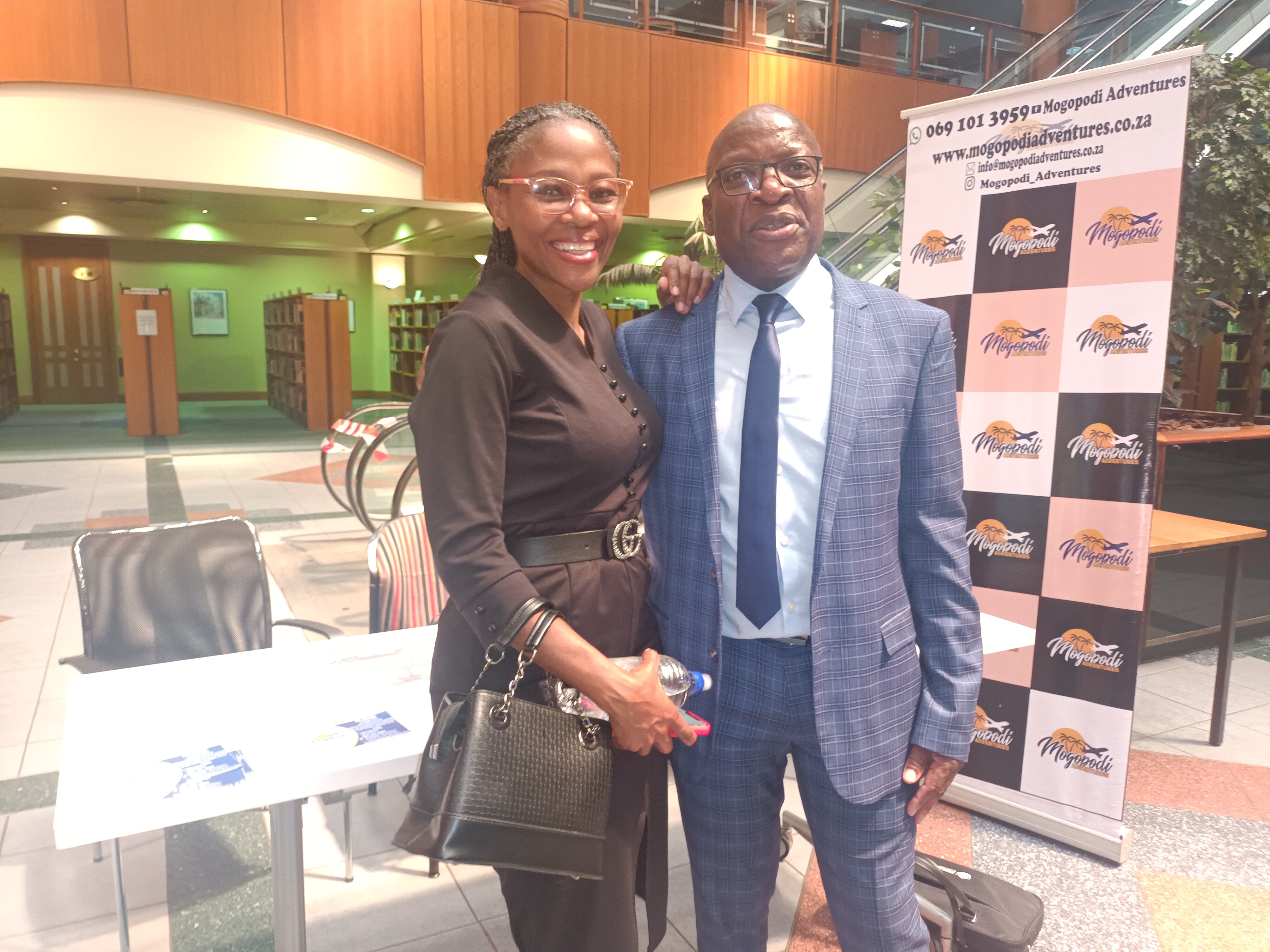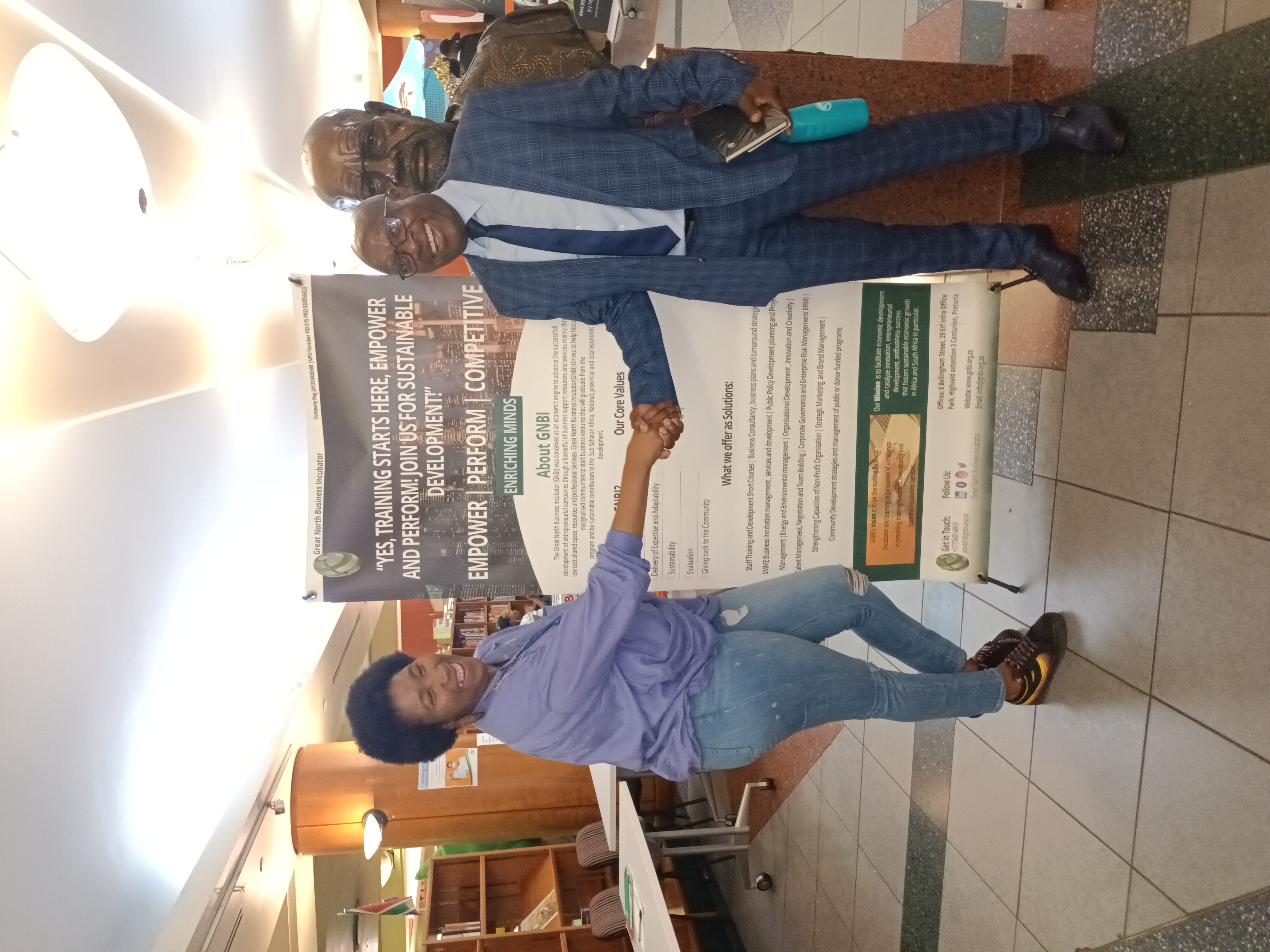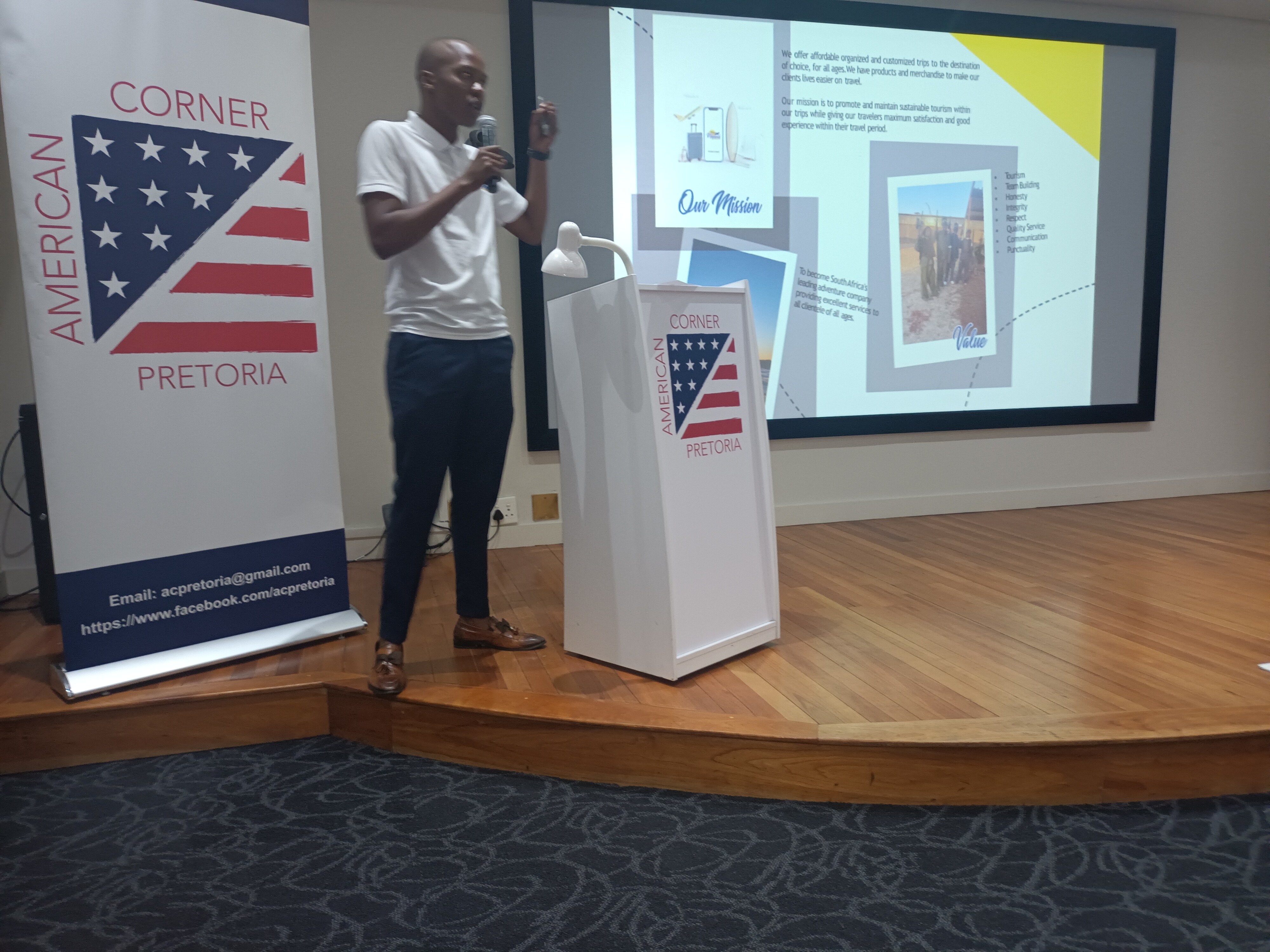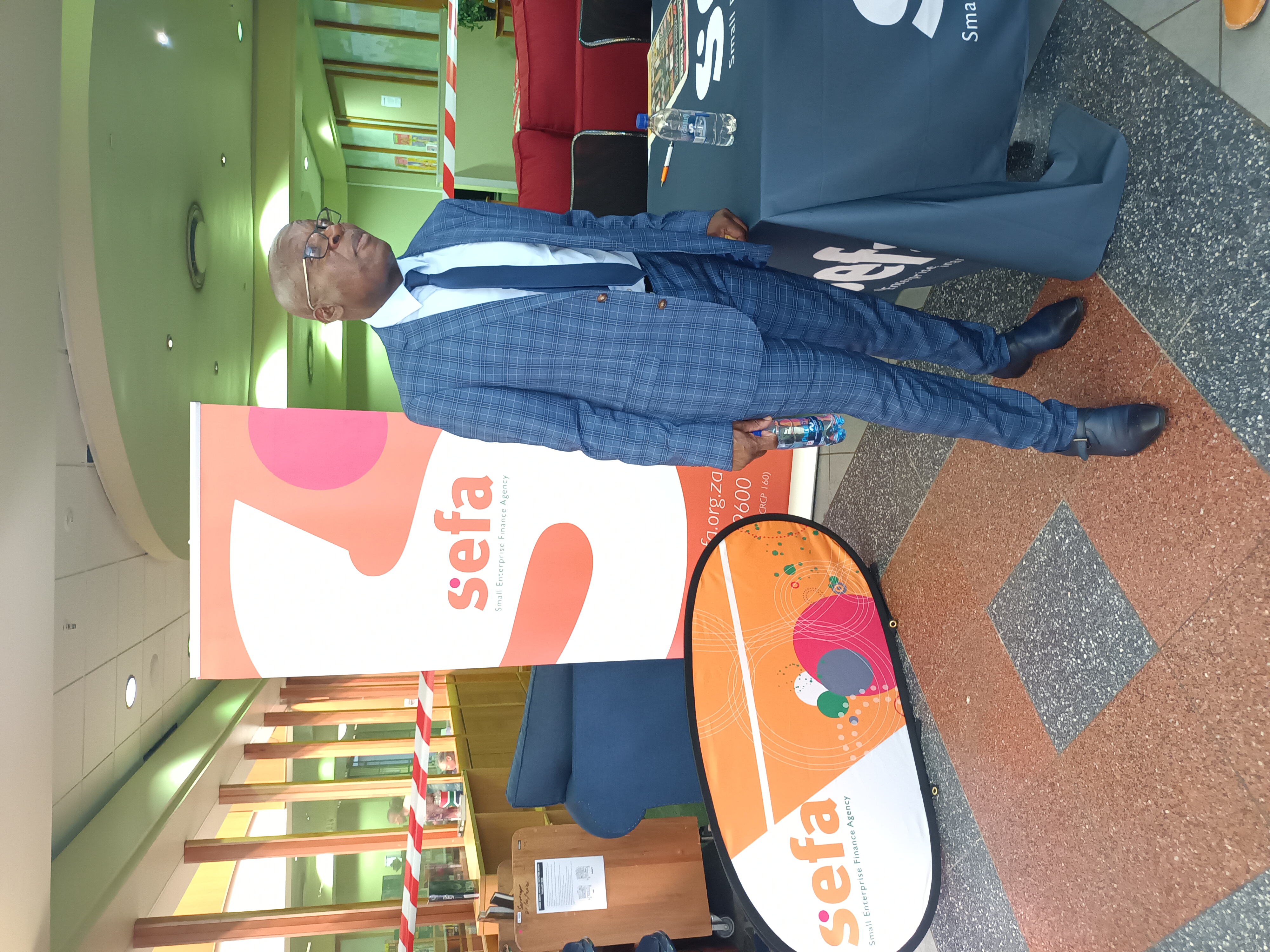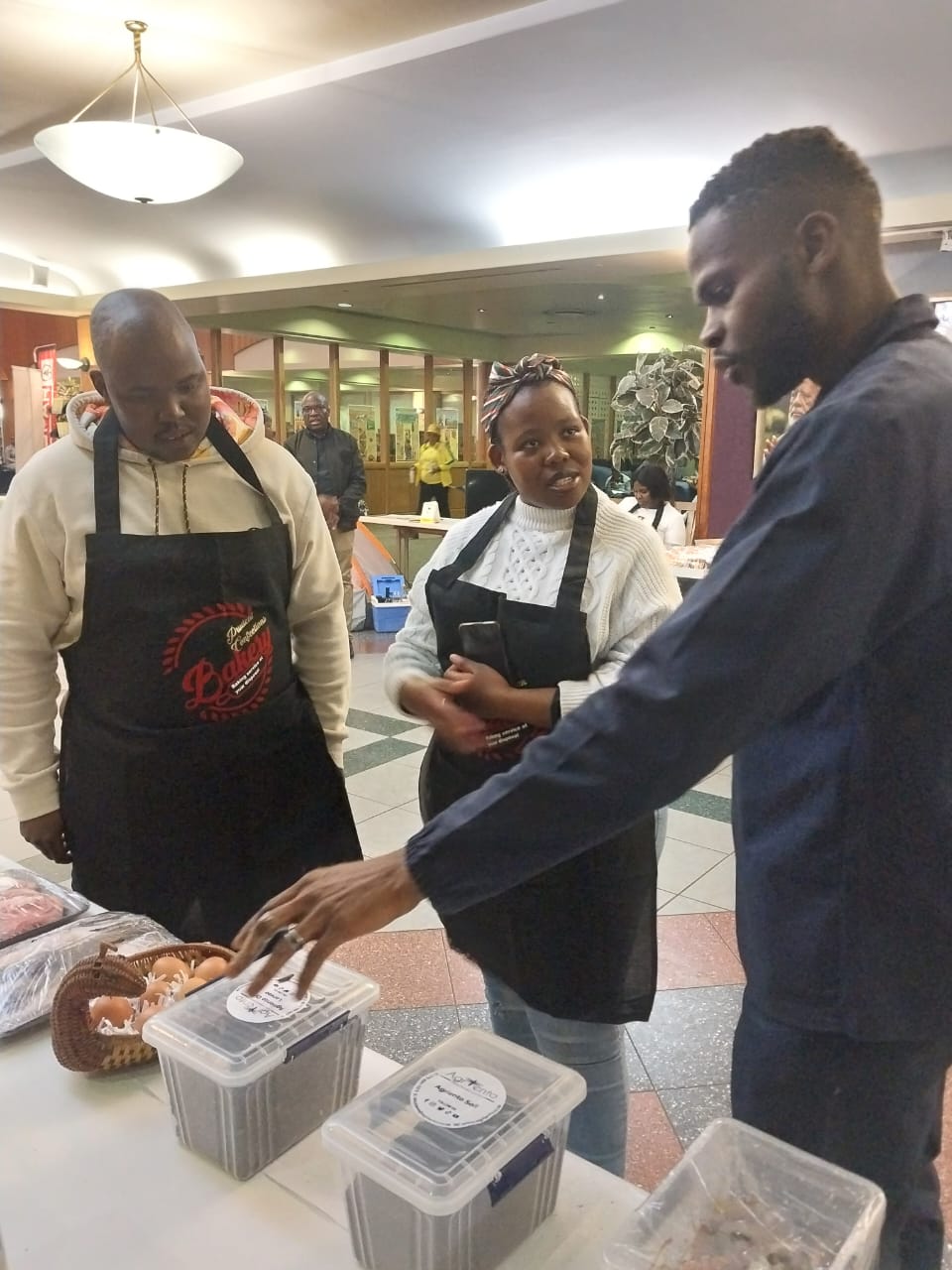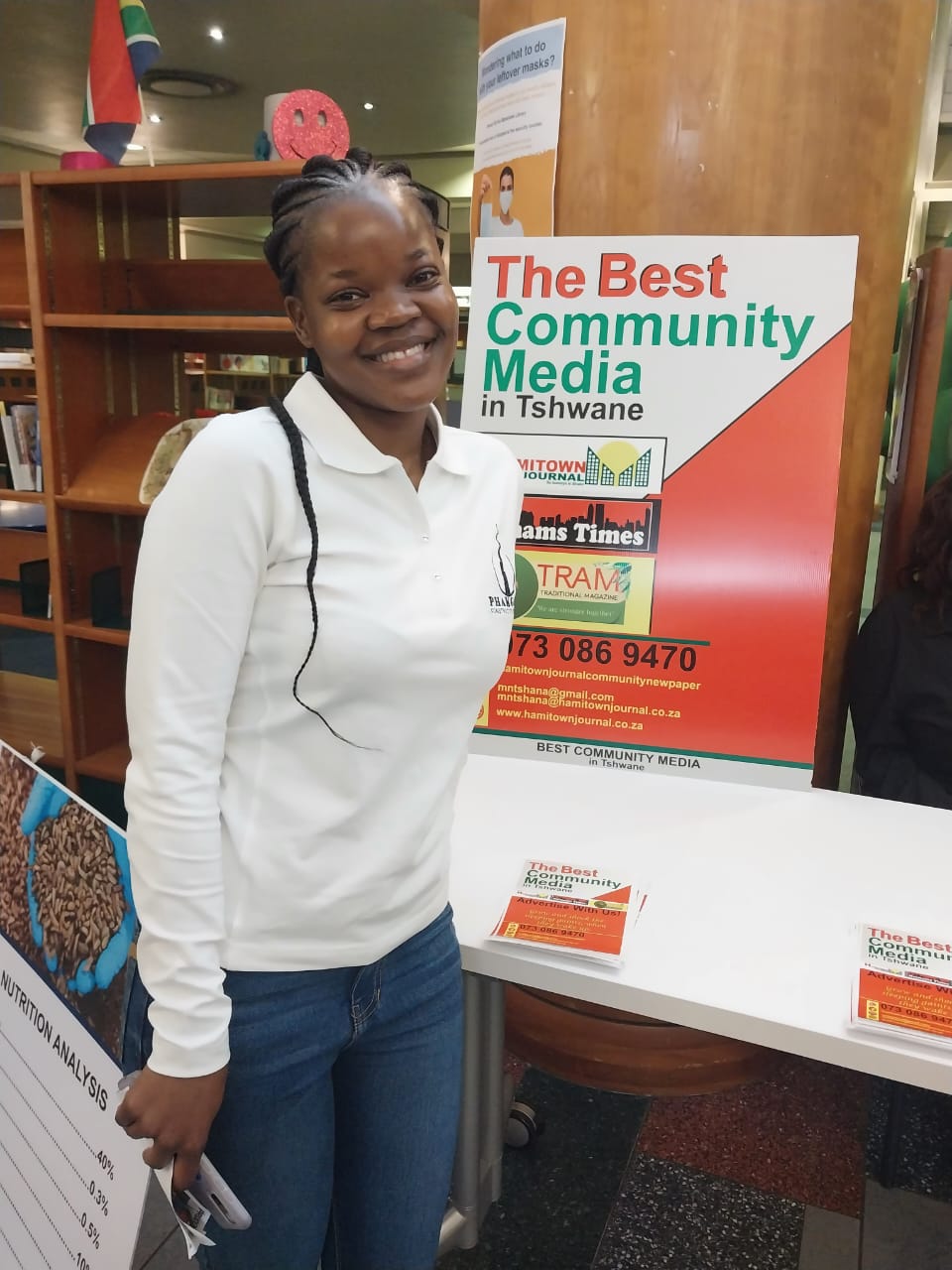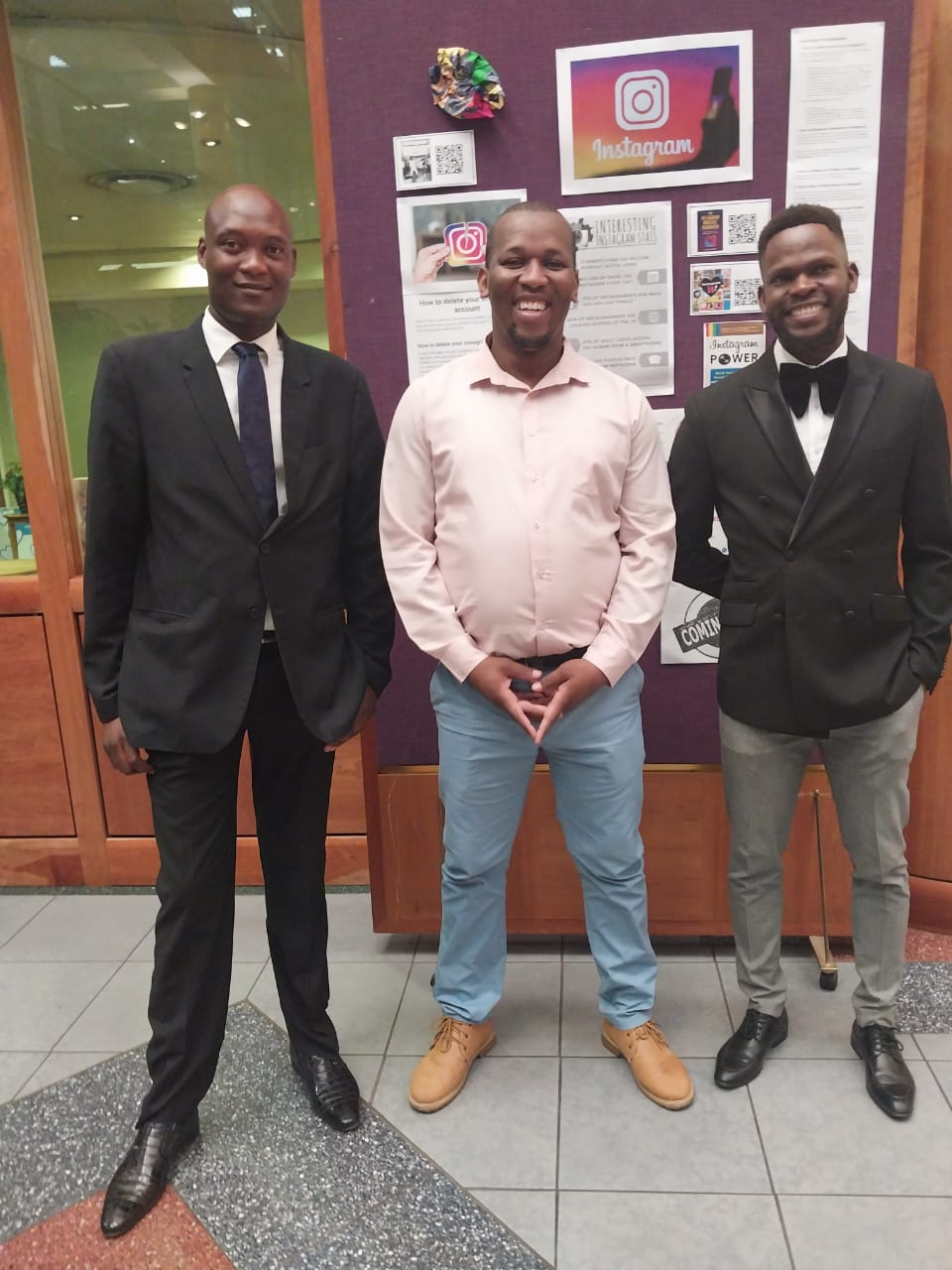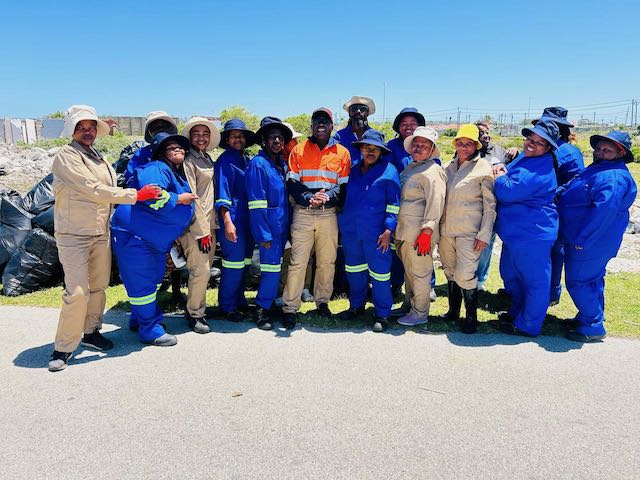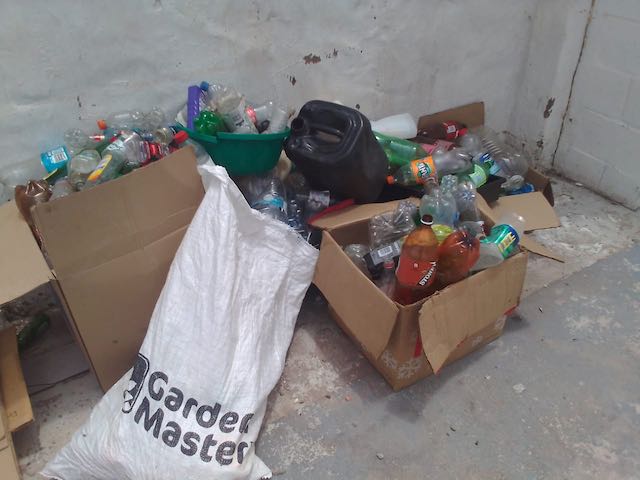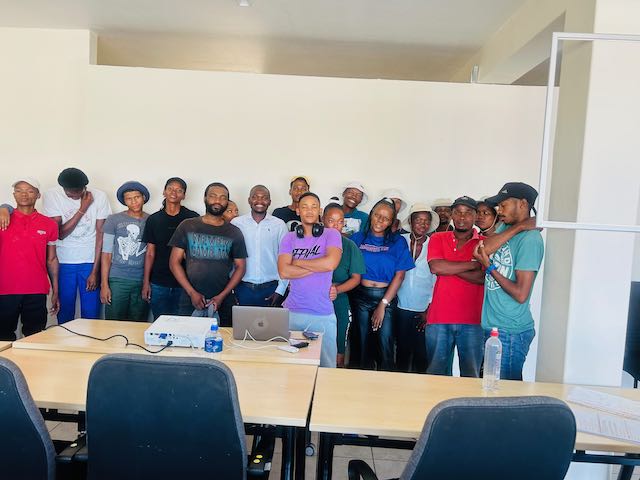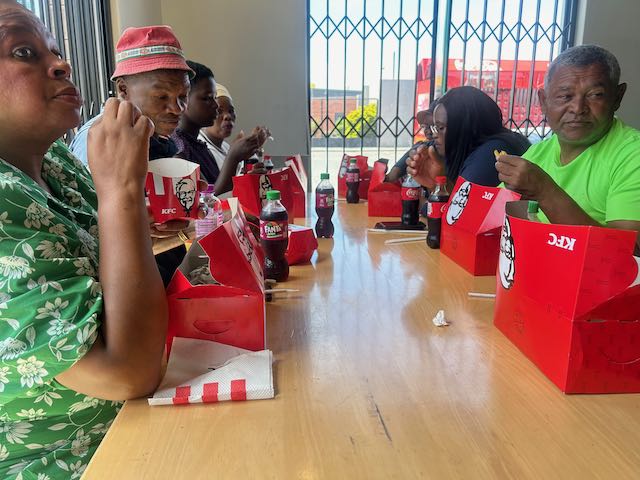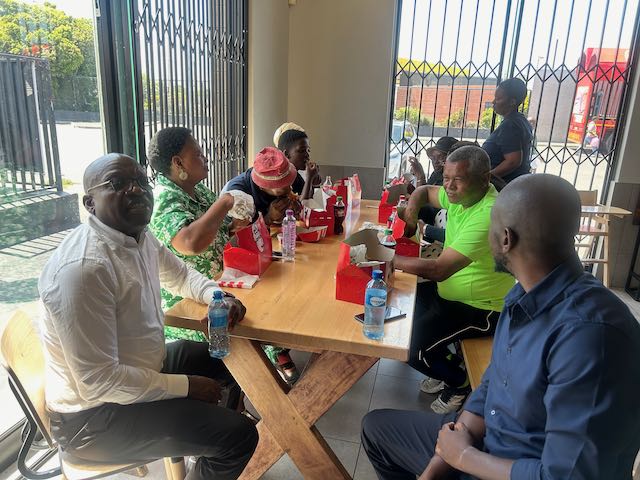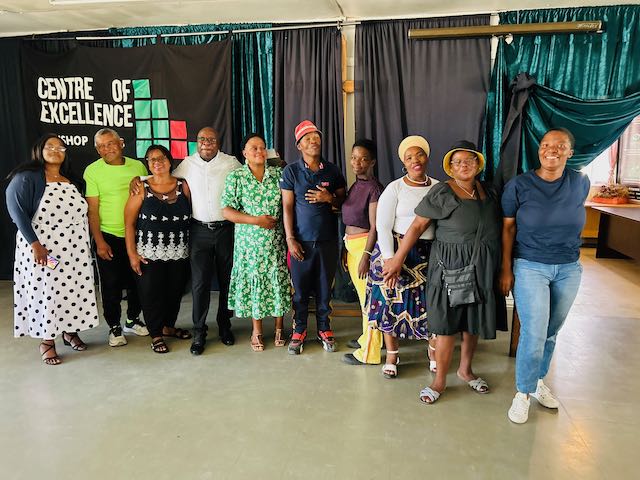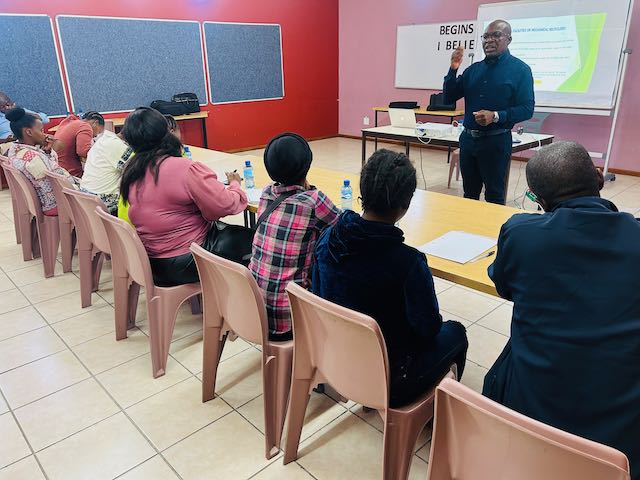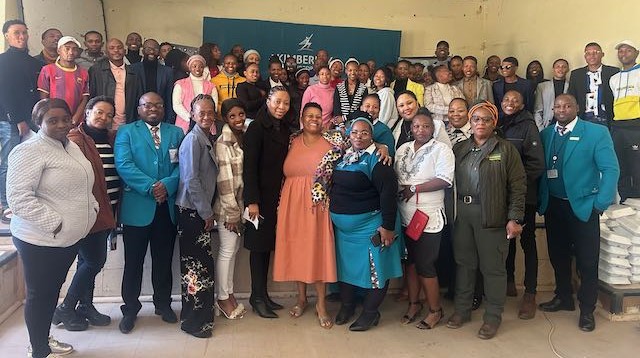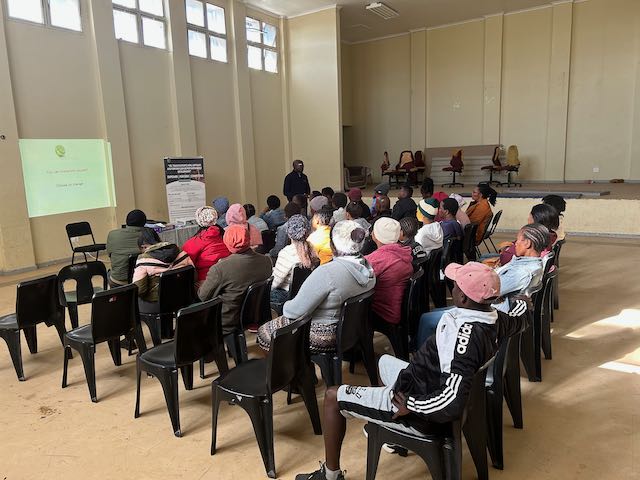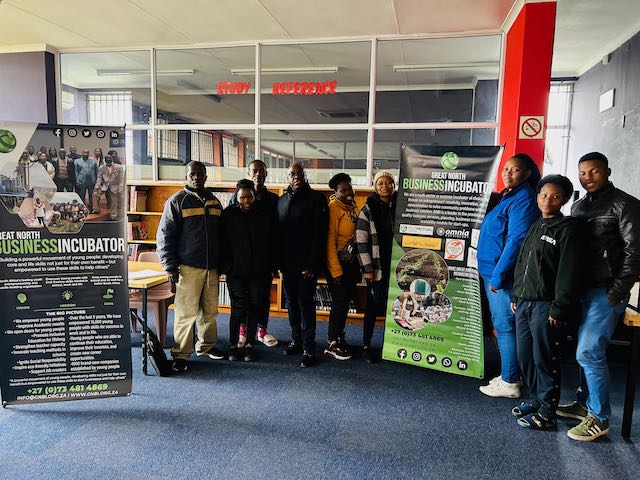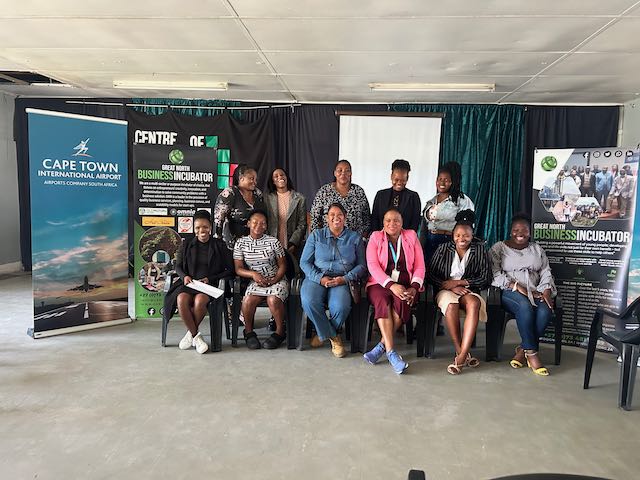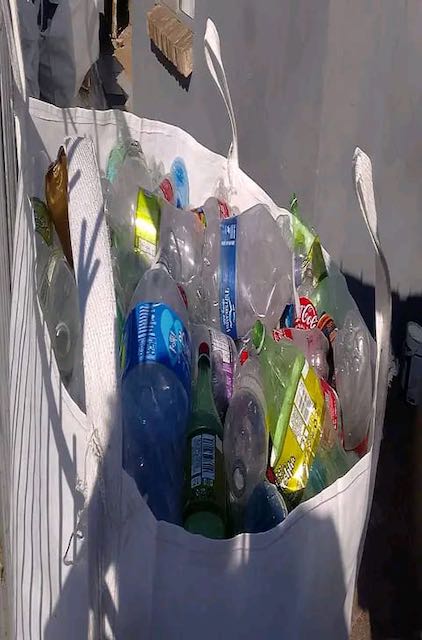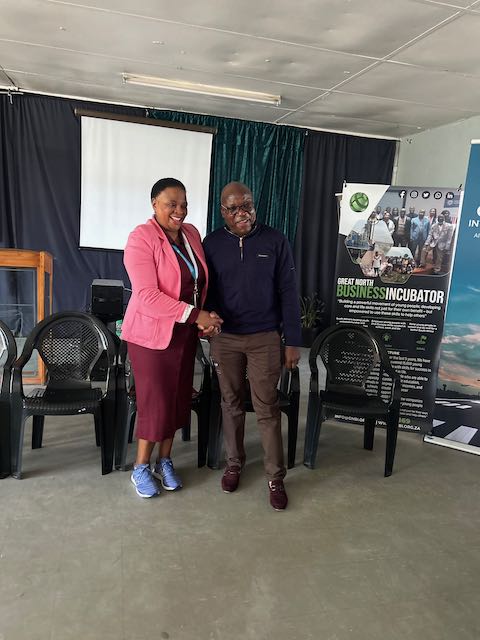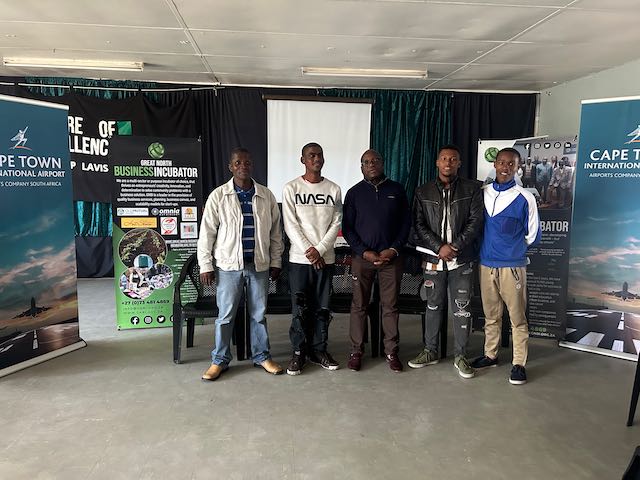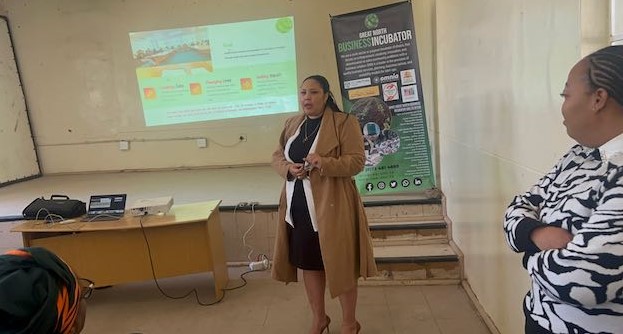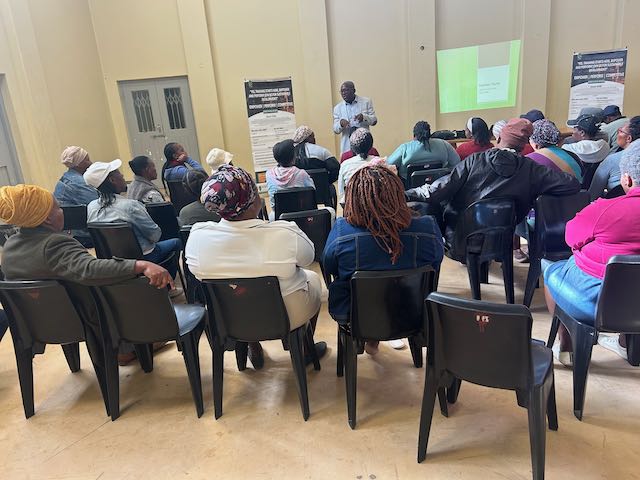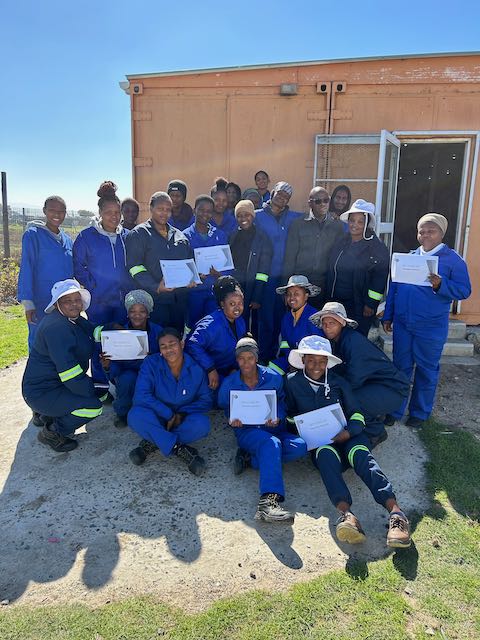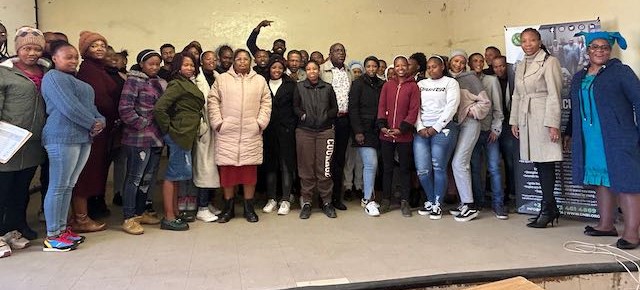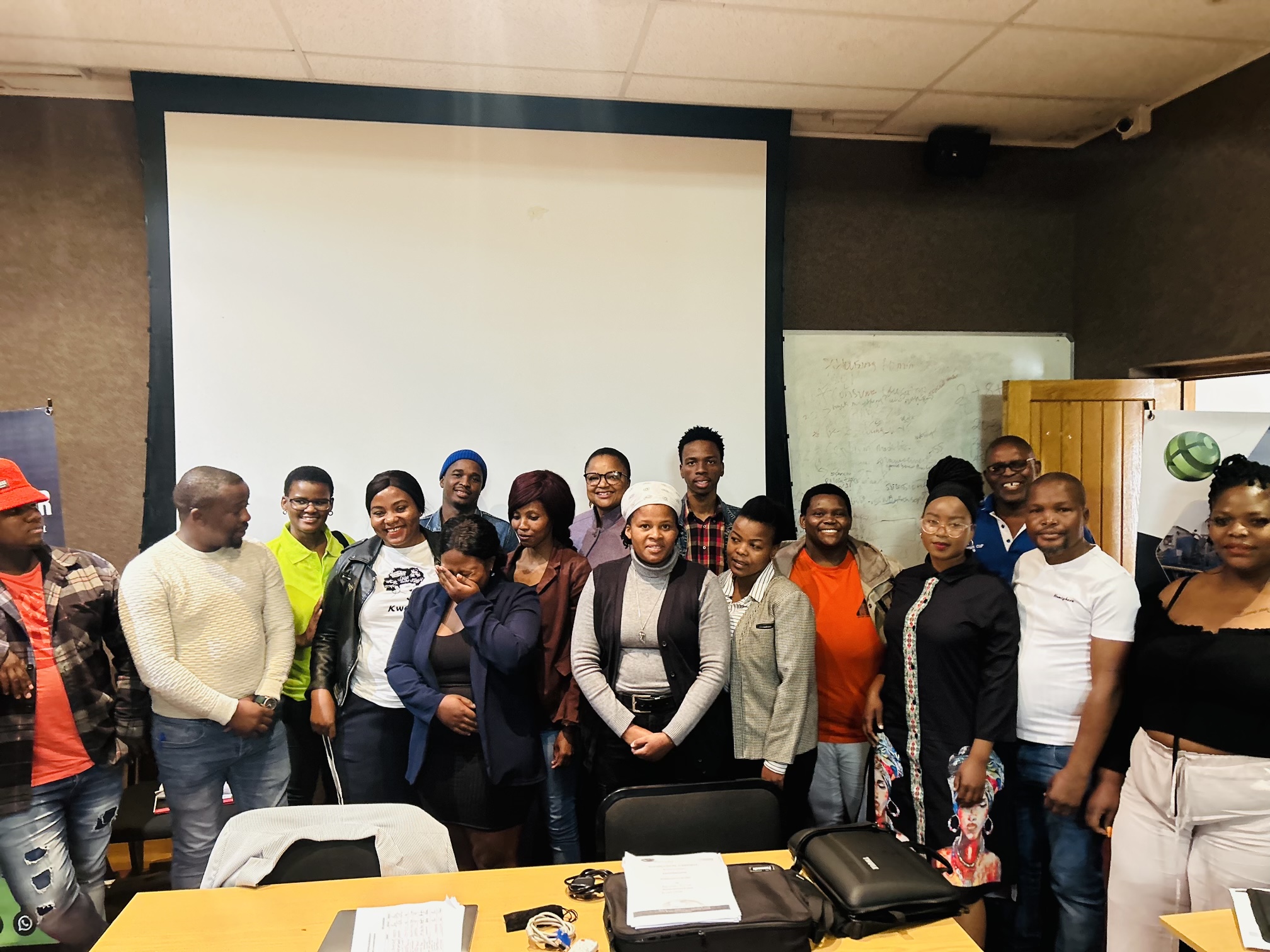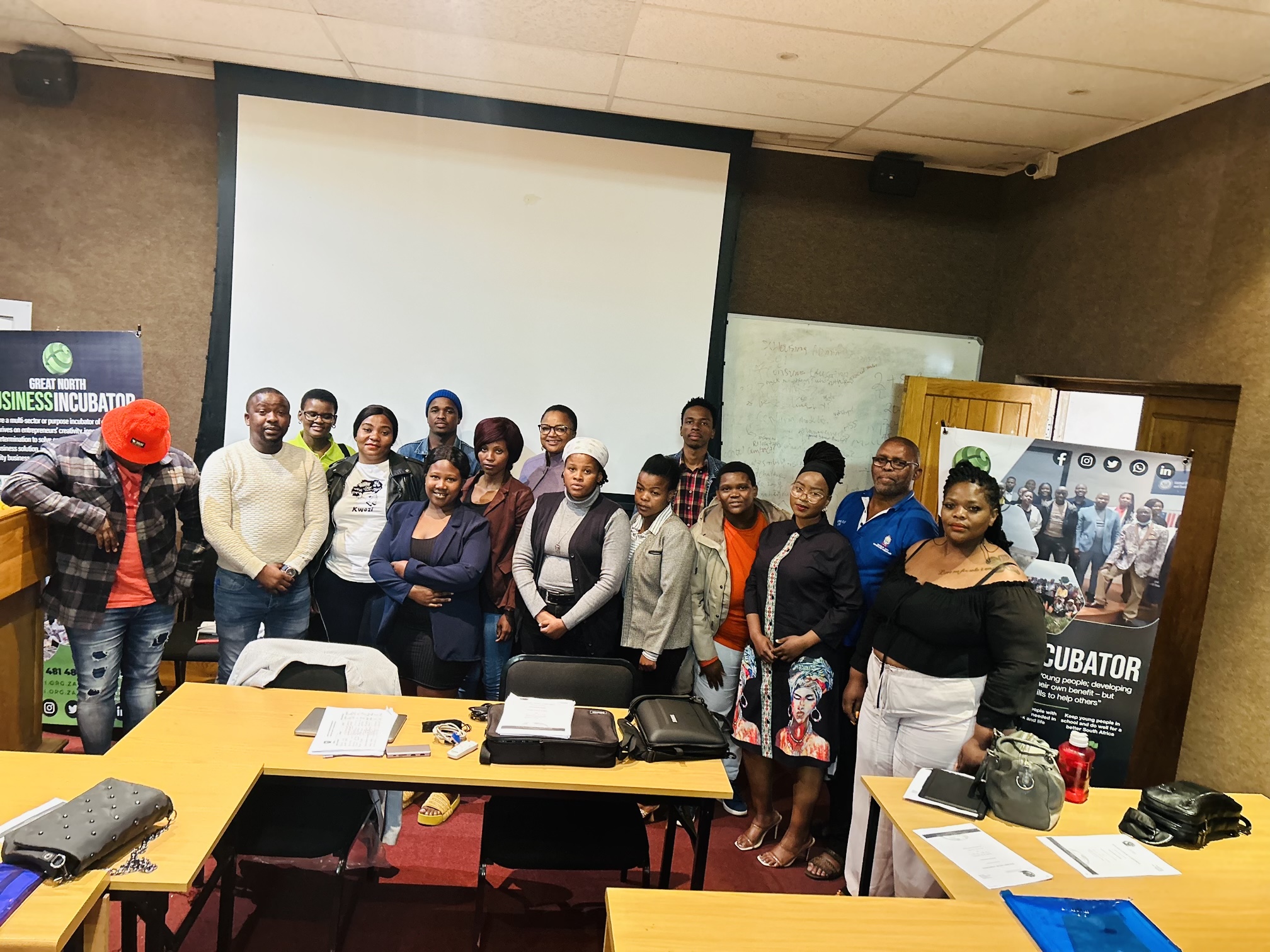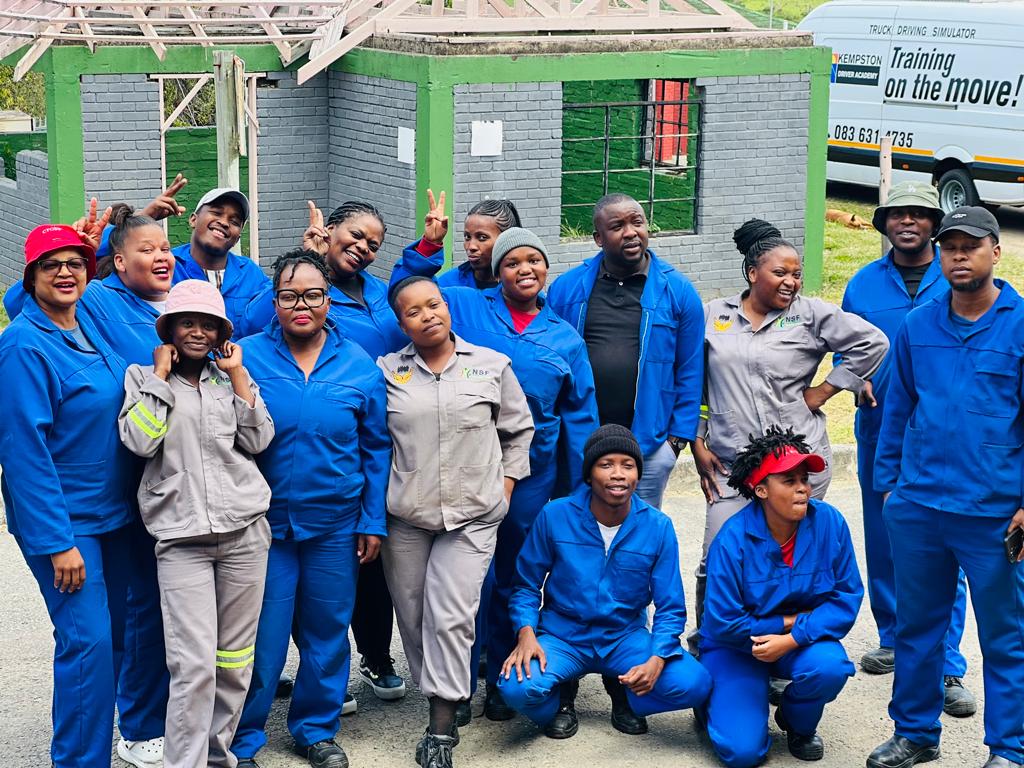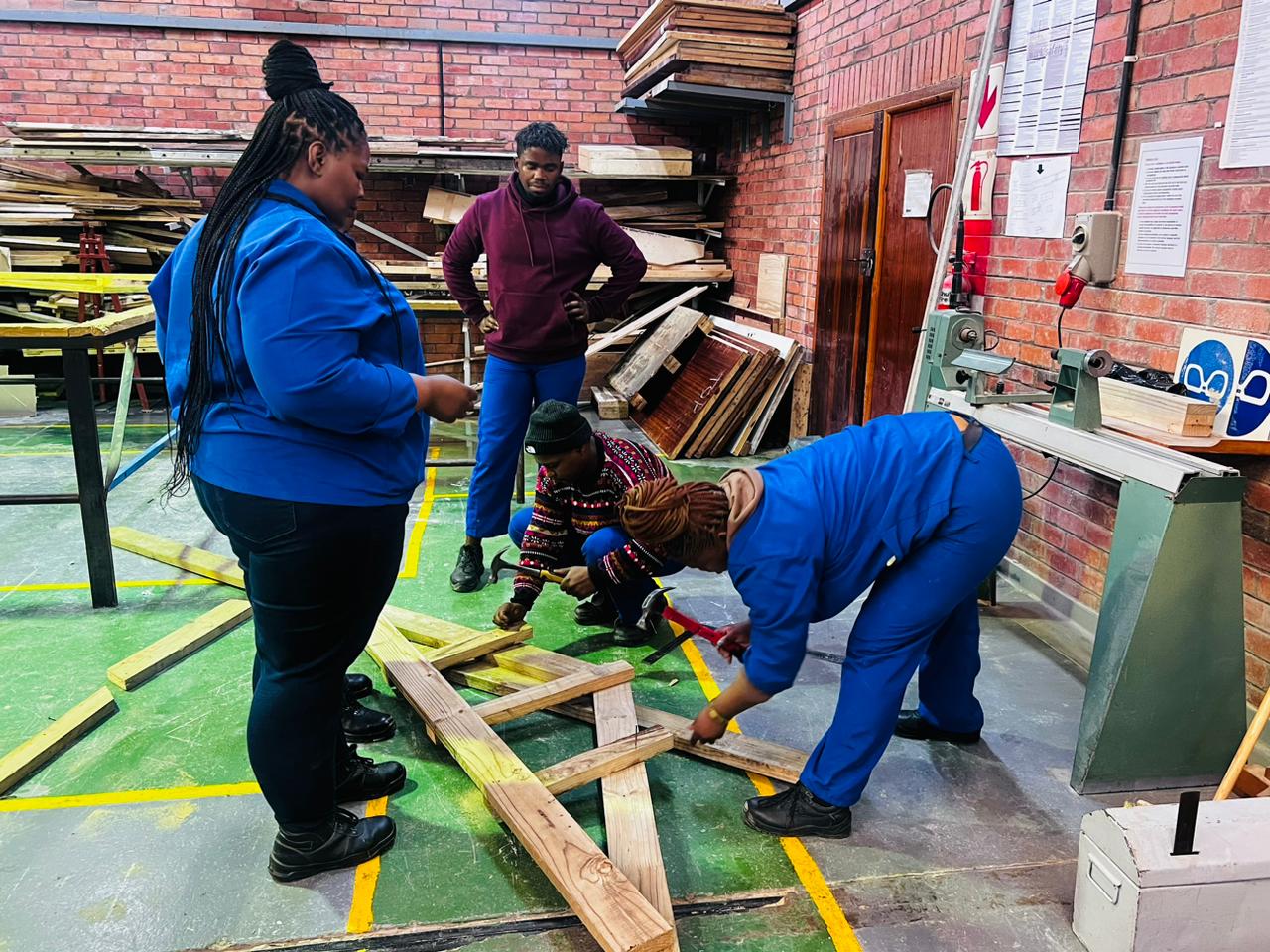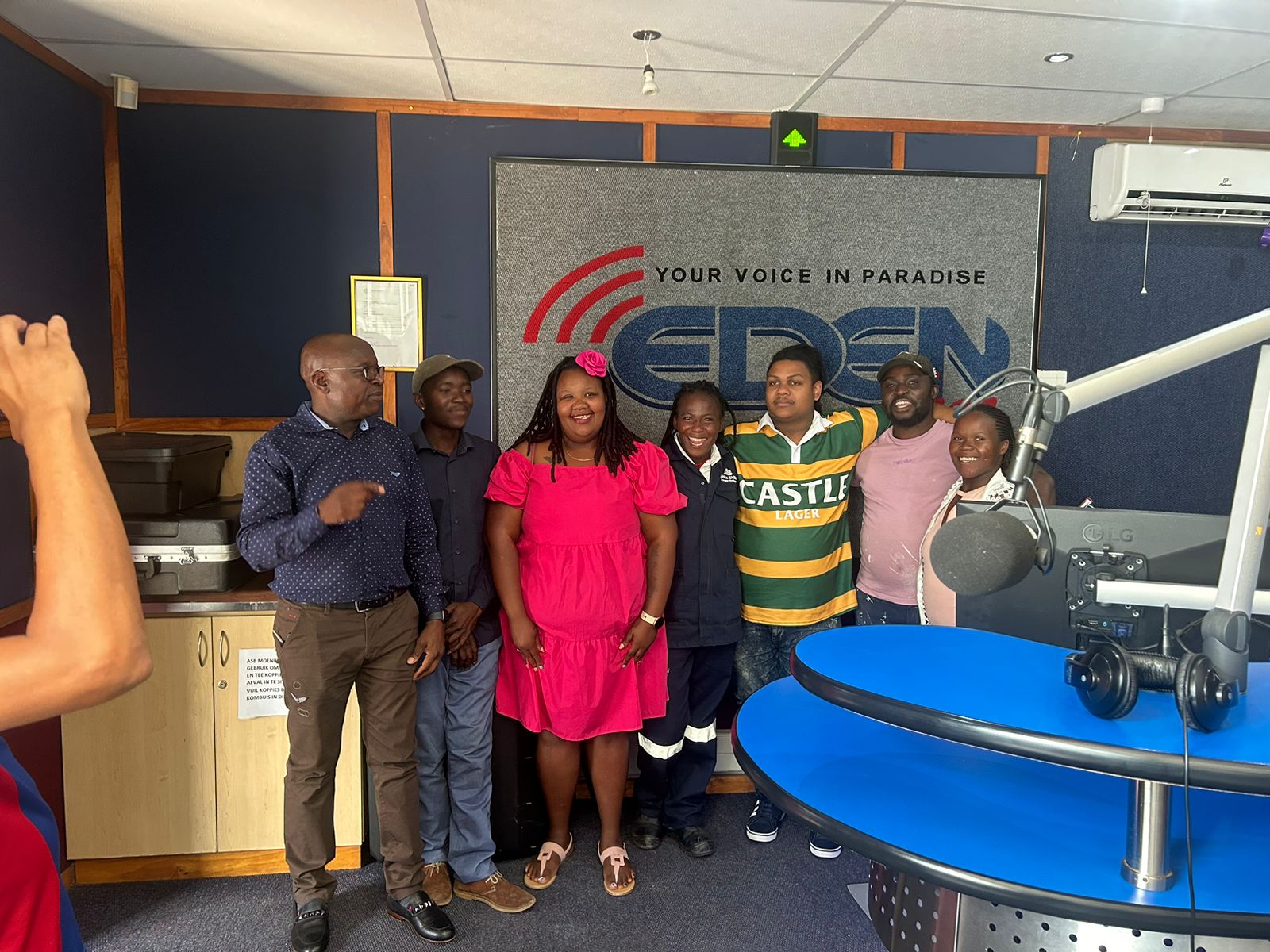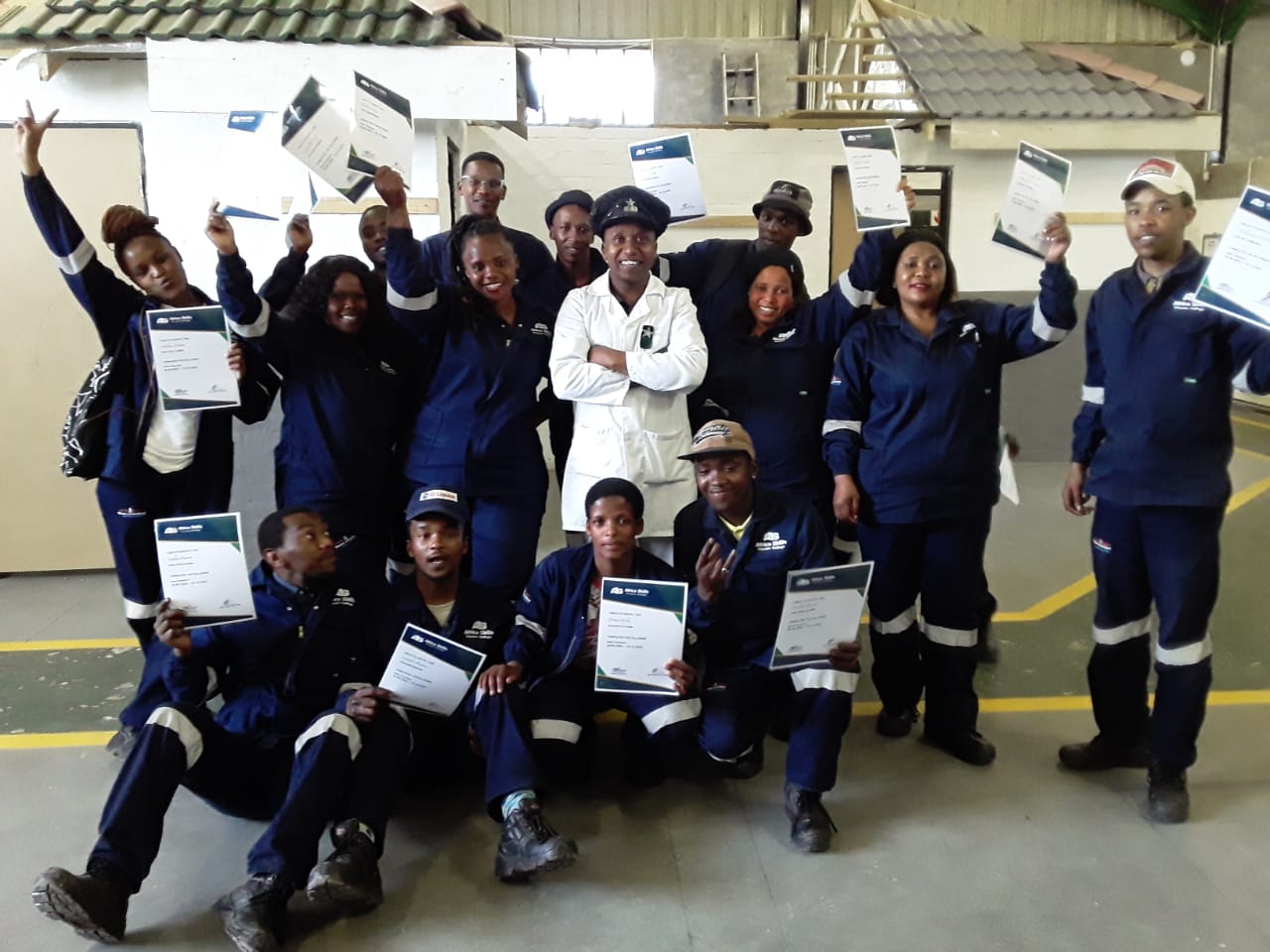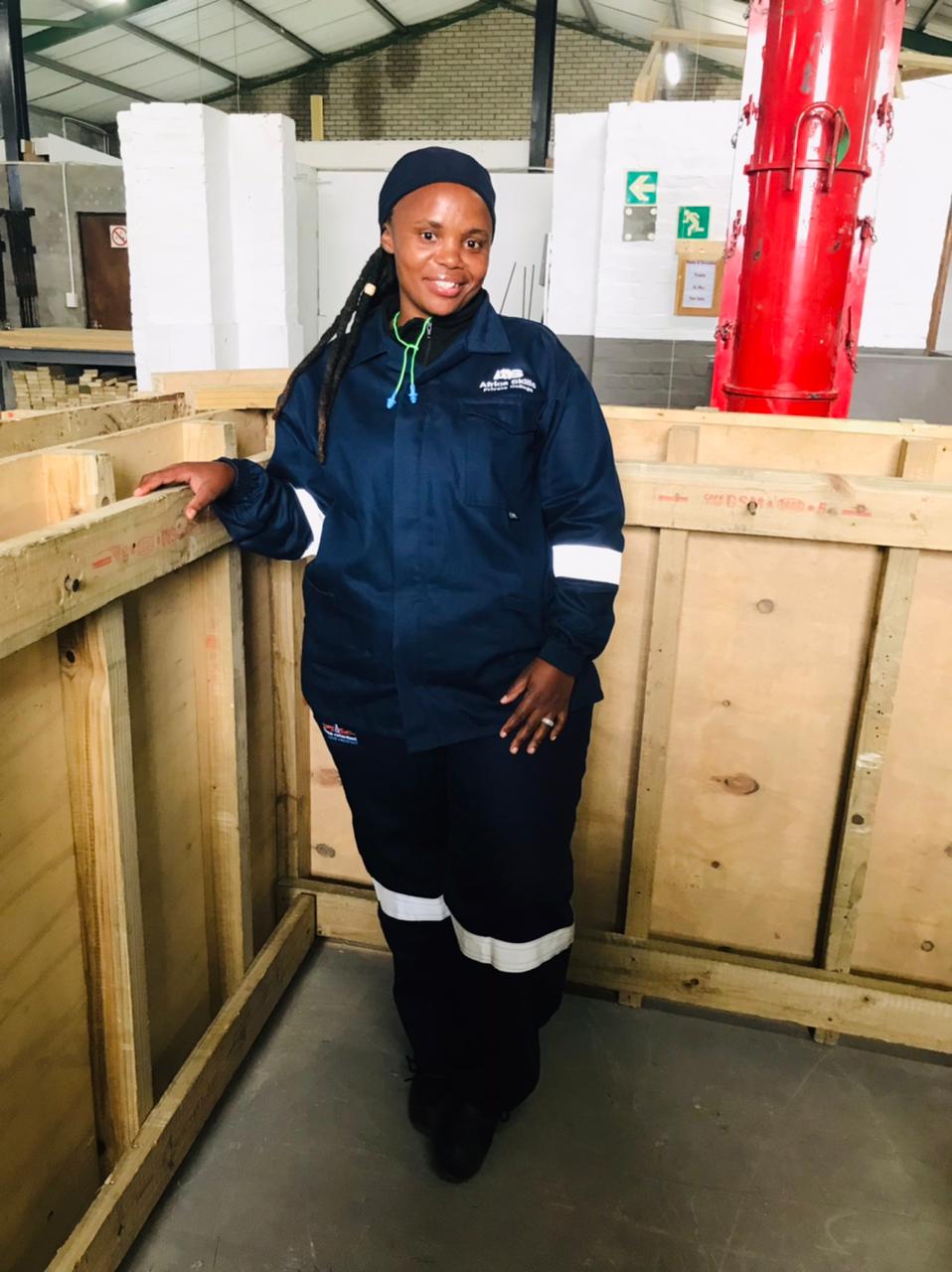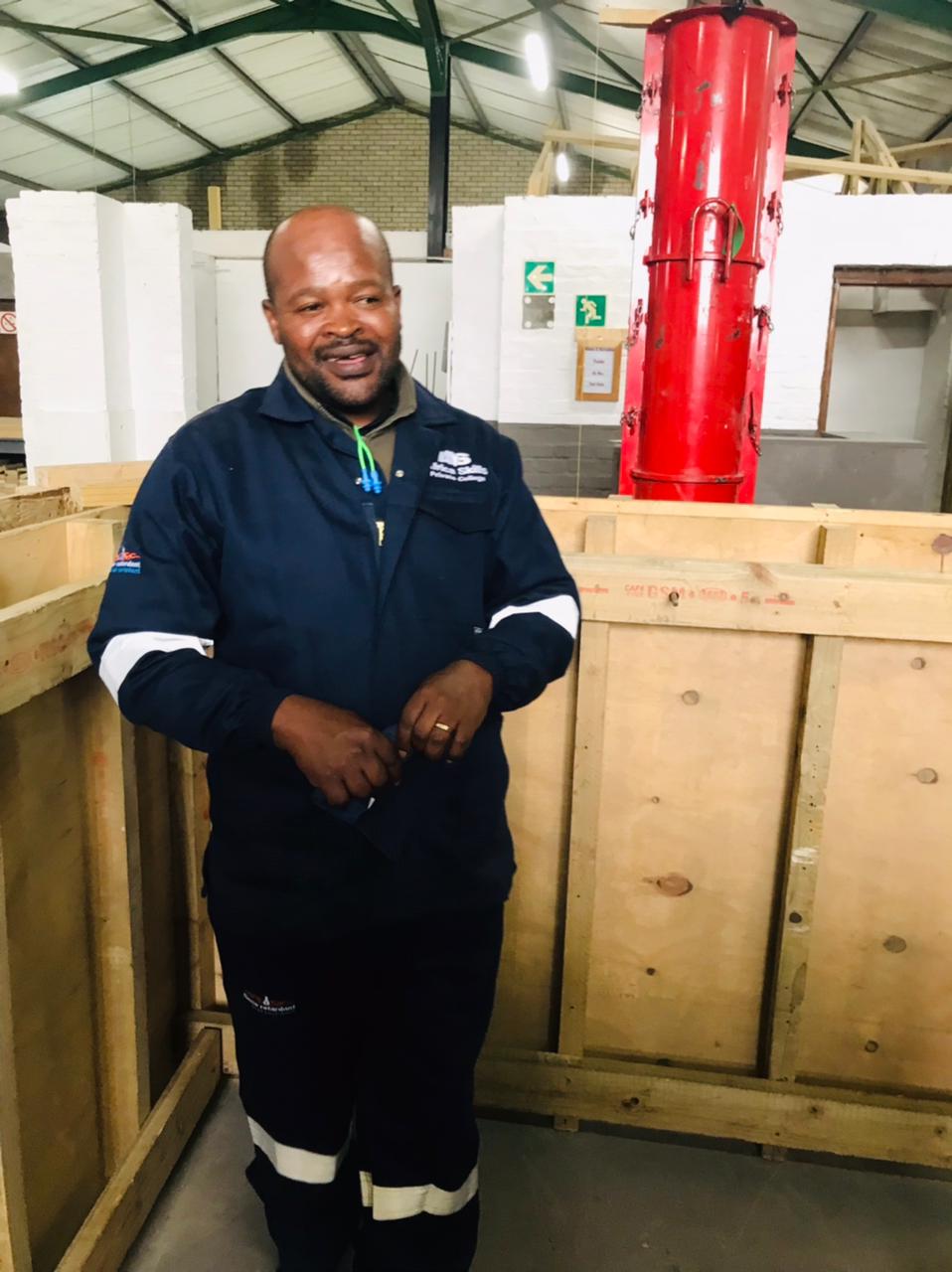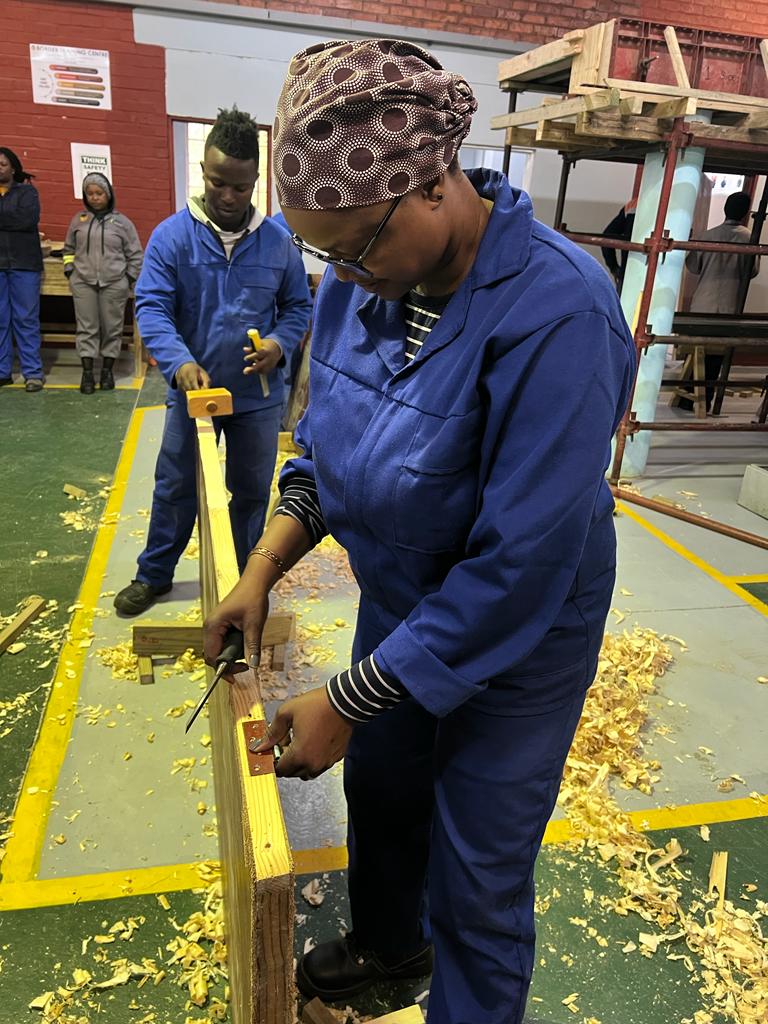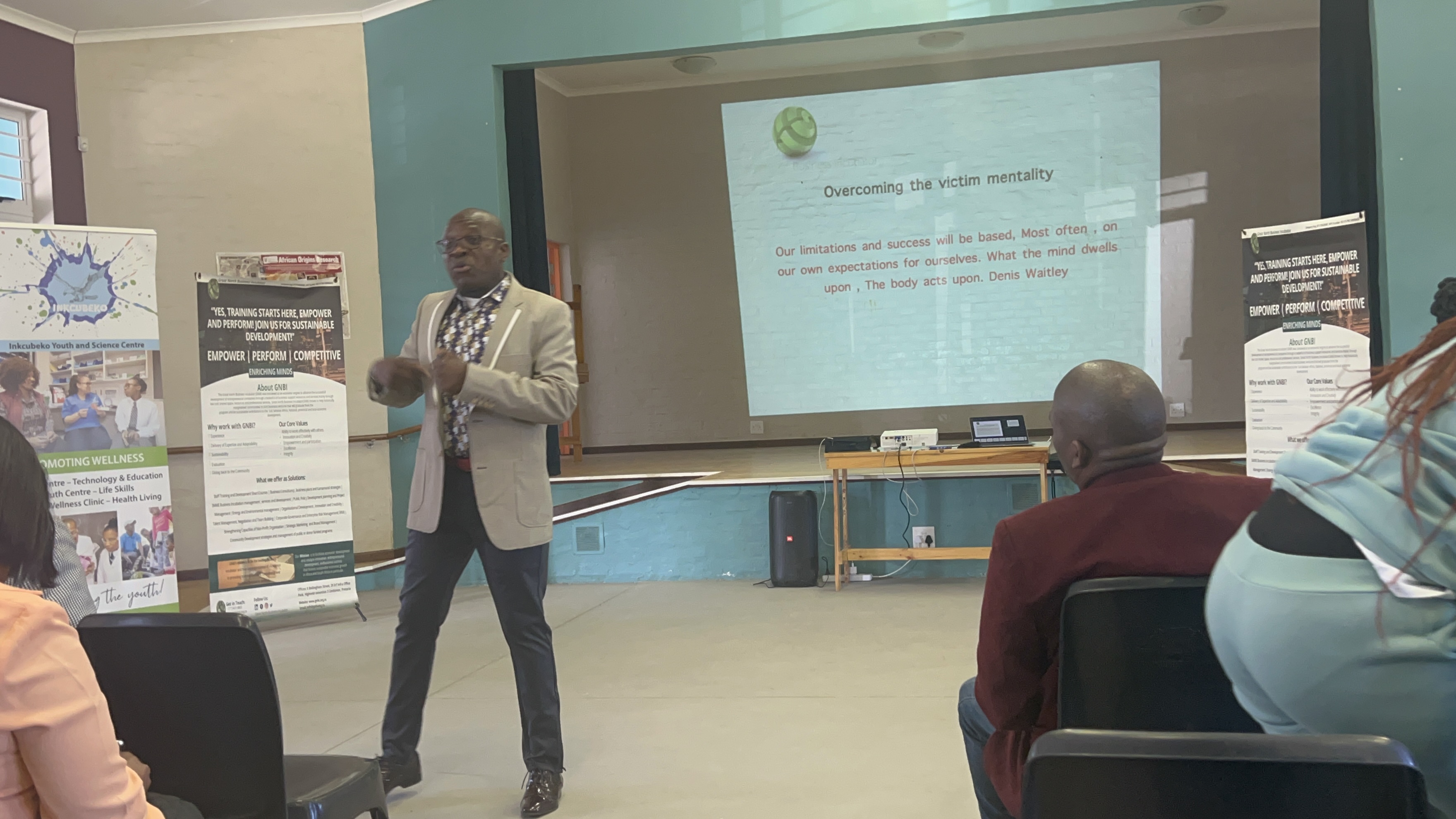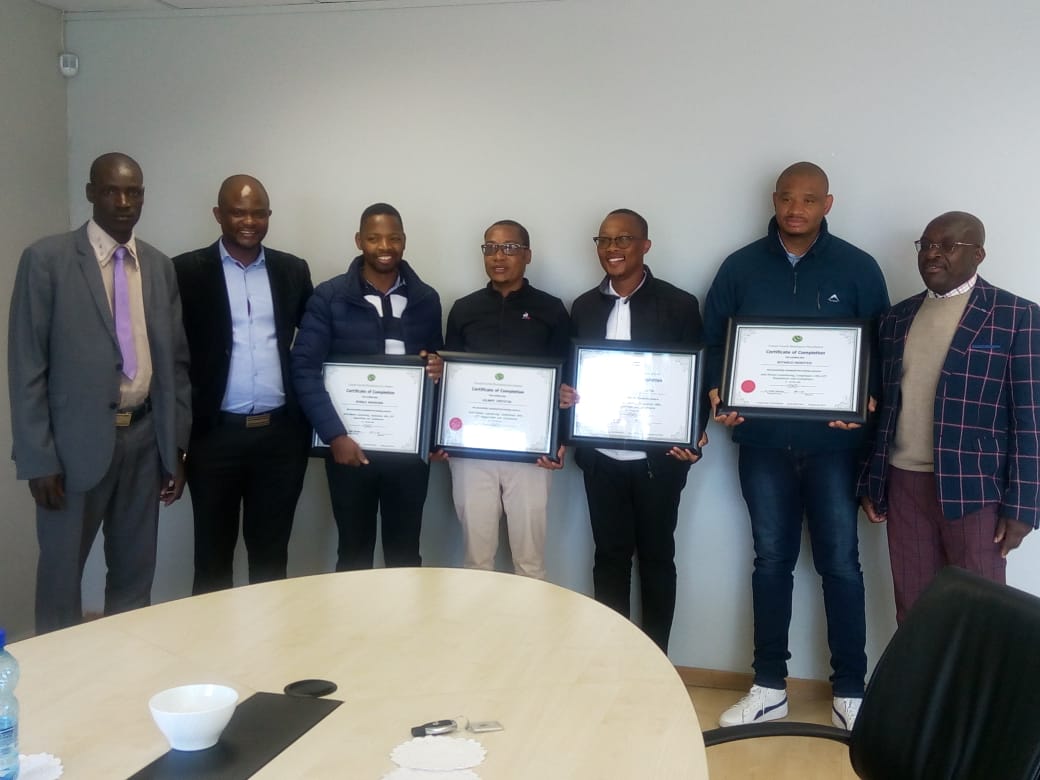
Great North Business Incubator helps all businesses and individuals not only reach, but exceed their goals. Our experience helps us lay out a strategy that perfectly fits our clients. This collaboration is essential for the successful transition from strategy, to plan, to action. Learn about some of our past projects below, and get in touch to see what we can do for you.
past projects
Great North Business Incubator is a business that helps entrepreneurs and like-minded individuals develop and launch their innovative ideas. We are proud to share our recent projects that have been successful in helping entrepreneurs realize their dreams. Come explore our projects and see how we can help you bring your idea to life!
CLOTHING, LEATHER GOODS, AND FOOTWEAR MANUFACTURING
Project 2: Clothing, Leather goods, and Footwear Manufacturing. Polokwane
AGRO PROCESSING AND FOOD TECHNOLOGY
Project 1: Agro processing and Food Technology Upington project
The project is designed to respond to the key seriocomic issues identified by the district and the SEZ plans. Fruits and vegetables are not only essential for a healthy diet but also represent a vast and lucrative market segment for food processing businesses. From dehydration and canning to innovative value-added products, the industry is ripe with opportunity for entrepreneurs and startups looking to make their mark.
The global fruit and vegetable processing market is substantial and rapidly expanding. This growth offers ample business potential for new ventures and established operations alike.
Exploring Opportunities and Business Ideas in Upington
The fruit and vegetable processing sector contains a wealth of possibilities for innovation and entrepreneurship. GNBI in partnership with the Airport Company of South Africa has established 5 cooperatives in Fruit juice manufacturing, Ice-cream making, dried fruit packaging and chicken hatching. project is a combination of Canning and Bottling: Preserve seasonal produce in various forms like jams, sauces, pickles, and juices. The main aim is to tap into global market for processed fruits and vegetables.
The Future is Bright
As health consciousness, convenience, and urbanization trends continue, the fruit and vegetable processing industry hold immense promise for growth and innovation. By embracing this dynamic sector, the entrepreneurs and startups can carve pathways to success and contribute to a better-nourished South Africa.
Beneficiation of the marginalised in Agro-processing sector
The project recruited 30 women and men from Pabelelo and Rosedale, these are historically marginalised townships in Upington.
Trained 30 women and men in Cooperative management
Inducted the start-ups in the life of an entrepreneur (a mindset training program)
Trained 30 women and men in Food Safety and Hygiene
Trained 30 women and men on Start and Grow your Business
Trained 30 Start-ups of Food processing and Packaging
Purchased three types of equipment, ice creaming making, Chicken Incubator, and Fruit Juice making machine
Formalised the cooperatives, by registering them with CIPC
Help in setting up the production factory for the cooperatives
Unleashing the Potential of Fruits and Vegetables
The fruits and vegetables processing industry holds immense potential for entrepreneurs. Not only does it address the challenge of food wastage by extending the shelf life of produce, but it also creates delicious, convenient, and nutritious food options for consumers. By venturing into this sector, you tap into a growing market driven by changing lifestyles, rising disposable incomes, and a heightened awareness of healthy eating.
Background / Overview of the Project
The Great North Business Incubator (GNBI) worked with the Emerging Technology Consortium (ETC) to explore the possibilities of developing a Multi sector technology incubator program or similar research and commercialization space in Polokwane, which could become catalyst for the Polokwane’s overall technology-based economic development strategy. GNBI promotes business opportunities throughout Limpopo province and contributes to business retention and attraction activities. The ETC promotes multi -sector technology-based economic development activity in Townships and urban environments. The Polokwane city’s Technology team was selected to conduct the Feasibility Study for Technology Incubator in Limpopo. This study has been funded by the Industrial Development Corporation (IDC) in the Capricorn District.
Phase I of the Feasibility Study analysed the market demand for an incubator and the potential economic impact it might produce. Phase II of the Feasibility Study developed a Business Plan for implementing the incubator initiative.
Phase I: Market Analysis is comprised of four elements:
Estimated Market Demand
Determination of the Incubator’s Economic Development Purpose
Determination of Community and Stakeholder Support
Assessment of Market Feasibility
The existing business incubation programs in the Limpopo area focus on several key business sectors/communities important to continued economic growth of the city, such as communications and social media, arts, non-profits, and all small minority business. The GNBI Project Team has analysed the critical mass of business and technology resources, as well as the competitive market demand for leather technology business incubation and new entrepreneurial initiatives in the Capricorn District. We find there is strong demand for the establishment of a business incubation program in Limpopo with public and private sector support, which focuses on innovative, growth-oriented, early-stage technology businesses in the Leather goods, clothing and Footwear manufacturing. Thus, creating jobs for the youth, women and men in this high job creation sector in South Africa.
Project Rationale
The establishment of a leather technology business incubator met the specific needs of one of the fastest growing sectors of the Limpopo province to help attract new residents to the city. The establishment of a leather technology business incubation program also filled a gap in the spectrum of business support offerings in Polokwane and complement the existing business development programs. Longer term, a technology incubation program could assist early-stage companies based on increasing levels of intellectual property. Moreover, a technology business incubation program would be a value addition in the Greater Limpopo Market and offered programmatic and infrastructure resources to help drive provincial innovation initiatives.
In addition, there is an opportunity for the Capricorn District to become “the heart” of technology business activity in Limpopo by creating an environment for the development of innovative, growth-oriented companies. In a practical sense, the primary industry sector which benefited from a business incubation program is one of the Limpopo Province’s most dynamic, growth-oriented sectors: Leather and Clothing technology. The leather technology sector broadly includes computer design and research, and leather services. A secondary industry focus could be the professional and creative services sector, which includes advertising and marketing, environmental sciences, engineering.
From its establishment Great North Business Incubator (GNBI) has grown into a world class and internationally recognised business incubator of excellence, that specialises in helping start-up companies in clothing, footwear and leather goods manufacturing from historically marginalised background in Limpopo, Gauteng and Northwest.
Strategic Goal:
Business Incubation programs are aimed at promoting economic development, skills development and creation of sustainable jobs for the historically marginalized youth. Business incubators are designed to support the start-up companies to grow and survive at their most vulnerable stages of inception. It is a process that equips young entrepreneurs with entrepreneurial, technical and marketing skills to manage their businesses.
Long term Goal
Our immediate long-term goal as a manufacturing Incubator is to maintain a business-to-business consumer driven model and grow into an incubator that offers hundreds of different products for purchase. We recognise that our core strength is the ability to inspire creativity and innovation in our upcoming designers and build strong brand loyalty and create sustainable jobs through new factories establishment. This will effectively create our own tribe of brand loyal start-ups and product customers. We intend to achieve this goal by using several unique incubator marketing strategies.
Objectives:
30 historically disadvantaged and unemployed youth will get leather designing and training
30 youth will be skilled and starting their own leather business in Limpopo
Establish the only clothing, footwear and leather product manufacturing training institute in the province of Limpopo
Create jobs for the 30 skilled SMMEs
Alleviate poverty among the marginalized youth in Burgersfort Limpopo
Economically empower the 30 trained youth
Solve the critical and scarce skills shortage in the industry
Provide life skills to the disadvantaged youth in the mining community
What services were offered to the start-up business in this sector
The incubator offered the following services to the start-ups:
Office space and Facilities
During the incubation period, Incubatees were able to enjoy subsidised ready-to-use workshop space and shared facilities to reduce their cost of business so that they directed their resources towards the growth of their businesses.
Equipment usage
Incubates used the incubator equipment for production of their unique products at a nominal fee. Equipment purchase by start-up incubate has proved very expensive. The use of the incubator equipment helped new SMMEs to grow their businesses under incubation
Technical and Management Assistance
GNBI explores and bridges Incubatees to technical colleges, Further Education Training colleges and universities expertise and collaboration opportunities through consultancy, project placements, as well as joint research and development projects.
Business Plan Consultancy Services
Technical and management training
Technical support services- production planning and management
Product design, branding and marketing
Promotion and Development Assistance
To assist business development of partner companies and Incubatees. GNBI provides different kinds of publicity support services; covering arrangement of pavilions and showcases at major trade fairs and exhibitions, as well as product launch and media liaison for incubates.
Business Support
GNBI assisted incubates to source funding and built-up strategic partnerships by organising matching events and other support. As part of fostering sustainable development, GNBI is keen to promote talent development as people are the most valuable assets. GNBI provided technology and management training as well as seminars, and training workshops in different technology clusters.
Legal and Accounting Panels
GNBI has set up panels of Legal and Accounting firms to facilitate partner companies and incubates to gain access to these professional services. Our panel members, including local and international firms, offer competitive rates to the Incubator community.
Angel /VC Financing
GNBI understands that capital raising may be difficult for start-ups during their vulnerable inception and early growth stages. Consequently, to help the entrepreneurs secure funding from the angel investors or venture capitalists, GNBI offers free investment support service to all start-up companies stationed at our facilities, connecting them to angel investors, venture capitalists and corporate ventures.
Project alignment with the Employment Equity:
The organisation’s primary aim is to contribute to the production and utilization of knowledge and evidence, which supports the integration of Clothing and Textile, Footwear and leather goods manufacturing by SMMEs into sustainable business ventures. Our business model is incubating entrepreneurs for a period of 36 months providing them with technical design and manufacturing skills, business development, access to market, mentoring and coaching as well as Learnership opportunities. The initiative challenges the historical imbalances through beneficiation and production of valued added products by the youth. The business model emphasizes innovation and utilization of high technology in Leather and clothing technology, Footwear design and manufacturing that improves the quality of products in Limpopo. The incubation program promotes the concept of village enterprises and job creation.
GNBI Inspires
Establishing a culture of entrepreneurship at national level.
Evangelizing entrepreneurship
Inspiring the best innovations and entrepreneurship as first career choice
Startup Promotion and development assistance
FOOD SECURITY AND POVERTY ALLEVIATION
Project 3: Community Food Security and Nutrition -Small scale farmers (Economic Empowerment of rural communities through Equitable Participation in Agricultural Value Chains).
The essence of Great North Business Incubator (GNBI)’s work is captured in its simple motto: growing food, growing community. Rural agricultural development is GNBI’s one of the programs and small holder farmers development (community gardens) are the roots of GNBI. GNBI empowers people to improve their lives and communities through rural community gardening and connecting urban consumers to rural farmers. To this date GNBI has assisted with the establishment of 30 community gardens in Limpopo, Northwest, Mpumalanga and Free state. These gardens provide raised beds that community members can grow food for themselves and their families.
Great North Business Incubator (GNBI) is an organization committed to developing a sustainable and just community food system. We do this by bringing together diverse groups of people, with a focus on community development, to establish community gardens, and community green spaces. We strive to develop and empower community members of all ages and abilities.
We endeavour to achieve the following Sustainable Development Goals (SDG):
Community gardens strengthen neighbours, as communities work together to make a change in their community. GNBI aids in the process to enhance, unite, and empower people to produce their own food, beautify their environment, and share their passion for the value of growing wholesome food.
In 2018 GNBI celebrated its anniversary by launching a campaign to grow its community garden network to 60 gardens by end of 2023.
Beginning of January 2023, more communities can attend training with GNBI on how to start a new community garden and apply for technical and financial assistance to support them in creating a garden in their community. After attending the 3-hour training session, a community beneficiary can decide whether to pursue the initiative.
Building a powerful movement of Agri- entrepreneurs in rural communities; by developing core and agricultural life skills not just for their own benefit –but empowered to use these skills to help others” thus what GNBI is advocating for in poor communities.
ZAMDELA PROJECT PHOTOS SASOLBURG
DURBAN, KZN AND PE PROJECT PHOTOS
HUMANITARIAN RELIEF PROJECT
Project 4: Humanitarian Relief Aid program Jaggersfontein
Poverty and crisis have always been inextricably linked, and this relationship stands stark in the current Jaggersfontein context. The poorest populations in fragile communities are inherently vulnerable to shocks, have the least capacity to manage when crisis hits. While government is starting to focus its sight on pandemic recovery, the poorest populations are falling behind. GNBI comes to action when disaster hits hard on the poor communities.
The main goal of GNBI humanitarian aid is to save lives, ease human distress and aid all people who are in the most need. In 2022 GNBI, partnered with Old Mutual Insure, to provide relief aid for the Jaggersfontein dam collapse affected 100 families. Our passion, soul, and heart to saving lives is central to our humanitarian programmes. We bring hope to the despaired and joy to the tearful affected and vulnerable poor people.
ENTREPRENEURSHIP AND INCUBATION
Project 5: IGNITE Entrepreneurship and Incubation
(The Bigger Picture. Vision for a Better South Africa Core Employability, Entrepreneurship and Life Skills Enhancement Tshwane programme)
The challenges presented by global markets have highlighted the need to diversify local and national economies to be better prepared to face changing market circumstances head on. One of the key pillars for fostering this diversity is to encourage more youth to become entrepreneurs. Recent research has gone to great lengths to identify the challenges that youth face in starting their own businesses. Interviews and research have shown that youth entrepreneurs “believe that the lack of capacity-building, such as specialized training, hampers the growth of enterprises” and that “improving education and training is an important policy recommendation.”
The IGNITE Training modules have been developed with the above ideas in mind. Their purpose was to help current and future youth entrepreneurs to overcome the challenges they face in establishing and growing a business. The IGNITE bootcamp course was intended to highlight the importance of youth entrepreneurs to local, national, and international economies and to increase awareness of the unique challenges youth business owners face at all levels and aspects of society.
The IGNITE Entrepreneurship bootcamp was launched with a bang, in line with our guiding philosophy. “We hand hold entrepreneurs along the journey to become Millionaires.” Yes, join us for sustainable development. The attainment of intended outcomes was achieved. The participants were exposed to top notch online classes and face -to face business training, mentorship, and coaching. We have made significant changes amongst business owners in the programme, which range from the ability to develop business profiles, cashflows, marketing strategies, pitching and many other business-related systems and processes. The changes have given us hope of creating a movement of social change makers in Tshwane Metro. The Bigger Picture. Vision for a Better South Africa Core Employability, Entrepreneurship and Life Skills Enhancement Tshwane programme. This is replica of our “Theory of Change “, in the communities we lay our hands on and work with. IGNITE entrepreneurship has indeed lit the fire for success.
WASH PROJECT
Project 6: Water, Sanitation and Hygiene(WASH)
The overall goal of GNBI’s water and sanitation (WASH) projects is to improve the health and socioeconomic well-being of communities by reducing the incidence of water- and sanitation-related diseases through sustainable safe water, sanitation, and hygiene practices.
Projects achieve this goal through four objectives:
• Increase access to sustainable, safe water and environmental sanitation for poor and vulnerable communities
• Reduce the prevalence of WASH-related diseases, including trachoma, Guinea worm, and diarrheal diseases, through the promotion of personal hygiene and environmental practices
• Increase sustainability by promoting integrated water resources management at the local level, with a focus on maintaining the quantity and quality of drinking water
• Foster a new model of partnership and institutional synergy to ensure technical excellence, programmatic innovation, and long-term financial, social, and environmental sustainability in water management that can be replicated elsewhere.
Communities that are most vulnerable and have the least access to water and sanitation are chosen to receive WASH interventions. GNBI also works with community leaders to ascertain those residents are committed to assist in the construction and maintenance of WASH facilities.
The Great North Business Incubator (GNBI) Water supply, Sanitation, and Hygiene (WASH) project aims to improve the health and well-being of 15500 school pupils in the and Giyani local Municipality. The schools in Mopani East Community in Giyani have inadequate and limited access to clean water supply and sanitation, and lack of water, sanitation, and hygiene education. The project addresses the challenges in water and sanitation which form the basis of child- centered learning development through participatory, inclusive, and effective means to bring about the following life changing project outcomes:
• The safe water supply coverage of the local Municipality increased by 15.6%, in Mopani district and Giyani local municipality
• Elapsed time to fetch water for rural women, schoolboys and girls reduced from 3- 4 hours to 30 minutes after project implementation,
• The project school district population with access to and use of sanitation facilities increased by 6.4 %, in Giyani municipality,
• Four school water committees (male & female) in targeted communities formed and working perfectly.
• Four boreholes drilled, and hand pumps installed properly.
• Twenty community mechanics trained in hand pump maintenance (5 per school).
• 10000 people and learners living in around the schools gain knowledge in sanitation issues, such as the importance of washing hands, using latrines etc.
GNBI has prioritized the attainment of Sustainable Development Goals in an integrated approach. Our operations and programs have prioritized the following:
• Goal 1: To end poverty in all forms (We have embraced social entrepreneurship / business model to address social problems in poor marginalized communities.)
• Goal 6: To ensure availability and sustainable management of water and sanitation for all.” Over the past four years GNBI has partnered with private sector organisations in empowering communities in WASH programs. We have trained more than 500 community members in community-based water management, WASH, and waste management. One of our flagship programs is the Community Based Solid Waste Management (CBSWM) implemented in Limpopo. The project empowered 100 youth with skills in waste management and recycling.
• Goal 17: Partnerships for Goals: We have partnered with Annelle Drilling Solutions in the provision of clean water supply and sanitation.
GNBI as a learning organization has consistently aligned itself to respond to the changing needs and demands of the communities. At the heart of our community development programs are the internal and external environment risks assessments. One strategy adopted by GNBI to mitigate these risks is the Sustainable development goal 17- “Partnerships for the goals.” working in close collaboration with the government, Foundations, communities, CBOs, and the grass-roots public institutions.
CLIMATE CHANGE AND GREEN ECONOMY
Project 7: Community Based Solid Waste Management. Environmental Protection that benefits the Poor
The Great North Business Incubator (GNBI) is dedicated to the development and empowerment of disadvantaged groups and especially rural youth, through grassroots action, research and education. GNBI sees the status of the local natural environment as key in the development process. Since poor and marginalized people lack the resources needed to reduce the negative effects of a degraded environment, a damaged natural environment, will hit the most vulnerable groups of society the hardest. At the same time, people living with scarce resources are usually directly dependent on their close natural environment for their daily survival.
In this light GNBI has implemented projects to mitigate the negative impacts of a degraded environment in poor communities. We have established Community based solid waste management (SWM) schemes in Cape town informal settlements of Malawi Camp, Freedom Farm, Greenpoint in Kimberly and Walmer informal settlement in Port Elizabeth in partnership with the Airport company of South Africa. This initiative has a two-sided effect; it improved the local environment, and, at the same time, offer continuous employment to women, unemployed youth and individuals from socially and economically disadvantaged groups.
Environmental Protection that benefits the poor
This project aimed at starting up decentralized solid waste management (SWM) schemes in Cape town, Port Elizabeth and Kimberly cities, thereby improving the local environment and offering continuous employment to individuals from socially and economically disadvantaged groups.
Implementing a recycling program offers several economic benefits. Recycling can:
Reduce solid waste collection, transportation and disposal costs
Generate revenue from the sale of recyclable materials
Create 100 jobs in all three project sites
Keep the local environment clean, safe and habitable
The project offered:
Capacity building of communities embarking solid waste management and recycling through training in, waste management, recycling and entrepreneurship
Protective equipment for wasteprenuers in all the project areas
Recycling equipment and bailers
Business mentorship
Community benefits and development impact
A properly run decentralized SWM project will contribute to a cleaner local environment, maintain pure surface and ground water, healthy soils, and clean air. Noteworthy, a clean local environment will immediately benefit the most vulnerable groups of society whose livelihoods often depend on the natural resources available locally.
Environmental Protection that benefits the poor-
The SWM project strives for maximum waste recovery through composting, recycling and refuse, and aims at zero waste to be disposed onto dump sit-yards and landfills. This will reduce the environmental degradation caused by solid waste.
Empowerment of Women and other Disadvantaged Groups-
The project aims at empowering women, and in particular women from socially and economically disadvantaged groups, as well as individuals from poor communities and people living with disabilities, by offering them continuous employment and guaranteed salary. In order not to disregard those already involved in SWM in the informal sector (the so-called rag pickers), they will get priority in the implementation process.
Raise Awareness and Changing Perceptions-
To make long-term, sustainable changes, people at grassroots level must feel ownership of and commitment to all the project interventions. An important aspect to change norms, attitudes and behaviours is naturally to raise the public’s level of awareness, inform and trigger debates about issues such as production and consumption patterns, actor responsibilities, sustainable economic growth and so forth. It is central that waste is understood and discussed as part of a cyclical process of production, consumption and recovery. Another project objective is to remove the social stigmas and taboos surrounding waste, instead of perceiving waste as something dirty, it should be seen as a lucrative resource from which one could make a living. By offering competitive salaries, good working conditions, and professional uniforms to the employees, we hope to change negative perceptions surrounding waste.
Measurable in Numbers-
100 full time employment opportunities
Three decentralized Solid Waste Management projects covering, more than 15000 people, or 5000 households
400 grams of biodegradable waste per household per day to be composted into organic manure
600 grams of non-biodegradable waste per household to be recycled or reused.
Supporting Sustainable Community Economic Development:
GNBI trained, and up-skill 100 people selected from the poorest communities in Kimberly, Cape town and PE.
Foster the spirit of entrepreneurship among the youth and women:
GNBI promoted social entrepreneurship development among the disadvantaged women and youth in the local municipalities.
Alleviate poverty: This initiative helped to reduce people dependency on social grants as the only livelihood for most people in the informal settlements.
The SWM project strives for maximum waste recovery through compositing, recycling, and reuse. It aimed at zero waste to be disposed onto dump- yards and landfills. The long-term objective is to reduce the environmental degradation caused by solid waste pollution in South Africa.
GREEN ENTREPRENEURSHIP
Problem to be addressed
For energy transitions to be truly people-centered, the diversity of the energy workforce must be a paramount consideration in policy and Programme design for workforce training and skills development. Women are strongly under-represented in the energy Labour force. According to IEA data on gender diversity, though they make up 39% of the overall Labour force, women account for only 16% of conventional energy sector employment, and less than 14% of senior management roles in the energy sector. Moreover, women’s employment in clean energy sectors is not markedly higher than that in fossil fuel industries, though there are some signs of change at clean energy start-ups.
It is equally important to ensure that today’s young people are offered job opportunities in the energy sector of the future. The massive job creation potential of clean energy sectors holds tremendous opportunities for youth, but need to align with education and training programmes that young people receive to ensure they can benefit from these opportunities. Improving access to education and skills training in clean energy technical areas for youth and all under-represented groups can create an opportunity to make the energy workforce in the coming decades better balanced and supportive of equal opportunities to all members of society.
Project Goal
The project aims to provide microenterprise development training and support system to help 20 youth from the historically disadvantaged communities in East London and create green micro enterprises owned by the youth.
Our proven strategy has four objectives:
· Building skills in entrepreneurship development for the historically marginalised youth in East London
· Building technical skills development in Renewable energy (solar installation), for the historically marginalised youth
· Increasing access to micro-credit for green microenterprise start-up for the youth entrepreneurs
· Establishment of new Green ventures in East London and communities near the airport.
Project Solution
GNBI Solar’s Professional Training Program provided vocational training to 20 solar installers from historically marginalized background in the Buffalo City municipality. The Programme supported 20 youth participants to undergo Solar installation technical training.
· Business Incubation - Start up upskilling training 25-week training program
· Technical Assistance in Clean energy and energy efficiency
· Green Entrepreneurship training and support
What developmental and social transformation imperatives does the project seek to address.
Developmental Impact
The project achieved the following developmental objectives:
Support sustainable community economic development
Job creation for 20 youth in green economy
Foster spirit of entrepreneurship among youth from marginalised communities
Strengthen local competitiveness of SMMEs
Enhance the local economic development environment
Alleviate poverty
Contribution to systemic change
The initiative challenges the historical imbalances through beneficiation and production of value-added products by the youth.
The incubation program promotes the concept of Township and village economic development and job creation in Green. economy
The clean energy transition is ushering a new era of job creation stimulus around the world. The energy sector today is a major source of global employment, and an outsized contributor in South Africa. To maximise benefits from these changes, both current and future youth will need to be equipped with the requisite skills that the new energy economy demands. The programs undertaken by GNBI today educate, train and certify youth in anticipation of these changes will be instrumental to capitalising on this opportunity. Under the net zero emissions pathway, the transition could create 14 million new jobs related to clean technologies.
WOOD TECHNOLOGY AND CARPENTRY
There is lack of carpentry skills in South Africa. The Department of Labour has categorized carpentry as a scarce skill. South Africa is currently relying on carpentry skills importation. The wood and carpentry project in three areas namely Kimberly, George and East London aims to build technical skills in construction carpentry for 60 historically marginalized youth. Thus, helping in Building a powerful movement of entrepreneurs in rural and urban communities; by developing core and life skills not just for their own benefit –but empowered to use these skills to help others.
Project Goal
The project aims to provide microenterprise development training, carpentry technical skills training and business support system to help 60 youth from historically disadvantaged communities in the East London, Kimberly and George so they can create micro enterprises owned by the youth.
Specific Objectives
Building skills in entrepreneurship development for the historically marginalised youth in all the three project areas
Building technical skills development in construction carpentry of the historically marginalised youth
Increasing access to micro-credit for microenterprise start-up owned and managed by the youth entrepreneurs
Establishment of new ventures in East London, George, Kimberly and communities near the airports.
Create 60 jobs in construction carpentry for these youths.
Project activities
The following activities were implemented:
Technical skills training in wood technology and carpentry
Entrepreneurship training and mentoring
Purchase of carpentry equipment
Purchase of Toolboxes
Establishment of businesses
Purchase of safety equipment
Social impact of Project
Supporting Sustainable Community Economic Development: GNBI trained, and up-skill 60 young people selected from the poorest communities in these three towns.
Job creation: The GNBI will create 60 direct jobs through SMME business establishments in the project sites
Foster the spirit of entrepreneurship among the youth and women: The GNBI promoted entrepreneurship development among the disadvantaged youth in local municipalities.
Strengthening Local Competitiveness of SMMEs: In line with the National Development Plan (NDP) and Provincial Growth and Development Strategies (PGDS), GNBI created an enabling environment through incubation focusing on business development, Learner ships, skills retention, and development of SMMEs.
Enhancing the LED environment: GNBI instantly created 90 jobs and ensured the flow of investment into the province through funding of the project. This in turn stimulated economic growth and township industrialization.
Methods of implementation
Business incubators are programs designed to support the successful development of entrepreneurs through an array of business support resources and services, developed and orchestrated by incubator management and offered both in the incubator and through its network of contacts.
Successful completion of a business incubation program increases the likelihood that a start-up company will stay in business for the long term.
Business incubation is an entrepreneurial, economic and social development process designed to nurture business ideas and start-up companies and, through a comprehensive business support program, help them establish and accelerate their growth and success.
Reasons for the proposed methodology
Our business model is incubating entrepreneurs for a period of 3 years providing them with technical design and manufacturing skills, business development, access to market, mentoring and coaching as well as skills development for rural economic development opportunities.
The initiative challenges the historical imbalances through beneficiation and production of value-added products by the youth.
The business model emphasizes innovation and utilization of high technology in Leather and clothing technology.











